




North Country Community College 2023 - 2025 Academic Catalog 4th Edition ©2024

SARANAC LAKE CAMPUS MALONE CAMPUS TICONDEROGA CAMPUS ST. REGIS MOHAWK TRIBAL ADMINISTRATION BUILDING EXTENSION SITE
P.O. Box 89 75 William Street 11 Hawkeye Trail 71 Margaret Terrance Memorial Way 23 Santanoni Avenue Malone, NY 12953 Ticonderoga, NY 12883 Akwesasne, NY 13655
Saranac Lake, NY 12983
MAIN COLLEGE
(518) 891-2915 (888) 879-6222
1690
1686
1303
1692
1688
3226
1204
2203
1687
1250
1201
CLOSURE OF THE COLLEGE
Cancellation of classes due to severe weather is rare. Each student, however, must decide whether the conditions are safe to drive to and from the college. If a student decides not to attend classes due to inclement weather, it is the student’s responsibility to contact faculty to make up all missed work.
In the event the college is closed due to weather or a safety-related incident, the following communication resources can be accessed for information.
RADIO
WNBZ 1240 AM (Saranac Lake)
WYZY 106.5 FM (Saranac Lake)
WLPW 105.5 AM (Lake Placid)
WIRD 920 AM (Lake Placid)
WSLP 93.3 FM (Lake Placid/ Saranac Lake/ Tupper Lake)
WICY 1490 AM (Malone)
NCPR – North Country Public Radio
TELEVISION
ONLINE
WPTZ Channel 5
NCCC WEBSITE: www.nccc.edu
NCCC FACEBOOK: www.facebook.com/northcountrycc
NCCC TWITTER: www.twitter.com/ncccnews
In 1967, Essex and Franklin counties along with the State University of New York (SUNY), established North Country Community College. The inauguration of President George A. Hodson, Jr. occurred in 1968, and classes commenced during September of that same year in Hodson Hall, which was once Saranac Lake’s general hospital. In the 1970s, the Saranac Lake campus expanded to its present form with multiple buildings including the Library, the Classroom buildings, Clermont Hall, and Sparks Athletic Complex. Campuses in Ticonderoga and Malone were established in the 1980s to serve the surrounding communities. Over the years, NCCC has provided a foundation in Liberal Arts education. Today, we also offer a variety of career-track programs such as Business, Nursing, Wilderness Recreation & Leadership, Radiologic Technology, Criminal Justice, Human Services, Computer Graphics, Health Sciences, and Massage Therapy.
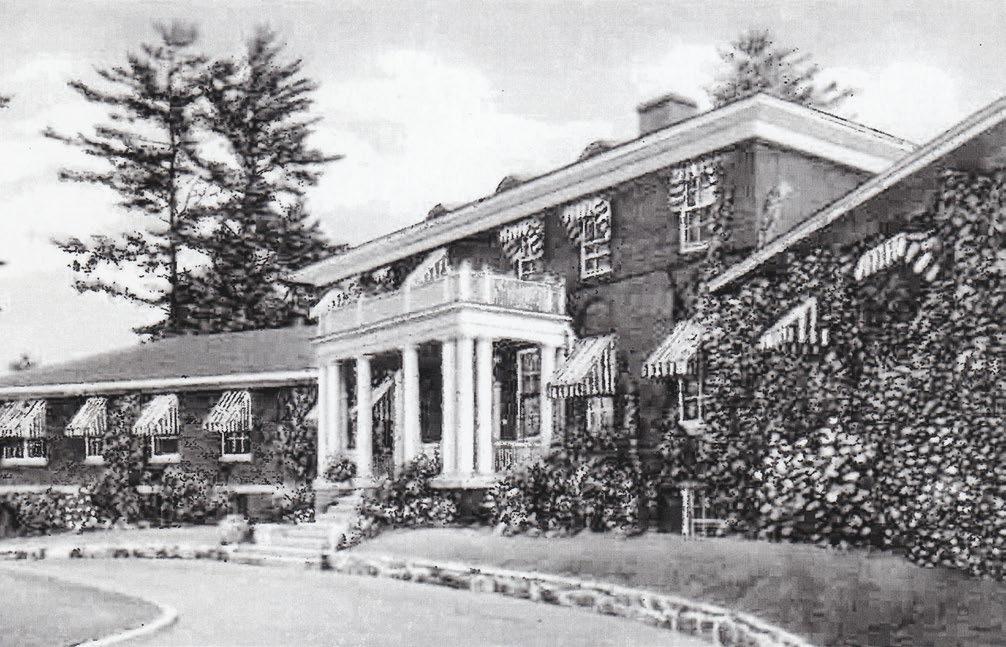
This campus will provide a place where people meet to talk about their problems, to plan what they need to do, to receive help and inspiration and practical guidance; the place where one can go to hear lectures, to see plays, to hear music…
—Dr.
Hodson Founding President 1968-1976
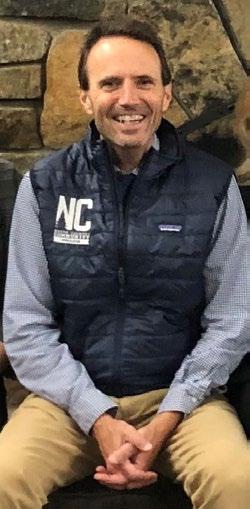
On behalf of the faculty and staff, welcome to North Country Community College!
It is such a privilege to be able to welcome you to the College and our community. As the College of Essex and Franklin County, we are part of the State University of New York (SUNY), the largest public higher education system in the United States. As a North Country student, you are afforded all sorts of opportunities for further study in the SUNY system where, like here, you will find a high-quality and affordable education.
For those who are already students at North Country Community College, you know us: our strengths, our values, our commitment to your success as students. To those who are considering joining our community, you may have questions about who we are, what we value and your place in our community.
Let me share with you a few reasons why we believe North Country Community College is the right college for you.
1. Our Academic Programs and Certificates: our classes are rigorous, intellectually stimulating and prepare you for transfer, for a career, or for both.
2. Our Approach to Learning: whether you need to hone your existing knowledge and skills or develop new ones, you will find opportunities here. Most of our academic programs have applied learning opportunities, giving you a chance to directly put what you learn into practice.
3. Our Cost: we are affordable and offer excellent value for your investment in your education.
4. Our Faculty and Staff: it is the people that make this College special. They are top-notch and committed to helping create and deliver the best learning and living environment for you to thrive in. Our faculty’s main focus is on teaching and learning. In addition to having expertise in their subject matter, many join us after having careers in other fields (e.g. nursing, criminal justice, and social work), offering our students enriched classroom experiences.
5. Our Location and Communities: if living and learning in a beautiful, supportive, and safe community is what you are looking for, we have it in spades. With our main campus in the heart of the High Peaks region of the Adirondack Park, and the other two in St. Lawrence Valley and southern edge of the Champlain Valley, it doesn’t get much better.
6. Our Values: we value our students and their success. Our students are at the center of what we do and we are continually refining our efforts to improve.
While I could wax on about the College and all the opportunities that await you, I encourage you to come and see for yourself. It is our hope that you will find our community to be the right fit for you and can envision yourself reaching higher at North Country Community College.
I hope to see you on campus!


The information contained herein is official as of January 2024. The Board of Trustees and Staff may extend, expand, change and possibly delete the course information, the tuition and fees schedules, or any other material included without notice. For information concerning changes, contact the Office of the Vice President for Academic Affairs.
North Country Community College adheres to the policy that no person is excluded from participating in, or is denied the benefit of, or is subject to discrimination under any education program or activity on the basis of race, color, creed, national origin, age, gender, sexual orientation, veteran status, or disability. Such policy includes, but is not limited to, all educational programs and activities or employment therein and/or admissions thereto.
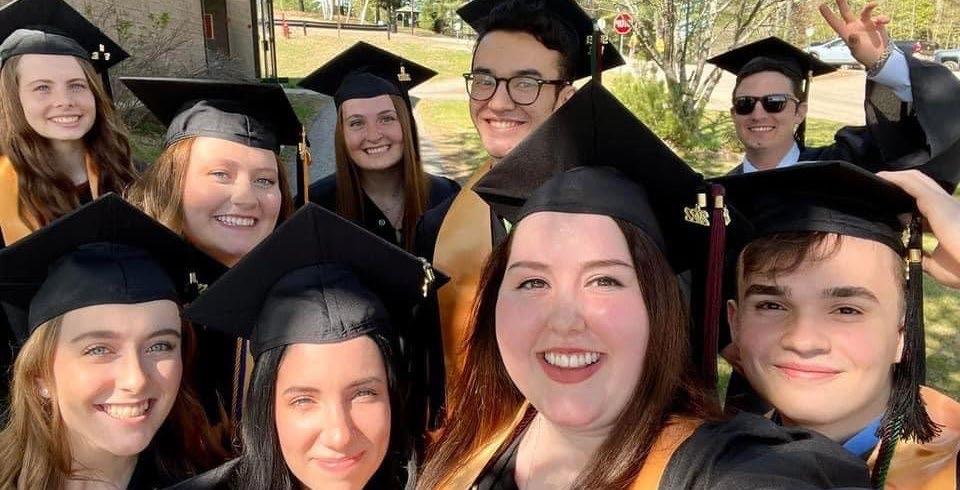
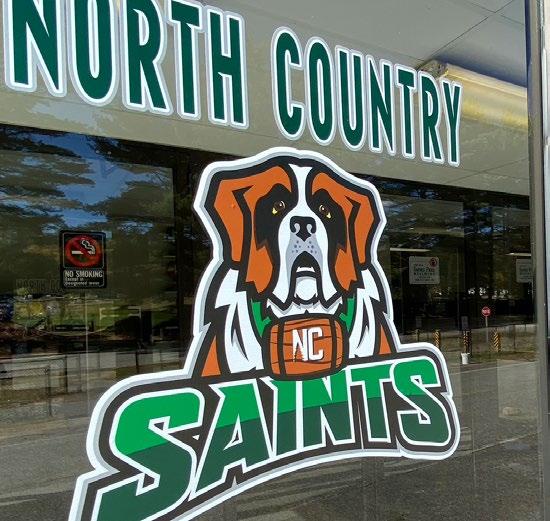
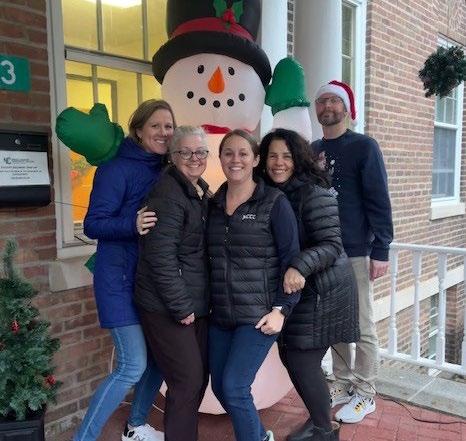
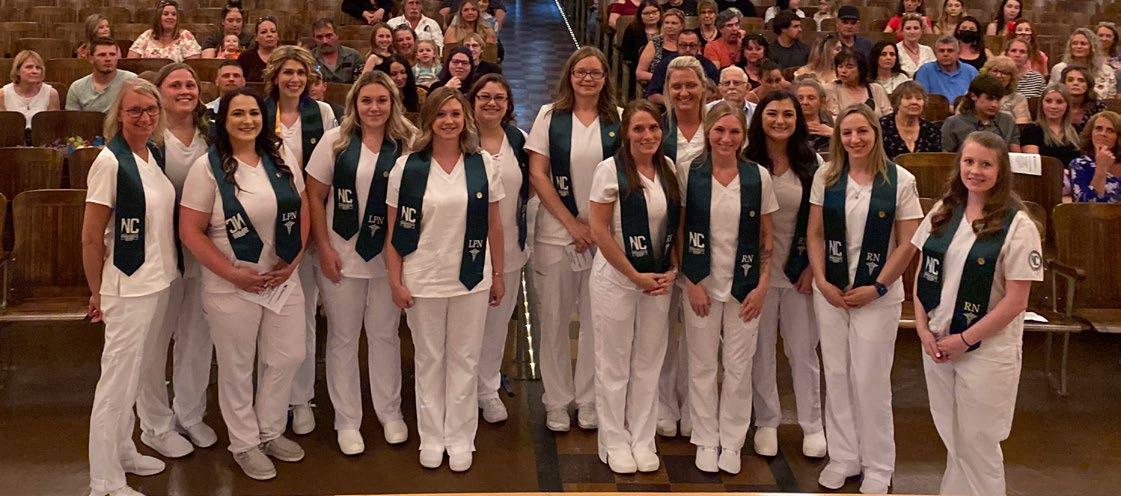
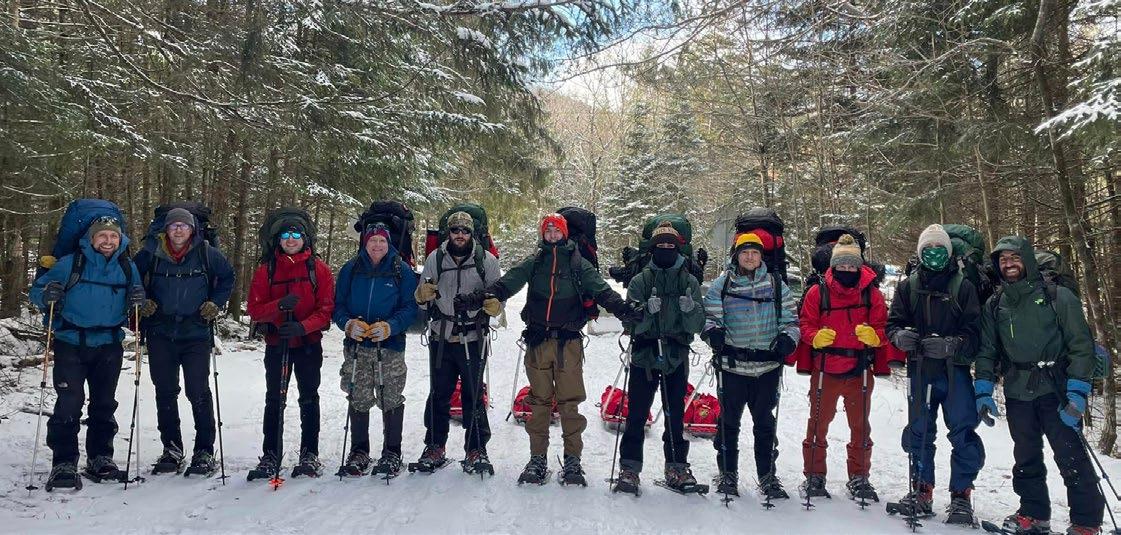
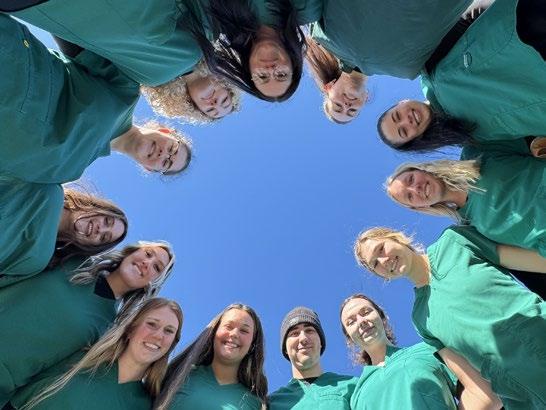
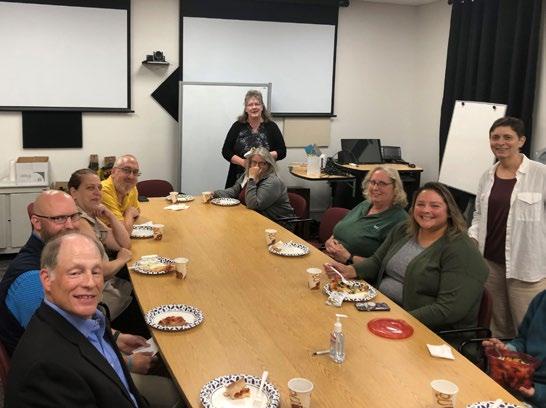

NCCC provides open access to high quality academic programs that prepare students for transfer and career success. The College contributes significantly to the enrichment of our communities by cultivating an educated citizenry, a skilled workforce, and opportunities for lifelong learning.
North Country Community College (NCCC) is accredited by the Commission on Higher Education of the Middle States Association of Colleges and Schools, 3624 Market Street, Philadelphia, PA 19104, (215) 662-5606, and by the University of the State of New York Board of Regents. The Commission on Higher Education is an institutional accrediting agency recognized by the U.S. Secretary of Education and the Commission on Recognition of Post-Secondary Accreditation. Documents describing the College’s accreditation and licensure may be reviewed by contacting the President’s Office.
NCCC will provide opportunities for growth and success for our students and community. We are committed to educational experiences that build on the unique environment of the Adirondacks and our institutional values, while nurturing the academic and personal achievement of individuals with diverse backgrounds and aspirations.
North Country Community College embraces the following values as guides to how we act, individually and collectively:
• Academic Rigor and Intellectual Curiosity
• Compassion and Kindness
• Accountability, Integrity and Transparency
• Diversity and Individuality
• Openness to Change
• Shared Governance
Provide a meaningful and engaging education that prepares students for transfer or career opportunities.
• Offer academic programs that support student aspirations and the needs of North Country Region.
• Instruction that helps foster critical and creative thinking.
• Promoting and supporting excellence in teaching by maintaining a culture of assessment that supports and guides the College’s daily operations and strategic planning.
Create and nurture a supportive environment that welcomes diversity and difference and focuses on student success and growth.
• Providing comprehensive and innovative academic and support services.
• Facilitating programs and initiatives that support and celebrate diversity in its broadest sense.
• Providing supports to improve student success and completion.
• Enriching the experience of students in every setting of the college: academics, athletics, and student life
Act as a strong and valued partner in the communities we serve.
• Engaging community members to improve programs and services.
• Supporting community workforce needs through professional and workforce development offerings.
Ensure the financial sustainability of the institution through strengthening enrollment and maximizing use of resources.
• Strengthening enrollment through improved recruitment and retention of students.
• Being good stewards of our resources, through effective, data-driven planning and budgeting processes.
• Conducting continuous assessment and quality improvement.
NCCC is constantly working to improve student learning, both in the disciplines and in general knowledge and skills that will enable students to be informed, productive citizens and lifelong learners who can adapt to a changing world. The faculty and staff have identified the following competencies that are important for all students to attain. NCCC uses a program of Assessment-Driven Knowledge to determine how successful we have been in cultivating these competencies in our students and to help us continuously improve the learning process.
Critical, Constructive, & Creative Thinking
• Students meeting this goal will demonstrate the following:
• Ability to develop well-reasoned arguments
• Ability to evaluate arguments
• Analytical and problem-solving skills
• Intuitive and imaginative processes
Scientific Literacy
• Students meeting this goal will demonstrate the following:
• Some knowledge of established scientific principles
• Ability to apply the scientific method
Information Literacy
Students meeting this goal will demonstrate the following:
• Ability to gather, analyze, and use information in various forms to accomplish a specific purpose
• Technological fluency and understanding of the limits of technology
• Students meeting this goal will demonstrate the following:
• Ability to use math skills to solve basic problems
• Financial literacy
Social & Cultural Literacy
Students meeting this goal will demonstrate the following:
• Knowledge, skills, and attitudes essential for communicating and cooperating effectively with people of diverse backgrounds
• Awareness of one’s own culture in comparison with other cultures and communities, within the United States and globally
• Civic responsibility and leadership
Communication
Students meeting this goal will demonstrate the following:
• Ability to write in standardized English
• Ability to speak effectively
• Ability to listen effectively
The North Country Community College Foundation is dedicated to helping the College maintain and enhance the quality educational experiences offered to students and the community by providing financial and resource assistance.
As the philanthropic focal point for North Country Community College, the Foundation provides an opportunity for alumni, community residents, faculty, staff, visitors, and other interested parties to invest in the College, its students, and its future.
You can make a difference by supporting the College with a contribution to the Foundation. Contributions can take many forms, including outright gifts of cash or securities, life insurance, qualified retirement plans, bequests, tangible personal property, or other assets.
If you wish to discuss ways to support the College, please call the Foundation Office at (518) 354-5261. Thank you for your interest in making an impact on our students and the future of North Country Community College.
The Foundation is governed by a volunteer Board of Directors and is a not-for-profit corporation (501(C)(3)). Contributions are tax deductible to the extent allowed by law.
The College has three campuses, which are located in Saranac Lake, Malone, and Ticonderoga, in Essex and Franklin Counties in Northern New York State. This allows the College to better serve the students of these geographically dispersed populations. NCCC has the largest service district of any New York State community college, responding to the educational needs of the people in a 3,500 square-mile area.
The Saranac Lake Campus is the main campus of North Country Community College, which houses the administrative offices of the college. Saranac Lake is split between the two sponsor counties of Essex and Franklin. There are eight individual buildings on the Saranac Lake campus.
Clermont Hall
Clermont Hall is dedicated to the study of nursing. Students enrolled in the Practical Nurse or Registered Nurse programs become acquainted with modern health-care techniques in a simulated lab and participate in seminars utilizing a teleconferencing classroom located in this facility. Nursing faculty offices are located within this complex. This building is named after June Clermont, the first nursing director at NCCC.
College Hall
This building houses the Enrollment Management and Financial Aid Offices. When Hodson Hall was the local hospital for Saranac Lake, College Hall was the residence hall for nursing students learning in the hospital.
McCormick Hall
McCormick Hall is the primary classroom space for the Saranac Lake campus. The Learning Assistance Center and Student Life Office are in this building, along with general classrooms and two computer labs.
Mulholland Hall
Mulholland Hall has four well-equipped science laboratories. The David W. Petty Lecture Hall is housed in this building. Student government, faculty offices, and the College Store are also located in this building.
The Connector
This facility connects Mulholland and McCormick Halls to allow movement between buildings without stepping outside. A complete wall of windows provides a magnificent view of the Adirondack Mountains for students relaxing in the lounge or enjoying a snack in the cafeteria.
Hodson Hall
Formerly the Saranac Lake General Hospital, Hodson Hall houses the college’s administrative, Business, Human Resources, Foundation, and Registrar’s offices. In addition, Radiologic Technology classrooms, Massage Therapy clinic, general classrooms, and faculty offices are located in this facility.
Essex Hall
Essex Hall is the library on the Saranac Lake Campus. The library houses a 60,000 volume circulating collection. Materials in this collection are available for check-out to NCCC students, faculty, and the community at all three campus libraries. Study carrels, casual seating, and computer enhanced study areas provide a comfortable environment for research and study. In addition, the Adirondack Collection is located in the Saranac Lake Campus Library containing special regional materials.
Sparks Athletic Complex
This recreational facility includes a gymnasium, a weight training area, athletic training room, and a swimming pool. The gym floor is an all-purpose “Sports Tread” synthetic surface, and the bleachers can accommodate more than 800 spectators. The indoor, collegiate-sized pool is equipped with special lifts to allow disabled access .The weight-training area has a room of free weights, as well as a room that contains some of the most advanced aerobic and variable resistance equipment, such as Universal and Nautilus. Adjacent to this building is a European-style athletic field surrounded by a “natural stadium” for use by spectators during athletic contests.
Residence Halls
The North Country Community College Association maintains residence halls housing 96 students in a safe, clean and convenient location adjacent to the NCCC campus. Essex and Franklin Halls were constructed for Fall 1998, and High Peaks Hall opened Fall 2000. The Residence Halls are smoke free and substance free. Students are required to abide by village, state and federal laws.
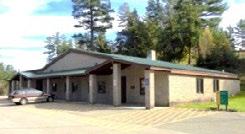
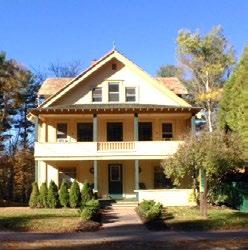
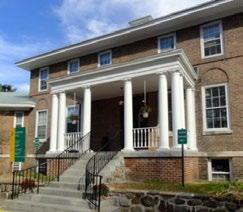
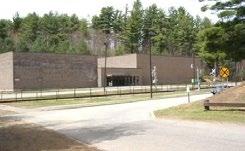
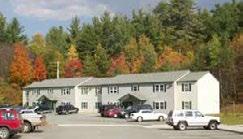
Malone, New York is the seat of the Franklin County government as well as NCCC’s northern site. The campus is located on a 10acre site on the Salmon River in the Village of Malone. This campus has three individual buildings. The official name of this campus is the Tulloch Campus.
This building houses general classrooms, a computer lab, administrative and faculty offices, Learning Assistance Center, and the library. There is a casual seating area for students to use to relax in between classes. The art students exhibit their work on the stairwell. The view from the third floor offices looks out over the Salmon River. Behind this building is a hydro dam that generates electricity.
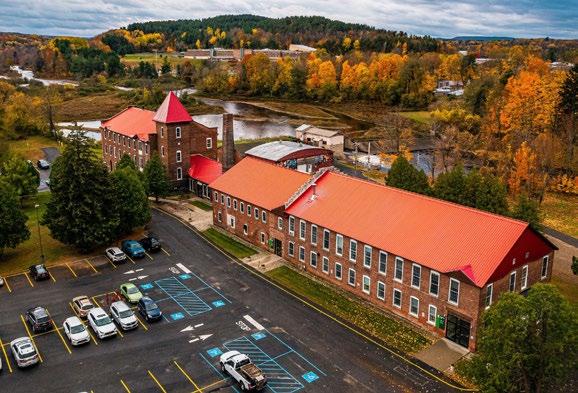
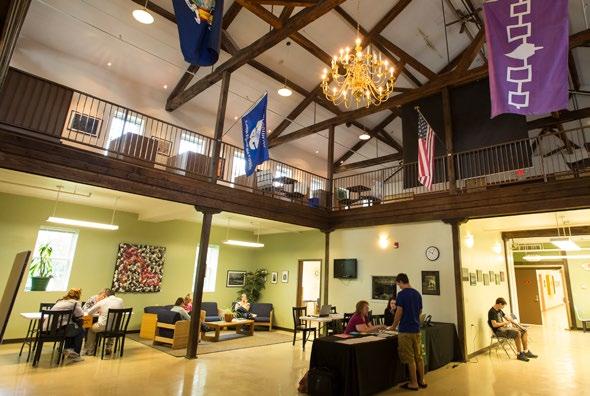
This building houses the College Bookstore, a seating area for students to eat and an indoor veranda.
Reshetkina Hall houses more general classrooms, the nursing lab classrooms, teleconferencing classrooms, a computer lab, and faculty offices.

The campus in southern Essex County occupies a building in historic downtown Ticonderoga. The building houses classrooms, a computer lab, a library, offices, biology and nursing labs, and student areas.
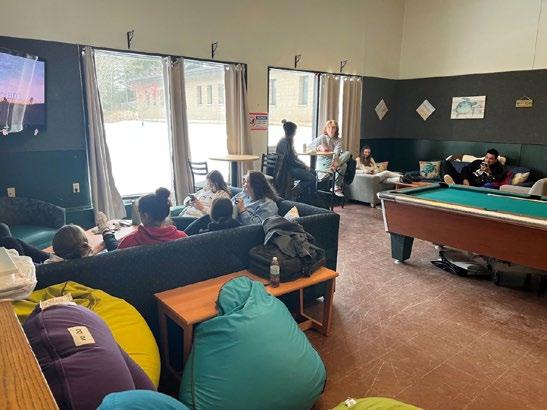
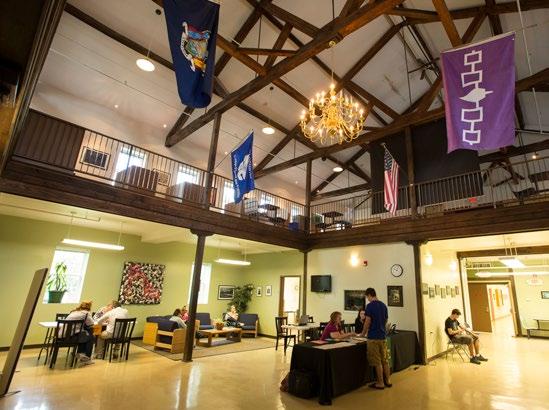

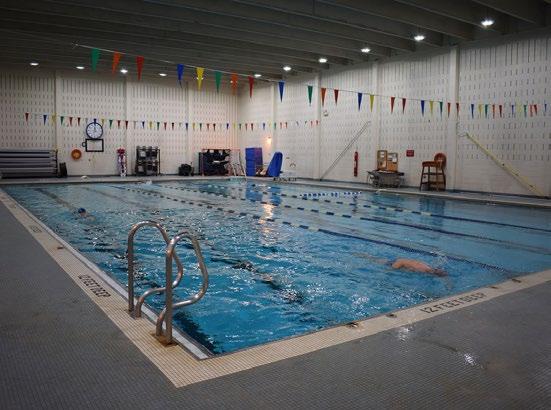
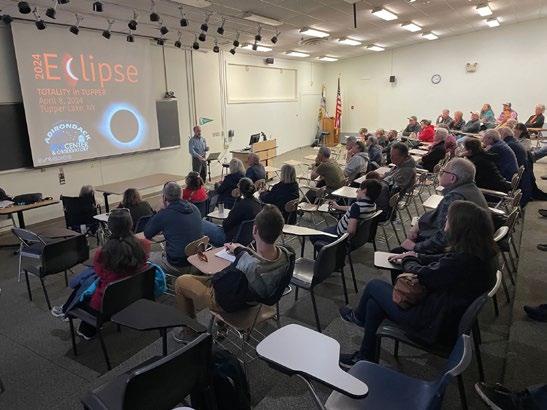
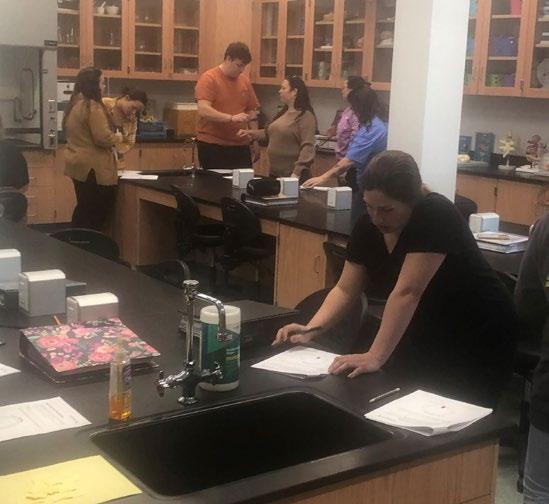

The College’s open rolling admissions policy seeks to be consistent with the purposes and philosophy of the College. With a high school or general equivalency diploma as a basic requirement, applicants will be admitted to a program offered by the College. Certain programs have special academic requirements, and the decision concerning admissions to these programs is based upon an evaluation of the applicant’s academic and/or special achievements to date. The final decision rests with the Office of Admissions, and alternate programs will be offered to those students who do not meet these special requirements. Candidates for admission are considered without discrimination on the basis of age, gender, race, ethnicity, national origin, religion, disabling condition or sexual orientation.
Residents from our sponsoring area of Essex and Franklin Counties are given priority for admission to all programs if their completed application is received by January 1st. Although sponsorship area residents are given priority in admissions, students from other areas are encouraged and welcomed to apply.
Matriculated status is assigned to those students who have been accepted by the College into a degree or certificate program. A Full-Time student is enrolled in 12 or more credit hours per semester. A Part-Time student is enrolled for fewer than 12 credit hours per semester. Students are further classified as follows: Freshman: fewer than 24 completed credit hours Sophomore: 24 or more completed credit hours
Non-Matriculated status is assigned to those students who are not active candidates for a degree. This status may also be assigned to students whose previous high school and/or college record indicates achievement below the standards set for matriculation. All students must matriculate into a program after completing 24 credits of study unless permission is granted from the Vice President for Academic Affairs. Students age 16 or 17 may register with the consent and signature of a parent or guardian.
MATRICULATED STUDENTS
Complete and submit NCCC’s Application for Admission. Applications may be obtained directly from the Office of Admissions at P.O. Box 89, Saranac Lake, NY 12983, through the College website, www.nccc.edu, or by emailing Enrollment Management at admissions@nccc.edu. Applicants must submit all official transcripts of previous academic work, i.e. high school transcript, GED/TASC, DD214, and/or college transcript(s) to the Office of Admissions.
The results of standardized tests such as the American College Test (ACT) or the Scholastic Achievement Test (SAT) may be submitted but are not a requirement for admission. Those planning to transfer to a four-year college should give attention to such examinations where necessary.
Students not seeking a degree from NCCC may register for courses at the Registrar’s Office on a non-matriculated basis. The Registrar’s Office is available to assist students in establishing their educational goals and completing registration procedures. Upon the completion of 24 credits at the College, students will be required to matriculate into a program of study unless permission is granted from the Vice President for Academic Affairs. Students age 16 or 17 may register with the consent and signature of a parent or guardian.
Should a non-matriculated student desire to work toward a degree at a later date, he or she must apply to the Office of Admissions for admission. If the student is accepted to matriculated status, all related courses successfully completed will apply toward a degree.
STATE UNIVERSITY OF NEW YORK POLICY
Under New York State law, an institution of higher education may admit as matriculated students only persons who have a high school diploma or its recognized equivalent. Because of this requirement, the State University of New York has established a specific admissions policy for homeschooled students. The purpose of the policy is to ensure that homeschooled students are treated fairly, yet in accordance with the requirements of state and federal law. The policy set forth below deals exclusively with the criteria for eligibility to be considered as an applicant for admission to either a state-operated campus or a community college under the program of the State University of New York. Once eligibility for consideration is established, the applicant also must meet any campus-specific admissions requirements (i.e. high school grade point average, SAT I, ACT, SAT II scores, essay, letters of reference, extracurricular activities.) For more information, please contact the Office of Admissions.
The New York State Education Department does not recognize correspondence high schools as registered high schools. Applicants with high school diplomas from correspondence schools must earn a GED/TASC or complete the guidelines as laid out in the SUNY Policy for Homeschooled Students.
An individual who has not graduated from high school or received a General Equivalency Diploma (GED/TASC) may apply to the New York State Education Department, Office of High School Equivalency Programs and GED/ TASC Testing, for a GED/TASC by successfully completing twenty-four (24) credit hours of college course work and demonstrating satisfactory progress toward a degree. Six specific areas of distribution are required within the 24 credit hours. Interested parties should contact the Registrar’s Office or the Academic Affairs Office for further information.
Please note: Courses numbered below 100 (remedial), physical education, college skills or freshman seminar courses will not be accepted toward the twenty-four credits. Forms for application to the State Education Department are available from the Registrar’s Office.
International students seeking admission to the College through the Student Exchange Visitor Program (SEVP) must complete the following:
• North Country Community College Admission Application, available for online submission at www. nccc.edu
○ Two copies of high school and/or university transcripts.
○ One transcript must be an original certified copy. 2nd must be a certified English translation. In the case where English was the language of instruction, two copies of the transcript must be submitted.
• Financial statement of eligibility to pay.
○ This form must be filed and certified by a bank official.
○ Student must demonstrate access to *$27,500 U.S. funds for first year of study. (* Dollar amount subject to change)
• Submission of Test of English as a Foreign Lanuage for students where English is not an official language or language of instruction.
○ Official TOEFL scores must be sent directly to North Country Community College from the Educational Testing Service. Student copies are not acceptable. English proficiency must be scored at 500 for the paper version, or a cumulative electronic score of 70, with no section scoring less than 17.
• Autobiographical essay
• English Proficiency Report
• Educational Data Form
• Copy of valid passport
In fulfilling its mission to provide accessible, educational opportunities that address the diverse needs of the community, North Country Community College’s Special Admission Committee serves as a screening committee for those applicants who have been dismissed for disciplinary reasons from another college or university as noted on their application for admission.
• Applicants who have been dismissed from another college or university due to disciplinary reasons must complete the Supplemental Admission Form and detail the circumstances of their dismissal. The completed form must be returned to the Special Admissions Committee.
The College maintains the confidentiality of all documentation that is required by law. Once all documentation is received and a decision is rendered, the applicant will be contacted by a member of the Special Admissions Committee.
For more information, please contact the Office of Admissions at admissions@nccc.edu (518) 891-2915.
North Country Community College offers to first-year NCCC students joint admission programs at SUNY Potsdam and SUNY Plattsburgh.
Joint admission allows students the opportunity to complete two years at NCCC followed by enrollment as a junior at a joint admission institution. This program is ideal for students hesitant to begin their studies at a four-year college, or for those students who may not meet admission requirements at the participating four-year institution. The student is not required to re-apply at the joint admission institution once they have met NCCC’s admission and degree requirements. Students who wish to be jointly accepted to NCCC and another institution must declare their intentions prior to the end of the second semester of study at NCCC.
Students interested in this program should contact the Office of Admissions.
Prospective students and parents are encouraged to visit the College and speak with an Enrollment Management Counselor. Please call the Office of Admissions at 518-8912915, call toll free at 1-888-TRY-NCCC (888-879-6222), or contact the office by email at admissions@nccc.edu to arrange an appointment.
North Country Community College adheres to a rolling open admissions policy. Admission to the College,
however, does not automatically guarantee enrollment in specific coursework. All matriculated freshmen, and transfer students when necessary, will be placed in English and Mathematics based on previous academic history to assure proper placement. Students who wish to challenge their placement in English and Math may schedule a placement test with the Registrar’s Office. Non-matriculated students may also need to take the placement test if they are interested in taking an English or mathematics class.
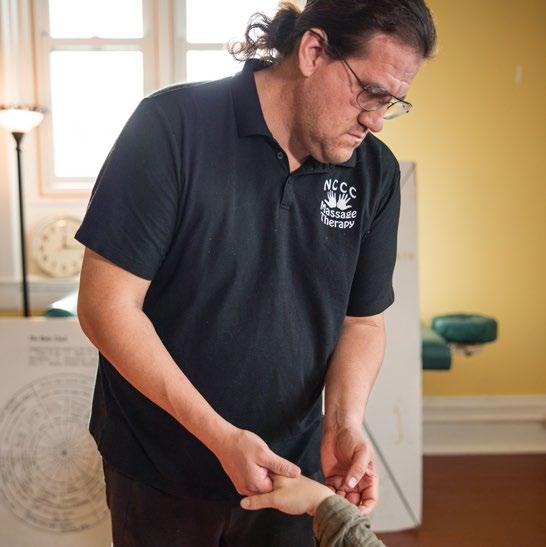

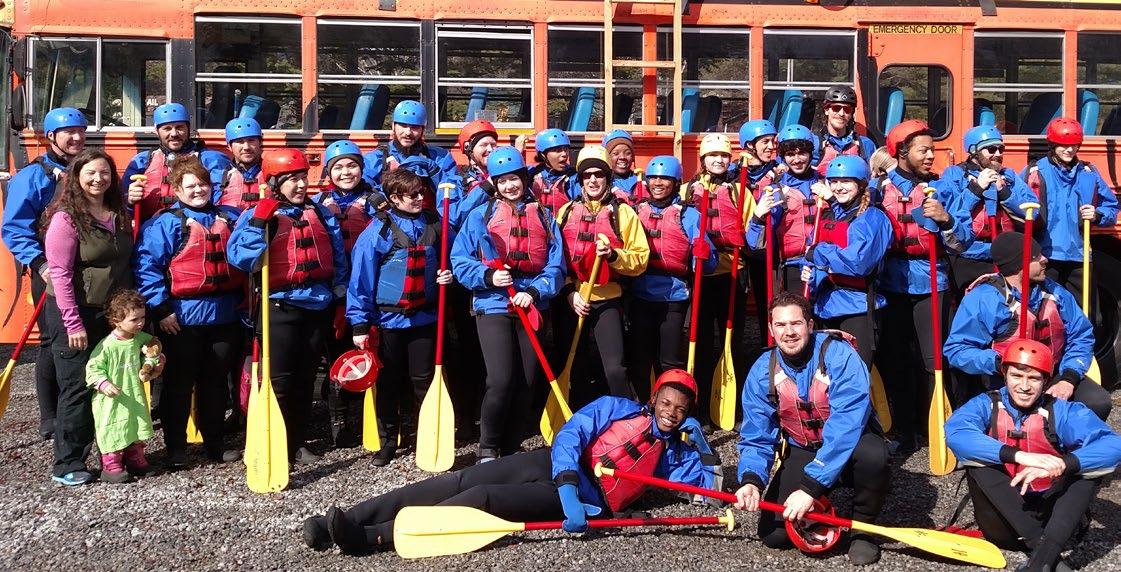
The Certificate in Practical Nursing (LPN), the Associate Degree in Nursing (Registered Nurse, RN), the Radiologic Technology and the Massage Therapy Programs are all competitive programs. Competitive admission programs are highly selective. Admission decisions are based on meeting the listed requirements and other considerations. The Certificate in Practical Nursing (LPN), Radiologic Technology and Massage Therapy programs have a preferred application deadline of December 1st of the year before they are seeking Fall admission. More offers of admission are granted for the competitive programs than space is available. Only those students who have submitted an enrollment deposit prior to the class closing to further enrollment will be guaranteed a seat. This will be done on a first-come, first serve basis. All other students will be offered a position on a wait-list and their program changed to A.S. Health Sciences or similar open enrollment program.
In order to register for the LPN, RN, Radiologic Technology Program, or Massage Therapy Program, a student must be in good academic standing. In the event that a student is accepted into one of these programs and is not in good academic standing, his/her acceptance will be withdrawn.
SUNY’s academic programs leading to licensure or certification are carefully designed to meet and exceed New York state requirements. Other states frequently have their own requirements, so if your goal is to practice in another state we encourage you to check and see what each state requires.
The following minimum requirements will be considered for admission into the Massage Therapy program. Meeting these requirements will not guarantee admission to the program, which is highly competitive.
First Year Admissions:
• Completion of NYS/GED/TASC Diploma
• Completion of NYS high school Regents Biology, or equivalent, with a passing Regents score
• Completion of NYS Regents English 11 (ELA), or equivalent, with a passing Regents score
• Non-NYS graduates must have completed similar requirements at their previous institution Transfer/Re-admit/Continuing Student Admission:
• Student must be in good academic standing at previous institution attended with a minimum GPA of 2.00/4.00 and meet the above requirements or their equivalent and have completed a college level human biology (4 credits, with a lab component) course, with a grade of 2.00 or greater.
ADMISSION TO NURSING PROGRAMS
Practical Nursing Certificate (LPN)
Associate Degree Nursing (RN)
ADMISSION TO PRACTICAL NURSING PROGRAM (LPN)
All students must meet the following minimum requirements for consideration. Meeting these requirements will not guarantee admission to the program, which is highly competitive.
• LPN applicants may be required to take a Nursing Entrance and Admissions exam.
Freshman Admissions
1. Completion of Regular High School Diploma.
2. Completion of NYS Regents Biology with passing Regents score of 80 or greater.
3. Completion of NYS Regents English 11 (ELA) with a passing regents score of 75 or greater.
4. Completion of two years of NYS Regents Math coursework with two passing regents scores of 75 or greater.
5. Non-NYS graduates must have completed similar high school requirements.
Transfer/Re-admitted/Continuing Student Admissions
1. Student must be in good academic standing at the previous (or current) institution attended with a minimum GPA of 2.50 / 4.00.
2. Completion of a college level, 4 credit (with a lab component) biology course with a grade of B-/2.75 or greater.
3. Demonstrated success in College-level mathematics and English coursework.
4. Transfer students who have withdrawn from another college nursing program must also submit a transfer
acknowledgment letter from the previous nursing school. For additional information regarding this requirement, please contact the Admissions Office.
Please Note:
• Students who do not meet any one portion of the requirements will be granted admission into the A.S. Health Science degree or similar open enrollment program and are encouraged to re-apply to the program once the above requirements have been satisfied.
• The following requirements must be on file at the College by August 1st: Nursing student insurance, and completed Health/Immunization records. Any student who does not have this information on file by August 1st will de-registered administratively for any PN nursing courses.
Students wishing to enter the AAS: Nursing (RN) program must complete an application by May 1st for the following Fall semester admission.
The Spring Start AAS Nursing program design includes flexible scheduling options for current LPNs who are not able to enroll in the traditional ADN program. This program features hybrid evening and weekend courses, and regionally-placed clinicals. Students can complete this program in two semesters. Deadline for application for Spring Start is December 1st.
Students are expected to meet the following admission requirements prior to enrollment:
1. Successful completion of an accredited PN program.
2. Successfully completed the following courses (or transfer equivalent), and have a cumulative CORE GPA of 2.5 or higher:
• BIO 215 Anatomy and Physiology I
• BIO 216 Anatomy and Physiology II
• NUR 101 Nursing I
• NUR 102 Introduction to Pharmacology
• NUR 105 Maternal Child Nursing
• NUR 106 Nursing II
• NUR 108 Pharmacology II
• ENG 101 English Composition I
• PSY 101 Introductory Psychology
3. Complete a PN-to-RN Nursing Transition Exam. There may be a charge for this exam
4. Hold a valid CPR (AHA or RC) card for infant, child, and adult. The date of certification must be the summer prior to the Fall admission.
5. Be in good academic standing from previous institution.
The following criteria are used to determine admission to the program:
• Successful completion of a State-approved practical nursing program. Completion of the practical nursing course of study DOES NOT ASSURE admission into the AAS: Nursing (RN) Program. Applicants are ranked for admis sions based upon the CORE GPA as it is mentioned above.
• Recent graduates of NCCC’s Certificate of Practical Nursing program may be provisionally accepted until suc cessful completion of the NCLEX-PN licensure exam. Recent graduates must take the first possible NCLEX-PN exam to ensure licensure prior to the Fall semester of enrollment in the Registered Nurse program. Successful completion of this NCLEX-PN licensure exam must occur prior to August 1st and verified proof from the New York State Office of Professions for PN licensure must be submitted to the Registrar’s Office of the College.
• PN License holders from states other than New York State must complete necessary paperwork with the New YorkState Office of Professions to be licensed in NYS.
• BOCES/Vocational School Practical Nurse Students: Students who completed a BOCES Practical Nursing Program and have been admitted to the AAS: Nursing (RN) program, must successfully pass a comprehensive nursing exam. Students who successfully pass a comprehensive nursing exam will be granted 17 credits to apply toward their degree at North County Community College. This exam will stand in lieu of:
• NUR 101 Nursing I
• NUR 102 Introduction to Pharmacology
• NUR 108 Pharmacology II
• NUR 106 Nursing II
The following requirements must be on file at the College by August 1st (Fall entry) and December 1st (January entry): Nursing student insurance, Completed Health/Immunization Records and all students must have an official copy of their Practical Nurse License. Any student who does not have this information on file by August 1st or December 1st will be deregistered administratively for any RN nursing courses.
Please Note:
• Students who do not meet any one portion of the requirements will be granted admission into A.S. Health Science or similar open enrollment program, and may re-apply for future admission when the above requirements have been satisfied.
• Admission is limited based on space available.
ADMISSION TO RADIOLOGIC
All students must meet the following minimum requirements for consideration. Meeting these requirements will not guarantee admission to the program, which is highly competitive.
Freshman Admissions:
• Completion of NYS/GED/TASC Diploma.
• Completion of NYS Regents Biology with passing Regents score of 85 or greater.
• Completion of NYS Regents English II (ELA) with a passing Regents score of 80 or greater.
• Completion of NYS Regents Geometry or Algebra II/Trigonometry with a passing Regents score of 80 or greater.
• Non-NYS graduates must have completed similar requirements at their previous institution.
• Out of state residents must score a minimum 500 Math and 500 Verbal on the SAT or 20 on Math and 20 on English portion of ACT.
• Students may be required to complete a supplemental application and/or on-campus interview.
Transfer/Re-admit/Continuing Student Admission:
• Student must be in good academic standing at previous institution attended with a minimum GPA of 3.00/4.00 and meet the above requirements or their equivalent and have completed a college level human biology (4 credits, with a lab component) course, with a grade of 3.00 or greater. A maximum of 34 credits may be transferred in toward the AAS: Radiologic Technology degree.
APPEAL OF DENIAL OF ADMISSION TO ALLIED HEALTH PROGRAMS
Final decision for admission to the Allied Health programs resides with the Vice President for Academic Affairs. The prospective student may choose to appeal the decision of the Vice President for Academic Affairs not to grant admission into a program. The student must submit a letter of appeal giving just cause that would reasonably and significantly alter the academic or professional credentials presented at the time of initial application. Only written appeals will be accepted. A student must submit a written appeal with supporting documents via USPS Mail, postmarked no later than 10 days from date of denial into the desired program. The appeal should be addressed to:
Vice President for Academic Affairs
North Country Community College
Admission to Allied Health Programs
P.O. Box 89
23 Santanoni Avenue Saranac Lake, NY 12983
RE-ADMISSION TO ALLIED HEALTH PROGRAMS
Students who have received a “C-“ or lower in either the theoretical or the clinical component of the Allied Health Programs, or who have withdrawn from program core course(s), may be able to receive consideration for re-admission to the program on a one-time only basis. Decisions for re-admission will be based on the same criteria as used for all applicants and the availability of space in the class.
All Allied Health Programs must be completed within three years of taking the first core course. In addition, applicants must submit documentation (orally and in writing) to the Office of Admissions explaining why the student should be allowed readmission into the Allied Health Program. In addition, students must formally reapply for admission into the program by completing an admission application.
Once you are accepted into a program of study here at NCCC, you will be contacted with dates for new student registration and orientation. You will need to stay in contact with the college’s Enrollment Office and Registrar’s Office to arrange for you to register for your first semester here at NCCC.
New student registrations are held at each campus throughout the year. At this event, you will have the opportunity to register with a faculty advisor for classes and meet with members of the Business, Financial Aid, and Student Services offices. After registration day, please contact your advisor or the Student Life Office with any questions you may have in preparing for your first semester at NCCC.
Matriculated students are assigned an academic advisor starting with their first semester at the college. Be aware if you change your program of study, your academic advisor may also change.
Each semester, we open registration for the next semester to continuing matriculated students. During this two week open registration time students will meet with their faculty advisor to register for the next semester. Advisors will also discuss degree completion and your potential future success at North Country and beyond.
The typical course load carried by full-time students is 15/16 credit hours each semester. Students who carry 12 credit hours through the entire semester are considered full-time students. Students wishing to register for more than 18 credits require the permission of the Vice President for Academic Affairs. There is an additional fee (Excess Course Credit Administration Fee) that is applied for registering for more than 18 credits per semester.
A matriculated student who wishes to change their program of study must first discuss the matter with an academic advisor. Proper advisement and procedural instructions are described at that time. Such procedures culminate in official changes in the student's records at the Registrar’s Office.
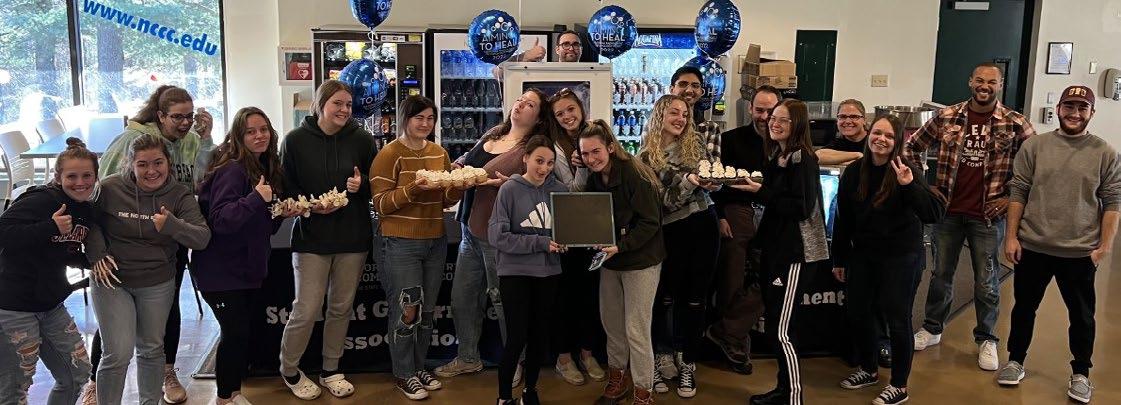

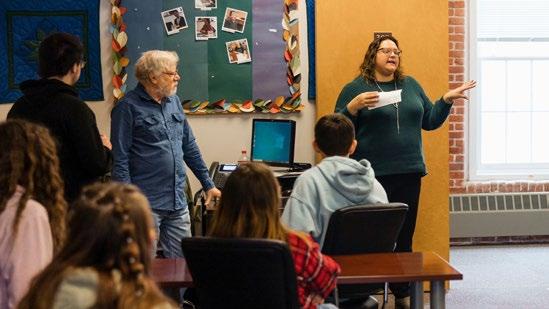

The Registrar’s Office is responsible for all student academic records, past and present. Besides student registration, the Registrar’s Office also builds the semester schedule of courses, processes transcript requests, verifies matriculation, receives paperwork regarding grade changes, course add/drops and withdrawals, withdrawal from the college, graduation applications, and issues diplomas.
Students transferring from another accredited college or university may submit official transcripts from all the schools they attended prior to NCCC for review. Those transfer students wishing to receive credit for courses from other colleges must have earned a “C “or better; courses where the student earned either a “P” or “F” will not accepted as transfer credits. The maximum number of credits transferable is further limited by college policy. For programs outside of Allied Health, no more than 31 credit hours can be transferred to NCCC toward an Associate’s degree and no more than 15 credit hours towards a Certificate. For Allied Health programs, a maximum of 17 credits can be transferred into the Certificate: Practical Nursing; a maximum of 33 credits may be transferred into the AAS: Nursing (ADN, RN); and a maximum of 34 credits may be transferred into the AAS: Radiologic Technology. For all students transferring in credits, grades and quality points for courses transferred into NCCC will not appear on the transcript and will not be used in calculating the grade point average at NCCC. NCCC may grant course credit for passing, at an acceptable level, examinations administered under the Advanced Placement Program (APP), the College Level Examination Program (CLEP), and the New York State Proficiency Examinations. The College does not accept clinical experience or credits from other institutions to satisfy certificate, degree, clinical or internship graduation requirements.
To qualify for transfer, credits must be less than ten years old. Credits taken at NCCC, where matriculation has been broken, will also be subject to the ten-year rule. To qualify for transfer into Allied Health, credits must be less than five years old.
Advanced Placement (AP) Exam
NCCC recognizes the College Board’s Advanced Placement (AP) exams and awards credit for successful completion of AP exams in the same manner that transfer credits are awarded with a grade of 3,4, or 5.
Armed Forces Credit
Students may receive transfer credit for courses evaluated for credit by the American Council on Education (ACE) which were completed while in the Armed Forces. Please submit your official military transcript for evaluation.
College Level Examination Program (CLEP)
NCCC recognizes credit earned through testing by the College Level Examination Program (CLEP). Credit is awarded for successful completion of CLEP tests in the same manner that transfer credits are awarded with a grade of 50 or higher.
International Baccalaureate (IB)
NCCC will award credit for IB Diploma courses on either the Standard Level (SL) or High Level (HL), with a grade of 4 or higher.
CRITERIA FOR DETERMINING
A grade issued to a student by an instructor shall reflect the academic achievement for which the student has been graded in accordance with the grading criteria presented to the student at the beginning of the course in the course syllabus materials.
INFORMING STUDENTS OF COURSE GRADING SYSTEM
At the beginning of each semester the instructor will provide criteria and expectations in writing to students enrolled in their course. Preferably, this syllabus should include dates of tests, due dates for major assignments, how grades will be determined, and any other requirements of the course.
The student shall have the right to review any material which has been submitted for the purpose of grading and on which the final grade is to be based. The instructor has the obligation to grade and return the material within a reasonable time frame. In the case that, for good reason, the material should not be returned to the student, an opportunity to review the graded material shall be provided by the instructor. Instructors have the right to retain all graded work submitted.
During the Fall and Spring semesters, at approximately the midpoint, mid-term grades will be issued. These grades are only used to indicate cumulative progress for the semester. These grades are not used in the determination of the students’ cumulative average. Some schools request midterm grades if you are applying for admission, but students must give their permission for the midterm grades to be sent.
Only the instructor has the authority to change a grade (unless said instructor is no longer employed by North Country Community College or is incapacitated). Any student who believes that a final grade has been computed incorrectly or has a grievance regarding the final grade must submit a letter outlining the change desired to the instructor within one month after the grade is posted to the web portal.
In the event of a conflict between an instructor and a student, the student is encouraged to informally speak to the instructor to reach an amicable solution. If a solution is not reached, an informal meeting may be scheduled with the Department Chair or representative. After the informal procedure has been exhausted, a formal complaint may be made in writing The proper appeal route is: The instructor; The appropriate Program Director or Chair; The Vice President for Academic Affairs; The President.
SEMESTER AVERAGE= 34.30 DIVIDED BY 14.00 = 2.45 SEMESTER G.P.A. *TOTAL SEMESTER HOURS ** TOTAL QUALITY POINTS
ALL GRADES A THROUGH F ARE CALCULATED IN THE STUDENT’S G.P.A.
Each student receives a Grade Report at the end of a semester by referring to the student web portal. The student is the only person who can authorize the Registrar’s Office to transmit an official transcript of their academic record to another institution or party. Transcript request forms are available from the Registrar’s Office or on the College web site, www. nccc.edu. All requests for official and/or unofficial transcripts must be made in writing and include the requesting student’s signature. If the student is in good standing with all College offices and does not have any financial holds, the request will be granted upon payment of the prevailing fee for official transcripts. Allow approximately five to seven days for processing.
• Students have the right to review their academic records as maintained in the Registrar’s Office. NCCC cannot release any documents from any other institution sent to the College for admissions purposes.
• In accordance with Public Law 93-380 (FERPA), students shall have the right to copies of their official NCCC records upon written application and payment of the prevailing Registrar’s Office fees.
E GRADE – Enrollment Verification
NCCC is required to report Enrollment Verification for students who do not attend their courses during the “verification period.” This period refers to the first 20% of the term. For example: for fifteen week courses, the verification period happens at the end of the third week. At this time, all instructors will be asked to submit E grades for students who have failed to attend. If a student receives an E grade during the verification period, your financial aid may be reduced. Not attending classes in this time frame may negatively affect a student’s financial aid eligibility. In order for students to receive financial aid, they must attend class. Students who never attend a class are not eligible for financial aid for that class.
The E Grade represents an administrative drop. E Grades will be assigned for students who never show for class in the first three weeks of a semester.
E Grades do not count in the Grade Point Average (GPA) calculation. E Grades will be purged from the system meaning the students will be dropped from the course and the action will not be reflected upon their transcription. Students with E Grades will not be charged tuition or fees and those charges will reversed provided there was no liability assumed by the student that semester (i.e. charges to the Association).
RESTRICTING ADMISSION TO A COURSE
The College reserves the right to restrict participation of any student in any course, laboratory, or educational experience because of space limitations or safety regulations.
REPEATING A COURSE
If a student elects to take a course more than once, the course will be recorded on the student’s transcript each time it is taken. For purposes of determining eligibility for graduation and for determining a student’s GPA, the credits the course carries can only be counted once for graduation.
All credit courses attended are to be entered and retained as part of the student’s permanent academic record (transcript).
IN: This can be a tentative grade recorded if a student has not completed the required course work for a reason considered valid by the instructor. The instructor must submit a Contract for Incomplete Grades for each IN given. The requirements must be completed according to the criteria established in the contract by the instructor, no later than the date specified or within the first five weeks of the following semester. If arrangements are not met within the agreed time, an IN reverts to the grade indicated on the contract by the instructor.
AW: Indicates the student was Administratively Withdrawn due to extenuating circumstances where the student has made contact with the college. There is not a cumulative average penalty associated with this grade.
W: Indicates student withdrew officially from the course during the 2nd through the 12th week (or equivalent portion) of the terms. There is not a cumulative average penalty associated with this grade.
W*: Indicates student withdrew due to a documentable medical, military, or other emergency.
AU: Any person may take a course on an audit basis provided he or she officially registers and pays full tuition and fees. Upon completion of the course, the student will receive an “AU” grade. “AU” grades are not accepted as credit for graduation and are not figured into the student’s grade point average.
Any person 60 years of age or older may audit credit courses on a tuition free basis wherever space is available. Persons auditing courses will be required to pay material or equipment fees where applicable. Registration for “60 or over” will be conducted during the first week of each term.
• Multiply course credits by quality points for grade received in the class;
• Add total semester hours;
• Add total points generated;
• Divide total quality points by total semester hours. The result is the semester grade point average.
Students at NCCC have the option of taking some courses in a pass/fail option instead of the traditional graded option. This would allow/encourage students to take courses that they might not otherwise take for fear that it will hurt their academic standing.
Both “S” and “U” are recorded on the permanent record, but neither is calculated in the cumulative grade point average. “S” confers credit for a course; “U” does not. “S” is recorded for a grade of 2.0 (C) or higher. “U” is recorded for a grade lower than 2.0 (C).
Students may consider this option for a maximum of 4 courses during their entire NCCC career and for no more than one course each semester. Students cannot choose this option when repeating a class or for coursework within their core curriculum. (Please note: if a student chooses the S/U option, then changes their major, they may be required to repeat the coursework to achieve the graduation requirement)
To select this option, students must obtain a form from their Academic Advisor and file the signed form with the Registrar’s Office before the deadline to declare the pass/fail option. Instructors will continue to report achievement in the numerical system. Disclosure of this grading option to the instructor is at the student’s discretion. Timeline for selecting pass/fail – a student must submit the necessary paperwork to the Registrar’s Office before the 50% point in the course. Specific dates can be obtained from the Registrar’s Office for that specific semester/course.
Withdrawals and Drops for Full Semester Courses:
0–1 week- If a student officially drops, no record of the course is placed on the transcript. 2–12 weeks- If a student officially withdraws from a course, W is placed on transcript; W is not calculated in GPA.
Add/Drop Week is an opportunity for students to make adjustments to the courses they are enrolled in prior to the registration becoming official. The Add/Drop period extends five class days into each semester. A student may adjust courses during this period without a permanent record notation “W” for courses dropped.
Please note: Students enrolled in classes that meet less than the full-semester or Summer Offerings are subject to alternative Add/Drop Periods. Please see the current calendar or contact the Registrar’s Office.
Students no longer wishing to remain enrolled in a particular course after the close of the Add/Drop Period will receive a grade of “W” on their transcripts, and the highest grade achieved will be the grade used for the calculation of the cumulative GPA.
Students may adjust their course registration after the end of the Add/Drop period by withdrawing from a course(s) but still remaining enrolled at the College. Students who withdraw from a course will receive a notation of “W” on their college records. Course withdrawal is not equivalent to Termination of Enrollment.
Students may withdraw from a course starting the sixth class day of each semester until the last class day of the twelfth week.
The official withdrawal date from a course will be the date the Registrar’s Office receives the completed and signed withdrawal form or an email from their official NCCC account. No verbal, telephone, or proxy requests will be honored. Withdrawing from a course does not alter a student’s tuition liability for the course(s).
Failing to attend a course does not withdraw a student from the class or remove tuition liability. Withdrawing from a course can affect Satisfactory Academic Progress (SAP) for Financial Aid.
Withdrawal for a documentable medical, military, or other emergency may be requested at the Registrar’s Office at any time. Requests are considered on a case-by-case basis, and in most cases verification will be required (verification from a treating physician/clinician, military orders, etc.). If approved, an emergency withdrawal will be noted on the permanent record as “W*”. Please note that an approved emergency withdrawal does not cancel the student’s financial liability to the College for course tuition or fees. Once the withdrawal is approved by the appropriate college official, questions regarding the student’s billing statement should be directed to the Bursar’s Office.
(Withdrawal from the College)
Withdrawal from the College is the total and complete withdrawal of a student from all courses for which that student is registered during a given semester. A student may terminate enrollment at North Country at any time during the semester. Prior to withdrawal, a student must satisfy all outstanding obligations to the college.
TERMINATION OF ENROLLMENT PROCEDURE
A student wishing to terminate enrollment must make arrangements to discuss the matter with the Vice President for Academic Affairs. The necessary forms will be provided at that time with instructions for procedures to follow. The student must also personally contact the Financial Aid Office, the Business Office as well as the Registrar’s Office. No verbal, telephone, electronic, or proxy requests will be honored except in rare cases of personal illness, where it may be done by mail.
Official date of Termination of Enrollment will be the date on which the student has completed all of the aforementioned requirements. Depending on the date of termination, the student’s record will be affected as follows: During Add/Drop:
• Student’s record at North Country will not reflect enrollment in any courses.
• Student will have 25% liability for tuition and a 100% liability for non-course related fees.
2nd Week of Classes:
• Student’s record will reflect a “W” grade for all courses in which he/she is registered.
• Student will have a 50% tuition liability and 100% liability for all fees.
3rd Week of Classes:
• Student’s records will reflect a “W” grade for all courses in which he/she is registered at the time of termination.
• Student will have a 75% tuition liability and 100% liability for all fees.
4th – 12th Week of Classes:
• Student’s record will reflect a “W” grade for all courses in which he/she is registered at the time of termination.
• Student will have a 100% tuition liability for all fees.
12th Week of Classes to End of Semester:
• Student’s record will reflect the grade issued by the instructor for all courses in which the student is registered at the time of termination.
• Student will have 100% tuition liability and 100% liability for all fees.
Students wishing to reapply to North Country Community College may contact the Enrollment Management Office to obtain an application.
Coursework older than ten years may not be allowed to meet graduation requirements.
Students may seek more than one degree at North Country Community College. The College highly encourages graduates to pursue a Baccalaureate Degree after successful completion of a program at the College rather than dual Associate Degree recognition.
If a student does enroll in a second-degree program upon graduation, they must meet the following guidelines:
• Complete at least 86 total semester hours of credit for the second degree. For an additional degree, a minimum of 24 semester hours of credit must be earned beyond the graduation date of the last NCCC degree. A minimum of 15 semester hours toward each additional degree must be earned at NCCC.
• Please note: In order for students to receive Financial Aid for the second degree, all 24 credit hours taken must count towards that degree.
• Must complete 24 distinct and separate credits for the subsequent associate’s and 12 distinct and separate credits for the subsequent certificate.
• Apply for graduation and pay the prevailing graduation fee.
Student progress toward degree completion is aided by an academic advisor and by use of tools available in the student’s web portal access. An unofficial online degree audit is available to the student and the advisor as well as an online unofficial academic transcript record. Students have the primary responsibility to insure their academic progress toward a degree with the assistance of the advisor and the web portal access tools. Students anticipating graduation in the following semester must:
• Apply for graduation by completing the “Application for a Degree or Certificate”, obtaining appropriate signatures as indicated on the form, submitting the form to the Registrar’s Office and paying the prevailing fee;
• Be within six credits of graduation after completion of registered course load;
• Have a minimum GPA of 1.95 to apply for graduation;
• Have a minimum GPA of 2.00 to graduate and must meet all degree requirements. Students who do not complete their degree requirements and do not graduate within one year of filing the graduation application must reapply for graduation by submitting another “Application for a Degree or Certificate” at the time degree requirements are to be fulfilled. The graduation fee will be waived. If the student breaks matriculation status (does not attend NCCC for one or more semesters) and degree requirements change, the student may be subject to completing the degree under the new requirements.
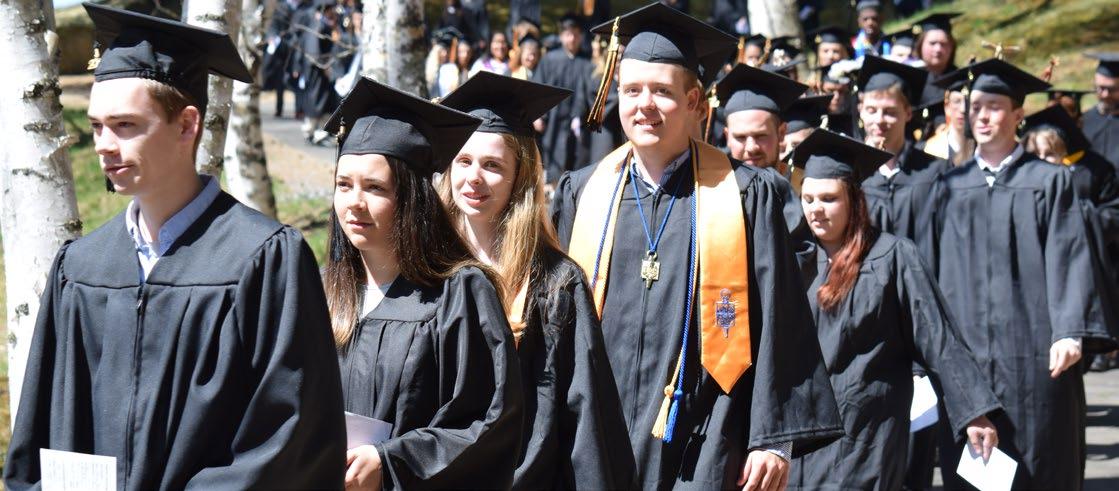

Financial Aid is available to eligible students to help them meet expenses while attending college. Financing higher education requires long-range planning, careful budgeting and, usually, contributions by both the student and family. The primary responsibility for meeting College costs rests with students and their parents. Financial Aid is intended to be a resource to cover education-related expenses for eligible students.
Funds from Financial Aid programs are supplemental to maximum financial efforts by the family. For each academic year the Financial Aid Office provides updated Financial Aid information to assist students in planning their financial needs while attending North Country Community College. There are three major types of financial aid available to students:
• Grants and Scholarships (awards which do not have to be repaid);
• Loans (which must be repaid);
• Employment (allows students to earn funds by working on campus or at a specified location off campus).
In order to be eligible to receive any Title IV Financial Aid, a student must:
• Be a U.S. citizen or permanent resident;
• Be accepted by the Enrollment Management Office to a program of study leading to a degree or certificate (matriculated into a program of study);
• Be a high school graduate or have earned a recognized General Equivalency Diploma (GED);
• Maintain satisfactory academic progress;
• Not owe a refund or repayment of any previously received Title IV Financial Aid funds;
• Not be in default on previously received Student Loan.
Students may enroll in courses offered by the College without being accepted to a program of study but will not be eligible for student financial assistance.
• Federal Pell Grant
• Federal Direct Student Loans
• Federal Supplemental Educational Opportunity Grant (SEOG)
• Federal Work-Study Program (FWSP)
• New York State Tuition Assistance Program (TAP)
• New York State Aid for Part-Time Study (APTS)
• Other New York State Scholarships and Grants
• Vermont Student Assistance (VSAC)
• Other Vermont State Scholarships
For complete descriptions of each of these federal aid programs, please see page 22 of the catalog or visit: www.studentaid.ed.gov.
For a complete description of each of the New York State aid programs, please see page ?? of the catalog or visit https:// www.hesc.ny.gov/pay-for-college/financial-aid/types-of-financial-aid.html
Students applying for financial aid at North Country Community College should be aware of the following:
• Each student must complete the following as soon after January 1 in the year in which they are seeking aid.
• All students MUST complete and submit the Free Application for Federal Student Aid (FAFSA).
• New York State residents planning to enroll full time (12 or more credit hours) should complete and submit the Express Tuition Assistance Program (TAP) application online at https://www.tap.hesc.ny.gov/totw/
• New York State residents planning to enroll part-time (fewer than 12 credit hours) should complete and submit the New York State Aid for Part-Time Study (APTS) application. Aid for Part-Time Study (APTS) applications are available from the Financial Aid Office. Applications are not available until the Financial Aid Office has received grant funding
approval. Emails will be sent to all students when the approval is received.
• Supplemental Educational Opportunity Grant (SEOG) program: students who submit their FASFA Report by the March 15 deadline will be considered for this program. SEOG grants must be awarded to students with the lowest family contributions and who demonstrate the greatest financial need based upon their Expected Family Contribution (EFC) and budget. These funds are limited and are distributed on a first come, first serve basis.
• Out of state students should check with their state’s higher education agency to determine if they need to complete a separate application to be considered for a grant from their home state. Financial Aid is available to eligible students to help them meet expenses while attending college.
• Students should be ready to submit signed IRS tax return transcripts for them and their parents’ prior year income tax. Additional tax information may be requested by the Financial Aid Office. Aid eligibility is based on the prior tax year’s income. A copy of signed taxes will no longer be accepted. The US Department of Education requires that students and families selected for verification submit IRS tax transcripts which can be obtained from the IRS at www. irs.gov or by calling 1-800-908-9946.
• Students should research the availability of private scholarships. Visit a high school guidance office, local library, local organizations, and many websites such as www.finaid.org; www.fastweb.com; www.studentaid.gov; www. collegeboard.org; www.scholarshps.com
The following application procedures apply to federal financial aid programs, including the Federal Pell Grant, Federal Supplemental Educational Opportunity Grant (SEOG), Federal Direct Loans and Federal Work Study (FWS):
1. Apply for an FSA ID online at https://studentaid.gov/fsa-id/create-account/launch Dependent students – a parent will also have to apply for an FSA ID as well.
2. Complete the Free Application for Federal Student Aid (FAFSA) online at https://studentaid.gov/h/apply-for-aid after October 1.
3. To receive maximum consideration for FWS and Federal SEOG, it is suggested that the FAFSA be completed as early as possible. The College will consider applications on a rolling basis and awards will be made to students who demonstrate significant need, based upon results of the FAFSA, providing funds are still available.
4. Read the following sections for details concerning the special application procedures required for other forms of financial aid such as the Tuition Assistance Program (TAP), New York State Scholarships and/or Federal Direct Loans
5. Notify the Financial Aid Office, in writing, of any funding awarded from private/outside sources.
6. Respond promptly to any requests for information that you receive from either the College Financial Aid Office and/ or state/federal agencies. Among other things, the College Financial Aid Office may request signed copies of either the U.S. and/or state tax forms of the student and/or the parent and/or the student’s spouse. The receipt of U.S. government aid requires that an applicant and the parent(s) of an applicant/the spouse of an applicant abide by U.S. government tax laws/regulations.
Application deadlines vary from program to program. Since funding from the federal government is limited for the campus-based aid programs (Federal Work-Study and Federal SEOG), these funds are awarded on a first come, first serve basis, until funds are exhausted. To be considered for these funds, students should submit a FAFSA online at https://studentaid.gov/h/apply-for-aid by March 15th. We strongly encourage all students to complete and submit their FAFSA before May 30th of each award year.
Students earn Financial Aid by attending classes. If a student registers for classes but does not actually attend classes, Federal regulations require North Country Community College to recalculate the amount of Financial Aid eligibility, based on the actual classes the student is attending. Very often this means that the student will end up owing the College additional money that cannot be covered by Financial Aid funds. A federal needs analysis formula has been developed by the US Department of Education to calculate a student’s eligibility for U.S. government aid. This formula measures a family’s annual ability to pay for college. An annual Expected Family Contribution (EFC) is calculated based upon a review of the data that the applicant reports on the Free Application for Federal Student Aid (FAFSA).
This is a government application that gathers information about the family’s income, assets, household size, as well as other relevant data. This is the information that is used to determine federal aid eligibility. Therefore, the accuracy of the
completed FAFSA impacts the accuracy of the aid determination. An applicant must re-apply for federal aid for each new academic year (the Financial Aid Office strongly encourages applicants to complete the new year FAFSA as soon after January 1st as possible).
The college Financial Aid Office’s role is to assist students and families in the aid application process. In addition, the office is charged with ensuring that aid eligibility is accurately determined. Applications must be submitted each year for the purpose of verifying income and other information reported on the FAFSA. All federal student aid applicants should be ready to document their family’s income if requested to do so.
Once an applicant’s family’s annual ability to pay is determined, it is compared to the College’s annual costs. The difference between the Expected Family Contribution and the College’s cost of attendance is defined as the student’s annual need. (Costs – EFC = Need). The College Financial Aid Office attempts to meet the student’s annual need through a combination of institutional aid, federal and state aid, and possibly other public and/or private sources. The actual cost of attending NCCC may differ depending on specific coursework, the program of study, and room, board and personal living expenses while attending NCCC.
Financial Need is defined as “the difference between the cost of attendance and the expected family contribution.” The Financial Aid Office will develop an award package for the student based on the amount of Financial Aid available at the time of packaging. Students are encouraged to complete and file the FAFSA form as early as possible. Completed FAFSA forms received before May 30 are given priority for Financial Aid awards.
The requirement that parental income and assets be considered applies to the majority of students who are considered to be dependent on their parents for support. For the purposes of federal financial aid programs (Federal Perkins, FWS, Federal SEOG, Federal Pell Grant, Federal Direct Stafford), independent student status may be claimed if the student:
• is 24 years of age or older;
• is a veteran of the U.S. Armed Forces;
• at any time since age 13 had both parents deceased, was in foster care or was a dependent or ward of the court;
• has legal dependents other than a spouse, who live with and receive more than half of their support from the student;
• is married;
• is currently serving active duty in the U.S. Armed Forces for purposes other than training;
• is or was an emancipated minor, as determined by a court in the state of legal residence (note: NYS does not currently allow such orders within its court system);
• is or was in legal guardianship as determined by a court in the state of legal residence;
• is or was, at any time after July 1, 2008, determined to be unaccompanied youth who was homeless, OR was selfsupporting and at risk of being homeless.
In some cases students who do not meet one of the above conditions may appeal their dependency status and request consideration as an independent student. These students are required to submit supporting documentation to the Financial Aid Office. Students wishing to pursue such an appeal are encouraged to contact the Financial Aid Office for more information and assistance before they apply for aid.
The New York State TAP Grant program uses different criteria than that of the federal programs to measure independence. For more specific information concerning TAP independence criteria, contact either a college financial aid counselor or the New York State Higher Education Services Corporation in Albany.
If a student feels that there is a special circumstance that needs to be taken into consideration for financial aid eligibility, the college may be able to recalculate your federal financial aid eligibility within federal guidelines. Download the Special Conditions Form at https://nccc.edu/forms/aid-forms.html. Please make sure that all requirements on the form are complete and turn in all supporting documentation along with the Form to the Financial Aid Office at the student’s campus.
Students earn Financial Aid by attending classes. Federal regulations require North Country Community College to prorate aid eligibility for recipients of Federal Title IV student aid funds. If the College has already advanced more than the amount the student is eligible for, the student will be billed for the amount of the overpayment. The formula is based upon the number of days the student has attended as a percentage of the total number of days in the semester. Students must attend classes through 60 percent of the semester to be fully eligible for their total Financial Aid awards. The refund policy for federal student Financial Aid is separate and distinct from the refund policy for tuition and fees at North Country Community College. That is, a student who does not meet the 60 percent enrollment requirement for
Federal Financial Aid and is, therefore, not eligible for a full Financial Aid package, will find that they have incurred full tuition and fee liability at the College resulting in unpaid tuition and fees. The student will be billed by the College for these unpaid tuition and fee amounts.
The Federal Pell Grant is a grant program. Grants do not require repayment. To be eligible for a Federal Pell Grant, you must:
• Be a U.S. citizen or permanent resident alien;
• Be enrolled (or accepted for enrollment) in an undergraduate degree program;
• Demonstrate financial need. Federal Pell Grant awards are paid for undergraduate study at approved institutions as long as the student meets academic progress requirements;
Once the FAFSA is processed, a Student Aid Report is mailed or e-mailed to the student. The Financial Aid Office determines the amount of the award based on the expected family contribution. After enrollment, funds are paid directly to the applicant or credited to the institutional account.
The amount of the award is affected by costs of attendance and full- or part-time enrollment status. Pell grants are awarded only to undergraduate students who have not earned a bachelor’s degree. Standards of academic progress for Federal Pell eligibility are described at the end of this section. Effective on July 1, 2012, a student can receive the Federal Pell Grant for no more than 12 full-time semesters or the equivalent.
SEOG is awarded to students with high financial need. To be eligible for SEOG a student must:
• Be a U.S. citizen or permanent resident alien;
• Be enrolled (or accepted for enrollment) in an undergraduate degree program;
• Demonstrate the highest level of financial need (a FAFSA calculated EFC of $0);
• Be PELL eligible.
A student who has already earned a Bachelor’s or first professional degree is not eligible to receive SEOG. To apply for SEOG refer to the General Financial Aid procedures, as described above. Standards for academic progress for SEOG eligibility are described at the end of this section.
TAP is a grant program that provides aid to New York State residents attending college in New York State full-time. The final determination of an award rests with the Higher Education Services Corporation (HESC).
To apply for the TAP Grant on line, students should first complete the FAFSA on line at www.fafsa.ed.gov. Information from the FAFSA will populate the on-line TAP application. After completing the web-based FAFSA, the student should link to the on-line TAP application from the FAFSA Confirmation Page. The application deadline date is May 1 of the academic year for which the funds are intended.
Associate Degree students generally may only receive TAP awards for no more than six semesters of study.
APTS is a tuition aid grant program that provides aid to New York State residents attending college part-time in New York State. The student needs to be enrolled in three to eleven credit hours per semester in a degree program. To apply, a student must complete an APTS application at the beginning of each semester. Applications are available from the Financial Aid Office.
Awards are dependent upon the funds allocated by New York State.
Standards of academic progress for APTS eligibility are similar to the TAP program, described on page 24
The Excelsior Scholarship program will provide tuition-free college at New York State’s public colleges and universities to New Yorkers making up to $125,000 in 2019.
Determining eligibility for the Excelsior Scholarship is a two-part process. After applying for the scholarship through HESC, you’ll receive a notification regarding your status. If you have met HESC’s requirements, your information will be sent to NCCC for further review. NCCC will then review transcripts and other documentation and your current financial aid awards, and if you meet the scholarship requirements, you will receive notification from NCCC confirming your eligibility and the amount of your Excelsior scholarship.
Recipients of the Excelsior Scholarship may receive the award up to actual tuition. The maximum Excelsior Scholarship will be reduced by the amount of student grant and scholarship awards an applicant will receive for the academic year. Excelsior Scholarship website NYS Higher Education Services Corporation - The Excelsior Scholarship SUNY Website Excelsior Scholarship - SUNY
OTHER STATE AID PROGRAMS
The following New York State scholarships and grants are also available through HESC:
• Memorial Scholarship for Families of Deceased Police Officers and Firefighters;
• Vietnam Veterans and Persian Gulf Veterans Tuition Award;
• World Trade Center Memorial Scholarship;
• Scholarships for Academic Excellence;
• Regents Award for Child of a Deceased or Disabled Veterans (CV);
• Primary Care Services Corps;
• NYS Math/Science Teaching Incentive Scholarship;
• Regents Professional Opportunity Scholarship;
• Regents Health Care Scholarship (HC);
• Robert C Byrd Honors Scholarship Program. Additional information is available by contacting Higher Education Services Corporation at 888-NYSHESC (888-6974372) or by contacting the HESC Web site at: www.hesc.ny.gov
VERMONT STUDENT ASSISTANCE GRANT (VSAC)
Vermont need-based grants that VSAC administers on behalf of the State of Vermont—the Incentive Grant (full-time enrollment), the Part-Time Grant (part-time enrollment), and the Advancement Grant (for shorter non-degree programs to improve your ability to get a job or to explore college). Award amounts vary according to the VSAC policy. Please visit their direct website at www.vsac.org
VOCATIONAL
APPLICATION PROCEDURES: Details may be obtained from the Office of Adult Career and Continuing Educational Services – Vocational Rehabilitation (ACCES-VR). Request a list of local offices from ACCES-VR, New York State Education Department, Albany, NY 12230. Selection of Recipients and Allocation of Awards: Any disabled person, with a substantial employment handicap, who can become employable within a reasonable period of time, may be eligible. ACCES-VR serves those having any physical, emotional, or mental disability except blindness. The legally blind are served by the Office of Children and Family Services Commission for the Blind and Visually Handicapped, State Department of Social Services, 155 Washington Avenue, 3rd floor, Albany, NY 12243. Eligible applicants may receive counseling, medical examinations and other evaluation services, physical restoration services and instruction and training, including that given at institutions of postsecondary education.
APPLICATION PROCEDURES: Application forms may be obtained from the Native American Education Unit, New York State Education Department, Room #465EBA, Albany, NY 12234. The completed application form should be forwarded by the applicant to the Native American Education Unit along with the following materials:
• Official transcript of high school record or copy of General Equivalency Diploma (GED);
• Official tribal certification form;
• Copy of acceptance letter from college attending.
To qualify an applicant must:
• Be at least one-fourth American Indian, Eskimo, or Aleut;
• Be an enrolled member of a tribe, band or group on record with the Bureau of Indian Affairs;
• Be enrolled (or accepted for enrollment) in an approved college or university, pursuing at least a four-year degree;
• Have financial need.
Application forms may be obtained from a liaison office of the U.S. Bureau of Indian Affairs. A new application is necessary at the beginning of each year of study. An official need analysis, completed by the Financial Aid Office, is required each year. Applications for Mohawks and Senecas may be obtained at their respective tribal education offices. First-time applicants must obtain proof of tribal enrollment from the Bureau of Indian Affairs area or agency office, which keeps the records of enrollment for the tribe. For grants to be awarded in successive years, the student must make satisfactory progress toward a degree and show financial need. Freshmen must maintain a 2.0 GPA to remain eligible for funding; sophomores, juniors and seniors must maintain a 2.5 GPA. Application deadline is July 15 for the fall semester.
The William D. Ford Federal Direct Loan program provides low-interest rate loans to students and parents. To be eligible for a loan, a student must:
• Be a U.S. citizen or permanent resident alien;
• Be enrolled at least half time as a matriculated student at an approved college, university or other postsecondary institution in any of the United States or in a foreign country;
• Be deemed eligible by the school. To be eligible for funding, students must qualify by showing need through the federally mandated award formulas.
To apply for these loans, students/parents complete the FAFSA, accept the loan(s) on the financial aid award offer. Upon acceptance of a Federal Direct Loan on the Award Confirmation Form, first-time Ford Federal Direct borrowers must complete an entrance interview and Master Promissory Note (MPN). Once an MPN has been submitted and processed it is good for up to 10 years. Students wanting additional loan funding, in the current or future years, will not be required to sign another MPN, as long as there is an active MPN already on file. When planning loan financing, students should expect a deduction of funds for an origination and insurance fee at the time of disbursement.
Federal Direct Subsidized Stafford Loans are need-based and are interest-free while the student is enrolled in college on at least a half-time basis. Loans disbursed on or after July 1, 2012 will not be eligible for interest subsidy during the grace period. Repayment begins six months after the student leaves school or drops below six credit hours.
he Federal Direct Unsubsidized Stafford Loan program has similar terms, interest rates and annual loan limits to the Subsidized Federal Stafford Loan program. Unlike the Federal Direct Subsidized Stafford Loan, the unsubsidized loan is not need-based and interest will accrue while the student is in school. Students may choose to pay accrued interest while in school or may allow interest to accrue and be capitalized (added to the principal balance), as a means of deferring payment. To obtain a Federal Direct Unsubsidized Loan you must first be evaluated for federal need-based funds.
Parents of dependent undergraduate students, who are enrolled for a minimum of 6 credit hours, may apply for a Federal Direct Parent Loan. Parents may borrow up to the total cost of education minus any other aid received for the academic period. A credit review must be completed to determine eligibility for the loan. The current interest rate is a fixed percentage available at www.studentaid.gov. There will be a reduction in the award amount at disbursement for origination and insurance fees. Repayment begins 60 days after the loan is fully disbursed APPLICATION PROCEDURES: Students who have filed a FAFSA and are deemed eligible will be offered and required to accept or decline all loan funding. Students who accept PLUS loan funding as part of the award package will be required to have a parent complete an application and a Master Promissory Note before funds can be credited and/or disbursed to the student billing account. Once all required steps are completed, the College will request the disbursement of funds from the United States Department of Education and disburse funds to the student billing account. The combination of subsidized and unsubsidized loans cannot exceed the following maximum annual loan limits:
FWS is awarded to some students who have financial need and who wish to earn part of their educational expenses. To be eligible for Federal Work-Study, a student must:
• Be a U.S. citizen or permanent resident alien;
• Be enrolled (or accepted for enrollment) in a degree program;
• Demonstrate financial need;
• Maintain satisfactory academic progress.
Based on availability, students may select their place of employment from various openings throughout the campus. Job openings are posted on www.nccc.edu and on the student portal. Students may work approximately 5 to 12 hours per week and are paid on a scale starting at minimum wage.
• FULL-TIME ENROLLMENT STATUS – 12 credits or more
• ¾ TIME ENROLLMENT – 9-11 credits
• PART-TIME ENROLLMENT STATUS – 6-8 credits
• LESS THAN PART-TIME – 1-5 credits
Transfer students accepted through the Enrollment Management Office will be considered in good academic standing and eligible to receive Title IV Financial Aid during their first semester of study. Students who attempt to earn a second degree or certificate may have an extended maximum time frame. However, placement on the time frame scale for both transfer and second degree or certificate students will be determined by the number of credits awarded toward the student’s latest program of study.
MAINTAINING ELIGIBILITY STANDARDS OF SATISFACTORY ACADEMIC PROGRESS
Failure to make satisfactory academic progress towards the completion of a degree or certificate may result in the loss of one or more semesters of New York State TAP or Aid for Part-time Studies (APTS). At the conclusion of each semester, the Financial Aid Office reviews all grades to determine if recipients are making satisfactory academic progress. To remain in good standing for NYS, a student must achieve a certain GPA and earn a certain number of cumulative credits before being certified for the next semester’s TAP payment.
Failure to meet one or more of the established standards of Satisfactory Academic Progress (SAP) will make a student ineligible for financial aid.
Financial aid SAP status includes all previous academic history, even if the student did not receive financial aid. Standards are reviewed at the end of each semester, including summer. It is the student’s responsibility to monitor academic progress and to understand the criteria needed to maintain New York state financial aid eligibility. The chart below shows requirements for satisfactory academic progress which has been approved for State University colleges offering associate degrees.
Satisfactory program pursuit is defined as receiving a passing or failing grade in a certain percentage of a full-time course load each term an award is received. The percentage increases from 50 percent of the minimum full-time course load in each term of study in the first year an award is received, to 75 percent of the minimum full-time course load in each term of study in the second year an award is received, to 100% of the minimum full-time course load in each term thereafter (refer to the table below).
Please note: that a “W” (withdrawal) is not a satisfactory grade under the pursuit regulations. Students who withdraw from all coursework after TAP certification will lose TAP eligibility for the next semester.
Students may not receive more than six (6) semesters of TAP in their pursuit of an Associate’s Degree unless they are Educational Opportunity Program students.
MINIMUM FULL-TIME COURSE LOAD: 12 CREDITS
SEMESTER OF AWARD
Semester 1 & 2
Semester 3 & 4
Semester 5 through 8
Satisfactory Academic Progress (SAP) for TAP
STUDENT MUST COMPLETE
6 credit minimum each semester
9 credit minimum each semester
12 credit minimum each semester
The chart below shows requirements for satisfactory academic progress which has been approved for State University colleges offering associate and certificate degrees.
SATISFACTORY ACADEMIC PROGRESS (SAP) FOR TAP PRIOR TO 2010-11 or those who meet the definition of remedial student.
PRIOR TO THIS SEMESTER 1ST 2ND 3RD 4TH 5TH 6TH
SATISFACTORY ACADEMIC PROGRESS (SAP) FOR TAP
The following chart should be used for students who first received TAP in 2010-2011 or later. PRIOR
Is defined as a student: (a) whose score on a recognized college placement exam or nationally recognized standardized exam indicates the need for remediation for at least two semesters, as certified by the college and approved by the New York State Education department (SED); or (b) who was enrolled in at least six semester hours of non-credit remedial courses, as approved by SED, in the first term they received a TAP award; or (c) who is or was enrolled in an opportunity program (HESC Financial Aid Services Bulletin 2011-005,1)
PROGRESS FOR APTS
APTS recipients will be equated to the full-time TAP percentages outlined above. Grades of Incomplete are only acceptable if changed to a standard passing or failing grade before the completion of the next term of study. Grades of W (withdrawal) do not constitute grades which indicate the student passed, failed, or completed all work in a course and cannot be counted toward meeting this program pursuit requirement.
Students who have lost their NYS aid may have their eligibility restored by: (1) making up past academic deficiencies by completing one or more terms of study without receipt of any NYS student financial assistance or (2) be readmitted to school after an absence of at least one calendar year
APPEAL PROVISION FOR NEW YORK STATE AID (TAP/APTS)
Students who have lost their NYS aid may have their eligibility restored by: (1) making up past academic deficiencies by completing one or more terms of study without receipt of any NYS student financial assistance or (2) be readmitted to school after an absence of at least one calendar year
Federal Title IV Eligibility
To maintain Federal Financial Aid eligibility at North Country Community College, the student must maintain a minimum Grade Point Average (GPA) that correlates to the number of credits attempted, and the number of credits earned. When a student meets these minimum requirements, they are making Satisfactory Academic Progress (SAP). Failure to make Satisfactory Academic Progress may lead to financial aid warning, financial aid probation, and/or loss of Federal financial aid eligibility at North Country Community College.
Regulations Regarding Title IV Financial Aid
Federal regulations mandates that a recipient of Federal Title IV aid (Federal Pell Grant, Federal SEOG Grant, Federal Work Study, and Federal Direct Loans) make satisfactory academic progress toward the completion of a degree to maintain eligibly for funding. Progress will be reviewed every semester. Student’s performance is measured using three components: Qualitative, Quantitative and Maximum Time Frame.
1. Qualitative Standards (Cumulative GPA) – Qualitative standard refers to a student’s cumulative grade point average. A student is considered to be in good academic standing if he/she maintains a minimum GPA at the conclusion of each semester. Grades for remedial courses are not calculated in the student’s GPA, but will be included in the qualitative assessment of Satisfactory Academic Progress (SAP).
2. Quantitative Standard (Pace of Progress) – Quantitative standard refers to the successful completion of credits towards the student’s degree or certificate. Pace is determined by comparing the number of attempted credits hours successfully completed (earned).
Attempted credit hours include:
Earned hours- Grade of A-D and courses with a grade of S;
• Repeated courses- both attempts;
• Remedial coursework;
• Withdrawal - W grades;
• Failures - F grades;
• Incomplete grades;
• All accepted transfer credits and consortium agreement credits that count towards the degree program. Completed credit hours include:
• Earned hours- Grade of A-D and courses with a grade of S;
• Repeated courses- one attempt;
• Remedial coursework;
• Failures - F grades;
• All accepted transfer credits and consortium agreement credits that count towards the degree program. The tables below display the minimum requirements that students must meet to stay within the SAP requirements:
3. Maximum Time Frame - Undergraduate students may receive aid for a maximum of 150% of the degree program requirements.
• Certificate Program – The average length of a Certificate Program at NCCC is 31 credits. The maximum time frame for most NCCC student to receive aid while enrolled in a certificate program is 47 attempted credit hours.
• Associate Degree Program – The average length of an Associate Degree Program at NCCC is 64 credits. The maximum time frame for most NCCC student to receive aid while enrolled in a certificate program is 96 attempted credit hours
Please review the program requirements for the exact number of credits within your program.
When a student fails to make Satisfactory Academic Progress, his or her status for the subsequent semester will be one of the following: Warning, Probation, or Dismissal. The following table describes how each of these will impact a student’s ability to receive Federal Financial Aid at NCCC.
REQUIRED STUDENT ACTION
Student fails to meet SAP at the end of a semester. Student will receive an SAP Warning Letter.
Student fails to make SAP at the end of the Warning Period.
A financial aid ineligibility letter will be sent to student.
No appeal is required when placed on Warning.
Student must successfully appeal.
Student is eligible for aid for the subsequent semester (Warning Period). At the end of the Warning Period, student must be making SAP or the student will be placed on a Financial Aid Suspension and will have the option to appeal for reinstatement and placed on a Probation Status.
If appeal is approved, the student will be placed on a Financial Aid Probation and eligible for federal financial aid.
Student fails to make SAP at the end of a Warning period AND has been granted an appeal. Eligibility for aid has been reinstated for that semester only.
Student must successfully appeal ineligibility for federal aid and be placed on probation. The student will be required to meet specific goals (Academic Plan) during probationary semester.
Aid may be paid for subsequent sesmester. At the end of the Probation Period, student must be meeting SAP and/or be successfully following the etablished Academic Plan to continue to be eligible for aid.
Student has failed to meet conditions of Academic Plan and/or make SAP during Probation period. A final Financial Aid Suspension Ineligibility letter will be sent to the student.
Student is no longer eligible to receive financial aid at North Country Community College.
If a student earns an associate degree, they can apply and be accepted to a second degree program and still be eligible for federal Financial Aid. A student enrolled in a second degree program will only receive aid for the credits required to earn a degree within the specified program with the 150% still applied.
If a student has earned two degrees from the College and would like to enroll for a third degree, if the student is accepted to the College, they have one academic year to earn their degree. All coursework taken during this one academic year must also count towards their degree. If after the one academic year the student fails to earn the third degree, they will no longer be eligible for any Title IV aid at North Country.
Students who are readmitted or students who have been granted Academic Forgiveness or a Fresh Start for previous coursework are subject to the standards defined in this policy for federal aid eligibility. Academic progress will be reviewed upon readmission and receipt of the Free Application for Federal Student Aid (FAFSA). All previous coursework at North Country must be included in each review of academic progress for federal aid; therefore, even coursework “forgiven” academically must be considered in the review.
Transfer students that are enrolling for the first time are considered in good academic standing. Transfer credits are counted towards a student’s SAP only within the attempted hour’s criteria. The transfer credits that are counted towards a student’s SAP will be those transfer credits accepted from the Transfer Evaluation and used towards credits earned for a certificate or degree program.
Under provisions pertaining to the Standards of Academic Progress students are allowed to appeal the loss of their eligibility to receive Title IV Financial Aid at North Country. Appeals may be granted only where it is determined that exceptional or extraordinary circumstances beyond the student’s control resulted in failure to satisfy the requirements and where there is a reasonable expectation that the student will meet these requirements in the future.
Appeals will be considered on the basis of mitigating circumstances, such as personal illness or injury, or the death of an immediate family member. Students may appeal more than once, but must provide new documentation of a mitigating circumstance to justify the request. A written statement from the student must accompany the appeal and must explain why the student failed to make satisfactory academic progress, and what has changed in the student’s situation that will allow the student to demonstrate satisfactory academic progress at the next evaluation.
Acceptable forms of documentation include but are not limited to: physician’s written statement to substantiate illness or accident, newspaper obituaries or death certificates to substantiate deaths, written statement from clergy, family member, or other third party familiar with the student’s situation, and written statement from academic advisor or professor. Students who have lost federal aid and have an appeal approved are placed on “Financial Aid Probation” for the subsequent term and may receive federal aid for that term.
Students wishing to appeal the loss of their Financial Aid eligibility must complete and submit an SAP Appeal form within 10 days of the date of the SAP Loss of Financial Aid letter.
Appeal forms along with supporting documentation should be addressed to: North Country Community College Financial Aid
P.O. Box 89 23 Santanoni Avenue Saranac Lake, NY 12983
Appeals are sent to the Satisfactory Academic Progress Committee for review. Decisions of the committee will be forwarded to each student in writing and are final. If the student’s appeal is approved, the student will be placed on Probation. All students granted an appeal will also be provided with an “Academic Plan” that specifies the requirements to which the student must adhere in order to regain federal aid eligibility. Any student on probation who does not meet the requirements of the Academic Plan at the end of any term within the Academic Plan will lose federal aid eligibility.
Students who choose to remain at North Country Community College without receipt of Title IV federal student assistance, may request a review of their academic records after the completion of additional credit hours to determine whether the courses taken have brought them up to the appropriate standards. If the SAP standards are met, eligibility for receipt of Title IV federal student assistance may be restored for subsequent terms in that year.
Any student who withdraws or stops attending all of his or her courses prior to the end of a semester or term, without proof of mitigating circumstances, will automatically lose his or her Title IV Financial Aid eligibility for the next semester or term. Should a student re-matriculate for the following semester, they must request a financial aid review.
Thanks to the generosity of many North Country Community College alumni, employees, businesses, foundations and friends, North Country Community College is able to award nearly $1 million in scholarships and awards to students each year.
Most scholarships and awards are based upon student achievement, and some also take into account financial need as well. When applicable, financial need is determined by analysis of the Free Application for Federal Student Aid (FAFSA). The scholarships below do not require a specific application. Those that do require an application are listed on www.nccc. edu in the Scholarship portion of the website.
SCHOLARSHIPS
The following scholarships and awards for first time and transfer students require that the student be registered for a minimum of 15 credit hours per semester and maintain an overall GPA of 2.0. These scholarships and awards have a maximum timeframe of two years (four semesters). The scholarships are null and void should there be a break in attendance.
ESSEX AND FRANKLIN SCHOLARS AWARDS (15 credits per semester is required)
• High School Graduates in Essex & Franklin Counties
• 85% cumulative average and Regents Diploma with Advance Distinction
HODSON SCHOLARSHIP (15 credits per semester is required)
• Students with current Certificates of Residency outside Essex & Franklin Counties
NCCC OPPORTUNITY SCHOLARSHIP (part-time or full-time enrollment)
• Applies to individuals seeking a degree and residing in Franklin or Essex counties
• Available after any federal or state financial aid up to the cost of attendance
• Scholarship cannot be combined with any full time NCCC scholarships
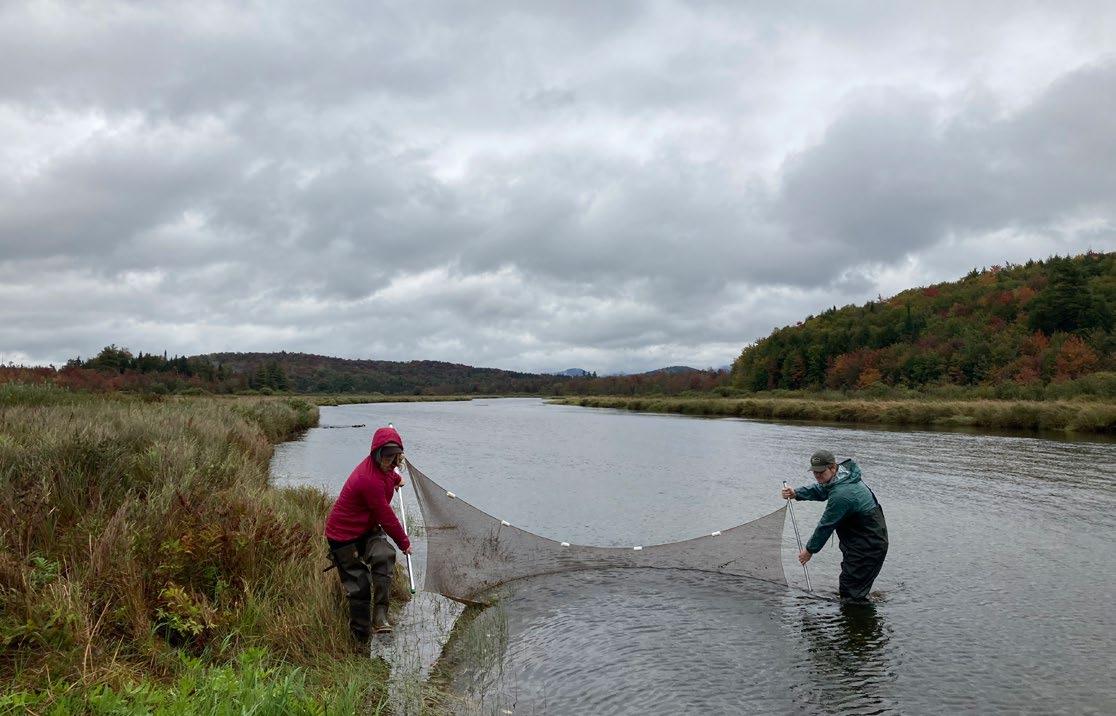

(As of September 2023 Academic Year; Expenses subject to change without notice)
1Subject to Change
2Subject to Change
3Fee is capped at $130.00
4Fee is capped at $100.00 and only charged for the Saranac Lake Campus
5Fee is capped at $360.00
6Fee is $11.00 per credit and capped at $125.00 for the Saranac Lake Campus and $10.00 per credit and capped at $120.00 for all other Campuses.
*Additional Course Fees are assessed according to your program or course selection. Expenses are subject to change without notice. Book costs, Transportation and Personal Expenses are not included above
Full-time students (12 credits and above) will be charged tuition on a term basis. Part-time students (1-11 credits) will be charged tuition on a per credit hour basis. Summer and Winter tuition is charged on a per credit hour basis.
SENIOR CITIZENS AUDIT
(Age 60 years and older)
• Free tuition
• Course or Lab Fee and Technology Fee will be charged
• Subject to available space in course offered

Deadlines for obtaining Residency Certificates is set by New York State law, not NCCC. Once the deadline has passed, the counties will not issue the Certificate and you will be charged the out-ofstate tuition rate. Please contact the Business Office if you have any questions about the proper way to complete this requirement. Students who have registered for classes in a given term who fail to notify the college in writing prior to the first day of classes that they will not be attending, will be charged for the entire semester or if applicable utilizing the time frame set forth below.
ESSEX & FRANKLIN
A resident of the State of New York for one year, and of the County of Essex or Franklin for six months immediately prior to registration should submit the Verification of Residency form available on the college website or from the Business Office. Residency forms must to on file by the 30th day of classes and are required to be updated every 12 months. Failure to complete in the time-frame designated will result in the student being charged the Non-Resident Tuition Rate.
A resident of the State of New York for one year, and of a county other than Essex or Franklin for six months immediately prior to registration, should present a Certificate of Residence from that county. You must:
• Obtain an application from your County Treasurer of Chief Fiscal Officer by website, or your County Treasurer’s office; (applications and instructions for each county are currently available on the college website).
• Complete the Affidavit and Application for Certificate of Residence and provide proper documentation required by your county;
• Have the Affidavit and Application for Certificate of Residence notarized;
• Mail, Email or submit in person the notarized application with documentation depending on your county’s requirements to your County Treasurer or Chief Fiscal Officer. The Treasurer will keep the application and issue a Certificate of Residency to the applicant;
• The applicant must submit the original Certificate of Residence to the Business Office in the time frame desig nated. A faxed copy cannot be accepted, NCCC must receive the original Certificate.
*You must obtain an original Certificate of Residence for each Community College you are enrolled in. The Certifi cate is valid for 12 months for the date of issue.
To qualify for the resident tuition, a student is required by law to present a residency certificate once each academic year, before the first day of classes. All certificates must be dated no earlier than 60 days prior to the start of classes and no later than 30 days after the first day of classes. Certificates indicate that the student has been a legal resident of the State of New York for one year, and a county resident for six months. Students who have resided in more than one county within six months must obtain the certificate from all counties during those six months. Residence, for purposes of tuition, refers to a student’s principal or permanent home (Not a Post Office Box). Failure to obtain a certificate in the time frame designated will result in the student being charged the Non-Resident Tuition Rate.
Any student who does not fulfill either of the two requirements above is a non-resident and pays Non-Resident tuition. A student who enters New York State for the purpose of attending a college and/or a student who is a dependent of a parent that is a resident of a state other than New York may not become a resident for in-state tuition purposes. Dependency status shall be determined using Federal Financial Aid Guidelines.
To appeal for New York State residency, please contact the Enrollment Management Office. Deadline dates to submit an appeal are as follows. Fall Semester – August 1st, Spring Semester – December 1st and Summer Semester – June 1st. No appeal will be considered after these dates
In place of a required tuition deposit, NCCC strongly encourages students to complete the FAFSA (fafsa.ed.gov) during the enrollment process to determine their eligibility.
Requests for tuition refunds must originate in the Registrar’s Office after the successful completion of withdrawal. Upon written verification by the Registrar’s Office, refund applications will be processed by the Business Office. Your official withdrawal date drives your eligible refund. The amount of refund is as follows:
• During the first five days of classes – 75% of tuition
• During the second week of classes – 50% of tuition
• During the third week of classes – 25% of tuition
• After the third week of classes – no refund Fees are non-refundable. Refunds during summer, winter or special terms vary based on the academic calendar. Enquire with the Business Office on the current policy for these terms.
• Federal Student Aid regulations require additional refund procedures for Title IV recipients
Please note:
• NO REFUND will be made to students dropped for disciplinary reasons.
All fees and charges that apply as indicated under student expenses are payable on or before the first day of classes. Payment plans are to be set up with the Business Office prior to the start of classes each term and are subject to a $50.00 fee. Statements are mailed monthly and are available for paper-less real-time viewing through the student portal. It is important to check your statement through the portal frequently as schedule changes result in changes to your cost of attendance and financial aid. NCCC Email accounts are the main form of communication and will be used to notify the student of important updates and deadlines.
NCCC Accepts:
• Mailed in Check or Signed Money-order
• Visa, MasterCard & Discover Card payments by calling the Business Office
• Online payments are available through the student portal.
The College assumes students who register for classes accept the responsibility for full payment and are expected to attend class sessions regularly. When students drop courses during the first few weeks of a semester the Financial Aid Office is required to adjust aid awards accordingly. Do not drop credits and stop attending classes without investigating the academic and financial aid penalties.

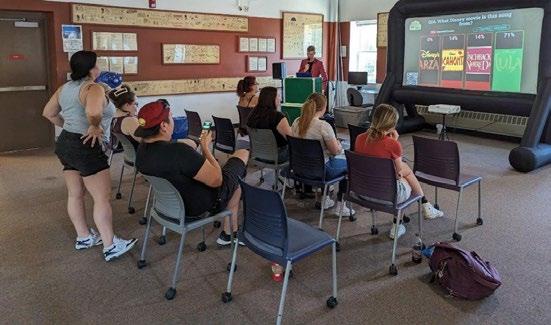
Students may defer payment of tuition and fees if the Business Office has received formal notice prior to registration that the student has been approved for one of the following programs:
• Federal Pell Grant
• Tuition Assistance Program (TAP)
• Federal Supplemental Education Opportunity Grant (SEOG)
• Aid for Part-Time Study (APTS)
• Federal Direct Loans
• New York State Rehabilitation and Training Program
• Native American Aid
• Veteran’s Benefits under the G.I. Bill© or Acts
• Local scholarships and awards
• Third Party Payers
*Any balance after the aid indicated above is due at the start of term or directly after the aid is applied to the account.
Any student who has a financial obligation to North Country Community College, has books or materials not accounted for in dealing with the library or any other department, or who has not met the immunization requirements of New York State Public Health Law, Article 21, Title VI, Section 2165, will have official transcripts, future registration, grade reports and certifications withheld until these obligations are met.


Student Life at North Country invites students to connect, engage, and learn to lead.
Services are available at all three campuses to assist students with career exploration, transfer planning, recreation activities, and leadership development.
Connect with your peers and faculty through student organizations and clubs, engage in campus traditions and events, and experience service learning through volunteerism.
The Student Life Office also coordinates new student orientation, residential education for on campus housing, diversity education, prevention education, wellness resources, peer mentoring, campus security, parking, and student IDs.
Activities and programs are provided and designed with a variety of goals in mind. Fun activities are a must and they’re complimented by a variety of other cultural, educational, professional, recreational, and wellness-related programs offered throughout the year. The Student Government Association, Clubs, Campus Activity Board, faculty, and student life staff develop and implement events. Funding is available through the Student Government Association and the Campus Activity Board.
The Malone, Saranac Lake and Ticonderoga campuses have independent Student Government Associations (SGA). The purpose of SGA is to involve and integrate students in the recommendation of policies, activities and governance matters of the College. SGA is responsible for monitoring their portion of the student activity fees as assessed by the College. This is an opportunity for students to apply their leadership skills and promote community. In addition to SGA positions and committees, students can also serve on the College Senate and the committees that make up the College Senate.
Students are encouraged to develop or participate in clubs. Long standing clubs include the following:
• ALL Club (GLBT group)
• Art Club
• Environmental Club
• Human Services Club
• Massage Therapy Club
• Music Club
• Nursing Club
• Radiologic Technology Club
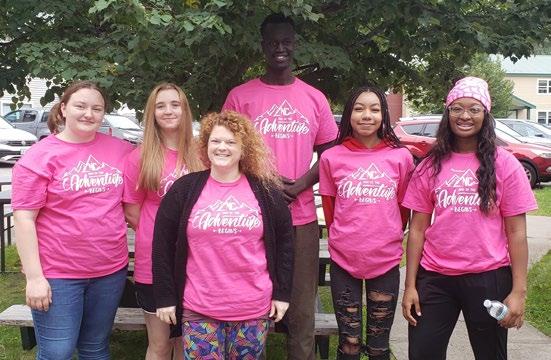
The mission of CAB is to provide social, cultural, educational, wellness and recreational opportunities for all students. The diversity of the student population will be reflected in the programs funded. The committee, made up of students and staff, encourages proposals from all segments of the College community.
NCCC’s yearly publication of student and staff writing and art is titled The Northern New Yorker. Students are encouraged to submit their work, which is then published in a high-end magazine format each spring and made available on all three campuses as well as in the community. Students can also be involved in laying out the publication using graphic design software. Publishing work in The Northern New Yorker and/or being part of the layout team can be cited as an accomplishment on a resume, and the magazine can become part of a student’s portfolio of work to show to prospective employers and transfer schools.
The Student Life Office staff will guide students through the career/life planning process in various settings including the classroom, programming, and individual appointments. Students will explore their personal interests, values, and skills as they relate to careers; learn about occupations; and prepare to enter the world of work. Students can increase opportunities for employment by learning and strengthening job-search techniques. Employment opportunities are made available to students via their web portal or the Student Life Office. Full-time, parttime, and seasonal opportunities are listed.
Many of the degree programs are designed to facilitate a smooth transfer to a four-year college or university. The Student Life Office works with students to avoid “transfer shock” through programming and individual student appointments. We will work with students to relate personal and professional goals to college majors; research colleges; and assist with the application process.
The College does not provide medical or mental health services. The College cannot recommend a specific provider, but will provide referral information. In the event of an emergency, 911 will be called to support the health and well-being of students and staff.
All full-time students are covered under the College’s mandatory accident insurance program. Supplemental insurance coverage for illness is available at an additional cost. Students using a private service should be prepared to satisfy their financial obligations to the service provider by cash or through individual or family health insurance programs.
North Country Community College has enjoyed a long standing tradition of inspiring wellness, living in a relatively crime free environment, and cooperating with all local Law Enforcement and Fire/Rescue agencies. We all play a role in promoting campus safety. Alert the Student Life Office or administrator on call in the event you witness or hear anything that is of concern to you. We will listen. Don’t assume information has reached necessary personnel from others. Communicate with college officials!
An Incident Report Form, available through the Campus Safety web page should be completed in the event an incident occurs on campus, at the residence halls, in clinical settings, or at college sponsored events. Examples include but are not limited to personal injury, vehicle or property damage, theft, or disruptive behavior.
“Need To Know” information will be posted throughout campuses, and electronically via the college web site and web portal. Mass notification will also take place via your college email account. It is important for students to access their web portal and email to ensure receipt of up to date information impacting the college community, on a regular basis. Information regarding campus crime statistics can be found on the NCCC website under Campus Safety in the Campus & Student Life section.
Safety Tips:
• Secure personal belongs. This includes locking vehicles and private residences. Do not leave personal items unattended. In the event an item is lost, contact the Student Life Office.
• At any time but particularly during inclement weather, drive and walk carefully. Think safety first.
• When walking around campus and in your community, “buddy up”. There’s safety in numbers.
• Report any concerns to the Student Life Office. An incident report form is available through the electronic portal.
New York State Public Health Law 2165 Article 21 requires that all college students born on or after January 1, 1957, and enrolled in six (6) or more credits in a semester demonstrate proof of immunity against measles, mumps, and rubella.
New York State Public Health Law 2167 requires that all college students enrolled in six (6) or more credits in a semester submit a documented response to receipt of meningococcal/ meningitis disease and vaccination information. This law applies to all students regardless of birth date.
Proof of immunity and compliance with these Public Health Laws consists of:
• Measles: two doses of live measles vaccine, the first being administered no more than four (4) days prior to the
student’s first birthday. The second dose must be administered at least 28 days after the first); diagnosing physician documentation of measles disease; or a blood titer showing immunity.
• Mumps: one dose of live mumps vaccine administered no more than four (4) days prior to the student’s first birthday; diagnosing physician documentation of mumps disease; or blood a blood titer showing immunity.
• Rubella: one dose of live rubella vaccine administered no more than four (4) days prior to the student’s first birthday or a blood titer showing immunity. Physician’s diagnosis is not acceptable.
• Meningitis: two options are available for compliance: 1) that the student has received the meningitis vaccination within five (5) years prior to their first semester of attendance at NCCC; or 2) that the student opts not to obtain the immunization and provides the college with a completed meningococcal vaccination response form.
All of the documentation explained above must be submitted within thirty (30) days from the start of classes for the student’s first semester of attendance at NCCC.
Students should check with their high school health office or health care provider for appropriate records to ensure they meet these requirements.
Failure to submit all required immunization documents can result in prohibition from class attendance, exclusion from future registration at NCCC, or withholding of grades, transcripts, and any financial aid refund monies a student is entitled to receive. If prohibited from class attendance, students will not receive refunds of tuition or fees.
With proper documentation, students meeting specific criteria may be eligible for a medical or religious exemption. Contact the Student Life Office for information on how to apply.
In the event of an outbreak of one of the diseases noted above, only those students having proof of immunity will be allowed access to College facilities.
All requests for copies of health records must be made in writing. If the student is in good standing with all College offices and does not have any financial holds, the request will be granted upon payment of the prevailing fee. Allow approximately five to seven days for processing.
Students enrolled in the following programs or team sports must fulfill additional requirements:
• Certificate LPN
• AAS Nursing (AND/RN)
• AAS Radiologic Technology
• AAS Massage Therapy
• AS Wilderness Recreation Leadership
• All Athletic Team Members
The following are prerequisites for these students prior to commencement of program study to assure the safety of program participants and of groups involved in clinical, practicum, and field experiences, as well as to contribute to the individual student’s success in the program and in their field of study.
In addition to the State mandated MMR (measles/mumps/rubella) and meningitis requirements, students must also sign a health Confidentiality Statement to insure the privacy and protection of individually identifiable health information that may be obtained through class and clinical or practicum activities. (NOTE: Nursing and Radiologic Technology students exempt by age from the MMR requirement must furnish documentation regarding rubella immunization to comply with clinical facility requirements. Some facilities may require measles and mumps depending on your clinical rotation.)
All health and immunization requirements are to be submitted directly to Health Records located in the Student Life Office in confidential envelopes for review and handling no later than the due date in your health packet that is sent to you once you have paid your deposit. Health Records or her/his designee will notify individual students of deficiencies in submitted information as it is received. It is expected that students enrolled in the Nursing and Radiologic Technology programs maintain their own portfolio of records and be mindful of all expiration dates.
Failure to receive doctor’s approvals or to comply with the above-indicated requirements may result in suspension from the program. Notification of such will be made by the Vice President for Academic Affairs office to both the student and faculty program chair.
The student ID card is used for different purposes at the College. It serves as a library card and enables students to gain free or discounted privileges when shown to a local business or organization. In addition, it strengthens the ability of the college to maintain safety and security.
It is mandatory for all students to possess a current NCCC student identification card.
Student ID cards are available from the Student Life Office in Saranac Lake and in the Business Offices in Malone and Ticonderoga during the first week of classes. A fee may be charged to replace lost cards. At any time, a student must be able to produce the ID if requested by a College official.
Visitors are welcome to park in any legal parking space.
Designated parking applies to weekdays during the academic calendar from 7:30am - 4:00pm. For students and employees, parking is permitted only in areas marked or signed as parking spaces and zoned appropriately for the permit being displayed. Vehicles parked on campus without a permit, or parked in an area where the permit is not valid will be ticketed. A campus map outlining parking is distributed when parking permits are issued and can be viewed online and in the appendix. Please note designated parking.
Parking permits are required and must be displayed on all student and employee motorized vehicles. Students and employees may register up to three vehicles.
To register a vehicle:
Complete the Vehicle Registration Form available at www.nccc.edu/parking
When a vehicle is registered, a parking decal will be issued by Campus Security. Display the parking decal on the left window furthest back from the driver’s side.
Residential students are required to park their vehicles at the Residence Halls or in designated “Open Parking” on weekdays between the hours of 7:30am and 4:00pm. Violators will be ticketed.
Students, staff and visitors accessing disabled parking must have the required disabled placard or license plate. For additional information contact the Office of the ADA/504 Coordinator at the Saranac Lake campus. Malone and Ticonderoga campus personnel and students should contact the Student Life Office. Necessary vehicle information will be recorded and a special parking permit may be issued for a specified period of time. A physician’s certification is necessary to verify eligibility for disabled parking. The physician’s certification should clearly state the nature of the disability and specify the anticipated length of disability.
Parking tickets will be issued if vehicles are in violation of parking procedures. The College also reserves the right to ticket vehicles operating unsafely while on campus. Unpaid parking tickets may result in holds being placed on transcripts and registrations for future semesters.
Any person who receives a parking citation who believes there are reasons to appeal the ticket may file a written appeal. The Parking Ticket Appeals form is available online at: http://www.nccc.edu/parking and must be completed and submitted to Campus Security. The following reasons are NOT acceptable grounds for dismissing a parking ticket:
• Lack of knowledge of the parking regulations
• Inability to find a proper parking space/no parking space available
• Inclement weather
• Late for class
• No permit displayed/failure to obtain proper permit
• Permit used by another person/operation of the vehicle by another person
• Failure of security officer to ticket previously for similar offense
• Disagreement with the parking regulations
• Forgetting to display permit
Physical (yearly, some clinical sites require every 6 months)
Release Authorization Insert (yearly)
Information Release (yearly)
Immunization to Measles, Mumps, and Rubella
Meningitis Documentation
Influenza Vaccination
Confidentiality Statement (yearly)
WRL Doctor’s Statement. Insert (yearly)
TB Skin Test (yearly)
Varicella/Zoster Info Sheet (yearly)
Hepatitis B Info Sheet (yearly)
Current CPR Card (must include Adult/Infant/Child CPR and AED/BVM) (Online CPR is NOT acceptable)
Copy of Practical Nursing License
Student Liability Insurance (yearly)
Tetanus Shot (within the last 10 years)
North Country Community College is a member of the National Junior College Athletic Association (NJCAA). Intercollegiate athletic opportunities are available in four varsity sports as follows: Women: Soccer and Basketball Men: Soccer and Basketball.
The College and Athletic Association affords as many athletes as possible the chance to participate. On-campus facilities enhance both practice sessions and home event team competitions. The opportunity to excel and reach the highest level of competition remains consistent with the goals of the College in general. Teams frequently participate in post-season regional playoff competition and some have advanced to national championship competitions.
The College follows NJCAA eligibility rules. Each varsity athlete must be a full-time student enrolled in at least twelve credit hours and must have a current (within the last year) physical on file. In order to continue playing past the first semester, a grade- point average of 1.75, with a minimum of twelve credits must be achieved. Prior to a second season, athletes must carry a 2.00 average, complete no fewer than twenty-four credit hours and make satisfactory progress within the College. Special rules apply to transfer students, veterans, etc., and many eligibility situations need evaluation by the Director of Athletics.
NCCC is focused on success and retention of our student-athletes through the Athlete Mentoring Program (AMP). The AMP Program was recognized as an Outstanding Student Affairs Program by the Office of University Life at SUNY and the Council of Community College Chief Student Affairs Officers. The AMP program is a computer-based system designed to monitor, assist and retain student-athletes to increase graduation rates as well as maintain NJCAA eligibility. The primary mission is to ensure that NCCC student-athletes progress successfully in their academic, athletic, and personal endeavors. The desired outcome for NCCC’s studentathletes is to earn a degree and be able to continue their academic and athletic careers at a four-year institution or to begin their desired profession.
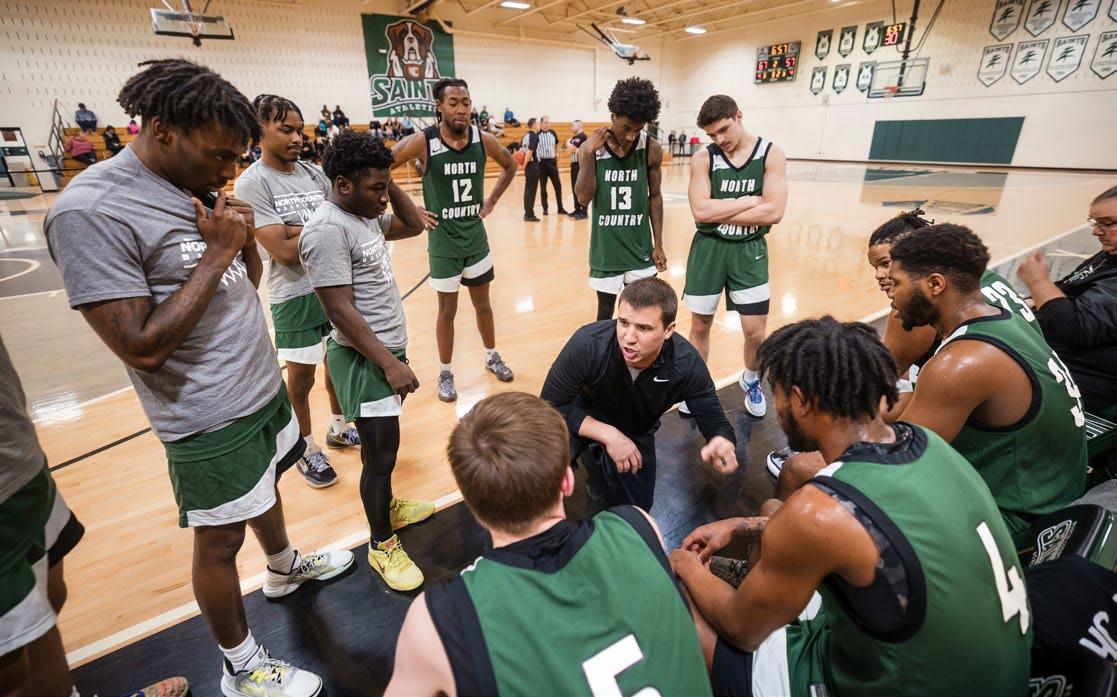

The Association is an independent, not-for-profit group formed to enrich the lives of students at North Country Community College by providing services that NCCC cannot. These include college stores, student housing, food service, financial contribution to athletics, and distribution of student fees to the Student Government. Its mission is to “promote and cultivate educational, social, cultural, and recreational relations among students, community, alumni, and faculty of NCCC by assisting them in every way possible in their study, work, living, and extra-curricular activities.”
The Association is not funded by NCCC. The Association does not receive direct state aid. Fees for service support the housing, food service and stores. While NCCCA is a separate and distinct entity from North Country Community College, its main purpose is to benefit the College by providing auxiliary services to the College community. The governing Board of Directors includes representatives from faculty, staff, students, alumni, and administration.
The NCCC Association manages:
• The Residence Halls adjacent to the campus in Saranac Lake
• Textbook operations on all campuses of North Country Community College
• Student Government Association Budgets / Activity Fees for All Campuses
• Intercollegiate Athletic Budget
• Food Service for the Saranac Lake and Malone campuses through American Dining Creation
Malone Campus: Café-style food service for breakfast and lunch. Vending machines provide beverages and snacks. Saranac Lake Campus: Breakfast, lunch, dinner and snacks are provided in the Connector. Regularly planned meals are provided for individual purchase or on the prepaid meal plan at minimal cost. Ticonderoga Campus: Vending machines provide beverages.
The College Stores are run by NCCC Association, and are ever changing to improve our policies and services to meet the needs of our tri-campus community. Each store carries a variety of school supplies: among many other items are pens, calculators, notebooks, binders, USB drives, Skullcandy headphones, and index cards. Special items required for classes are also available. Our NCCC Insignia gift items include mugs, Camelbak water bottles, glassware, clothing, and college insignia and logo merchandise. Gift certificates are also available. If there are any questions feel free to email collegestoremain@nccc.edu.
A physical store is located on both the Malone and Saranac Lake Campuses. Our Ticonderoga campus utilizes the FHEG Virtual Online Bookstore. www.ncccti.bkstr.com.
Tri-campus Booklists & Prepack+ Reservation Order Forms along with “Important Dates” are available prior to each semester on the http://www.nccc.edu/bookstore_main.aspx website. Text/Bundle Requirement titles and prices are subject to change without notice. We suggest waiting to purchase your course requirements until three weeks prior to classes for the most up-to-date information. Textbook purchases through the College Stores are exempted from sales tax. The College Stores try to have a mix of new and used textbooks, and our in-store rental program. Textbook Sales last 5 weeks (beginning two (2) weeks prior to first day of classes & continuing three (3) weeks after classes begin), and are distributed on a first come basis. After that point, overstock is returned to the publishers. Students can use our Prepack+ Reservation Order Form to have their semester texts reserved for no fee. We encourage students to use this service to shorten the lines at the beginning of the semester as well as ensure stock availability and new/used preference. Prepacks+ are available for purchase the two (2) weeks prior to class commencement. Students enrolled in online learning can have texts shipped to them for a minimal handling and shipping charge
There are many options you have when purchasing your text:
• Malone or Saranac Lake campus students may visit the physical location store.
• Ticonderoga - Students taking classes at the Ticonderoga campus will be ordering their books through a virtual bookstore with Follett Higher Education Group. The textbook prices are on the Ticonderoga booklist (above) are estimated as Follett will be applying their own pricing. More information will be available at a later date. Ticonderoga bookstore link www.ncccti.bkstr.com.
• There is also a third party rental website available by going to http://northcountrycc.rentsbooks.com/. Or you may explore other options.
Textbooks that are purchased in the physical stores or on the Ticonderoga website are returnable. Textbook returns follow the add-drop period for classes. Texts are returnable with no fees within that time frame as long as a drop/add slip is provided. Returning texts is allowed within 1 day after the drop/add period. Returns are generally not accepted after that period.
At the end of the fall and spring semester, the College Store will serve as an agent for a national wholesaler and purchase used texts. The wholesaler sets the prices and quantities to be purchased. Information for each semester is posted around campus. Textbooks are generally not repurchased at any other times.
North Country Community College, in cooperation with the North Country Community College Association, provides college-sponsored student housing on the Saranac Lake campus. Housing is available on a first-come, first-served basis. Complete information concerning the residence halls and availability can be attained by contacting the North Country Community College Association at association@nccc.edu.
The North Country Community College Association offers four residence halls (Essex & Franklin, High Peaks, and Saints Hall) housing 96 students in a safe, clean and convenient location adjacent to the Saranac Lake campus. Each student in the Residence Halls has a furnished private bedroom, one of four in a suite. Each suite has a galley kitchen area equipped with a microwave and a small refrigerator. Each suite has its own bathroom. Each bedroom and the living room of each suite are wired for cable television, for telephone services, and for data connection for computers.
OFF-CAMPUS HOUSING
In addition to on-campus housing, each semester the College compiles a current housing list describing various facilities in and around the community. This list is available at the Student Life Office at the Saranac Lake campus. A Student Housing Guide is provided containing a sample lease, roommate agreement and check lists to be used when looking for housing. Copies of the New York State Tenant’s Rights Guide are also available.

NCCC LIBRARIES
http://www.facebook.com/pages/North-Country-Community-College-Libraires/117466948312374
NCCC MALONE ART CLUB
http://www.facebook.com/pages/NCCC-Malone-Art-Club/160093367386454
NCCC WILDERNESS RECREATION LEADERSHIP PROGRAM
http://www.facebook.com/pages/NCCC-Wilderness-Recreation-LeadershipProgram/153016728057501

Academic Affairs at North Country Community College encompasses the full-range of educational opportunities and supports including: credit and non-credit courses, the College Bridge program, academic advising, and academic support services.
ACADEMIC INFORMATION
ACADEMIC CALENDAR
North Country Community College operates on a two-semester academic year, plus summer sessions. During the Fall and Spring semesters, special “mini-semester” sessions may be conducted. Credit and non-credit classes of special interest may also be offered. Some programs use three weeks in early January to offer specialized courses, such as internships and clinical experiences. During the summer, the college conducts six week and ten-week sessions. Each semester, a schedule of courses is published and can be obtained by contacting any NCCC campus or visiting the website. The calendar is subject to change, for unforeseen circumstances. For more information, refer to the updated calendar available at the college website, www.nccc.edu.
A large portion of NCCC courses are offered in the traditional face-to-face classroom setting. Depending on the specific courses, your class may be in a traditional classroom, computer lab, science lab, art studio, or other type of classroom. While most individual classes have fewer than 35 students in them, depending on the course, there may be a class that has a larger number of students enrolled. There is an expectation that for every one hour spent in a classroom that the student will spend two to three hours on the course outside of the classroom.
Online courses are taught via the Internet and email. All materials for these courses are available through D2L Brightspace and the NCCC web portal. The structure of online courses may vary per instructor, but curriculum expectations are the same as traditional courses. Expectations for technology capability include: regular access to a computer; familiarity with Microsoft Office software (most current editions); typing ability; email communication skills. Students need to set aside at least 6 to 9 hours each week to meet the course requirements of an online course.
Hybrid courses are blended; students will have both online and regularly scheduled in-class requirements. Students should expect to spend some time in face-to-face meeting, leaving the remaining course work online. The structure of hybrid may vary per instructor; however, curriculum expectations are the same as traditional courses. In addition to faceto-face meetings, expectations for technology capability include: regular access to a computer; familiarity with Microsoft Office software (most current editions); typing ability and email communication skills. Students need to set aside at least 6 to 9 hours each week to meet the course requirements of a hybrid course.
At NCCC some of our classes are taught using a video-conferencing format. In this format, an instructor will teach the class either remotely or in-class with an option for students to attend remotely via video. Students may receive that video either on one of the College’s campuses or through access to a link provided by the instructor. Students will be able to participate in class by observing the instructor’s lecture, viewing graphics, and asking questions of the instructor and/or other students. At times, the instructor may also be available for classes and office hours on all participating campuses.
• It is strongly recommended that students wishing to take an on-line course have a minimum GPA of 2.0 and be ENG 101 ready. Individual courses may have other prerequisites that the student must meet to be eligible for taking the course.
• Some instructors may opt for proctored exams at various educational sites, and will require student identification before the exams are administered.
• Visit the College’s website for more details about technology requirements for online and hybrid courses.
• Students not specifically enrolled in an online degree program must complete more than 50% of their degree requirements in a traditional classroom setting.
ACADEMIC ADVISING
Academic advising is provided to assist students in taking responsibility for and in planning their academic programs and/ or their career goals. Where possible, a full-time faculty member in the student’s program of study is assigned as the student’s advisor.
It is the intent of the advisor to:
• Confirm the student’s choice of major makes sense in terms of their goals;
• Help students understand the rationale for degree and general education requirements;
• Aid in student socialization to college values and norms;
• Assist in the selection of courses appropriate to the student’s degree program, abilities, interests, and circumstances;
• Refer students to needed college resources;
• Advocate for the student on academic matters when appropriate;
• Counsel students having academic difficulty.
ACCOMMODATIVE SERVICES
In accordance with Section 504 of the Rehabilitation Act of 1973 and the Americans with Disabilities Act of 1990, NCCC works to ensure equal opportunity for qualified students with disabilities to participate in all educational programs, services, and activities. NCCC provides academic accommodations including a separate testing area, oral test reading, note-taking, and adaptive technology for students who have documented learning, emotional, and/or physical disabilities and have need for accommodations.
A student with a disability requiring reasonable academic accommodations should make the specific request for such assistance to the ADA/504 Coordinator and provide her/him with the required documentation supporting the need. It is the responsibility of students to identify themselves as having a disability and to inform the ADA/504 Coordinator that an accommodation is necessary. Accommodations will be determined on an individual basis.
There are library services available at each campus. These include access to printed periodicals, reference materials, and books. In addition, we subscribe to many databases available through SUNYConnect. These databases provide access to thousands of periodicals and online books.
NCCC’s own print circulating collection of 60,000+ volumes is housed almost entirely at the Saranac Lake campus, but library staff there or at Malone and Ticonderoga can quickly help you find books and get these to you. We can also assist you in obtaining material.
Each campus library has computers and printing/copying/scanning available for student use. Students are also encouraged to use the campus libraries for quiet study. Please explore the library on the College web site for more information or contact our staff.
The Learning Assistance Center (LAC) provides a number of services to help all students reach their educational goals. We help struggling students become good students; good students become great students; great students reach for the stars.
It includes a tutoring center, computer lab, and testing facilities. Students can receive assistance in specific subjects or on learning in general, including: comprehension and critical thinking, study and test-taking skills, and research and writing. This assistance helps to improve grades in every course.
The LAC’s on each campus are open varied extended hours to enable full and part-time students with heavy class loads, outside workloads, and family schedules to receive academic help and computer access.
The LAC provides:
• Tutoring
• Study groups
• Writing coaches
• Study coaches
• Computers available for academic use
• Accommodative services
• Strategies to develop study and test-taking skills
• Assistance to reduce test anxiety and math block
• Study and homework space
The LAC offers one-on-one and small-group tutoring with professional tutors, NCCC instructors, and peer student tutors. It is highly recommended that students fill-out a request and schedule an appointment with a tutor. Walk-ins will be assisted only if a tutor is available. Appointments can be made on a one-time only basis, for several times a week, for several weeks, or as a standing appointment throughout the semester. Students are responsible for calling in whenever they are unable to attend a scheduled appointment, so as not to lose their reserved space.
Any student interested in becoming a peer tutor or study group leader must be especially competent in the subject and must also obtain a good recommendation from the instructor. Please contact the LAC coordinator for more information.
Students can come into the LAC to sign-up for a study group in a particular course. The LAC will provide an instructorrecommended leader for the group who will review class notes, clarify textbook material, and assist in studying for tests. These groups are especially productive as they help group members compile a complete set of lecture notes and ensure they have gleaned the most important information from their assigned chapters in the textbook.
Students can receive help from the LAC to improve their writing in two ways. First, they can obtain a standing weekly appointment with a writing coach who will work with them to strengthen their overall writing, with or without a specific paper. Second, students can drop-off a paper for a writing coach to review and discuss improvements. When the paper is dropped off, the student makes an hour appointment with a writing coach. At the appointment, the coach will assist the student in whatever may be needed - planning, organizing, revising or editing the essay or research paper. The writing coach will not correct and return the paper to the student, but rather works with the student, guiding them to recognize grammatical errors and helping them to brainstorm ways to improve and strengthen weak areas within their writing. Online writing tutoring is available on all campuses.
To help students “study smarter”, the LAC provides a variety of study skill workshops, hand-outs, one-on-one appointments, or two to three week study coaching for those who are feeling overwhelmed. Skills addressed include: getting organized, developing good time management skills, reading text efficiently, using strategies appropriate for an individual’s learning style, the latest research on studying for tests, and reducing test anxiety and math block.
Two types of Academic Honors are awarded each semester to matriculated students having completed 12 or more credits per semester in courses numbered 100 or above, with appropriate grade point averages. The President’s List recognizes those students who have a semester grade point average of 3.50 or better. Students whose grade point
average is between 3.25 and 3.49 are recognized by inclusion on the Vice President for Academic Affairs Honors List. To be considered for either, students must have no “IN” (Incomplete) grade(s) for that semester.
PHI THETA KAPPA HONOR SOCIETY
The purpose of the Beta Theta Pi Chapter of the Phi Theta Kappa International Honor Society at North Country Community College is the promotion of scholarship, the development of leadership and service, and the cultivation of fellowship among qualified students of this College. The chapter sponsors and participates in events that promote scholarship, creativity, and learning in order to celebrate and promote academic achievement, thus setting an example to all North Country Community College students and stimulating their desire to set high goals for themselves in school and beyond. In addition to providing recognition and leadership opportunities, membership in Phi Theta Kappa makes students eligible for thousands of dollars in transfer scholarships. Membership is offered each fall and spring semester to students who have demonstrated significant academic achievement and qualities of citizenship as defined in the chapter’s bylaws and the Phi Theta Kappa Constitution and Bylaws.
LAMBDA NU HONOR SOCIETY
Lambda Nu is a national honor society for the radiologic and imaging sciences. Its objectives are to foster academic scholarship, promote research and investigation in the radiologic and imaging sciences, and to recognize commendable scholarship. Qualifications for membership: Students must achieve a GPA of 3.2 after their first full-time semester in the Radiological Technology program and maintain a GPA of 3.0 each subsequent semester.
North Country Community College has agreements with a variety of other schools to assist students who are interested in transferring to four year colleges/universities to complete their bachelor’s degree. Please contact the Student Life Office for list of schools that we currently have agreements with and details on what you need to do to satisfy the transfer requirements. The Student Life Office also assists students with the transfer process. The Student Life Office wants to ensure that students experience a seamless transfer and avoid ‘transfer shock’.
The SUNY General Education Requirement (SUNY-GER) enables students to acquire knowledge and skills that are useful and important for all educated persons, regardless of their jobs or professions. (SUNY Board of Trustees Resolution, January 2010)
The SUNY-GER is required for all bachelor’s degree candidates. Every four-year SUNY campus has a general education curriculum that reflects the SUNY-GER and is designed to provide a solid foundation for your college education and make transfers within SUNY as smooth and seamless as possible.
If you entered SUNY in Fall 2010 or later, to earn a SUNY bachelor’s degree you must earn 30 credits in at least seven of the following ten SUNY-GER subject areas, and demonstrate two competencies.
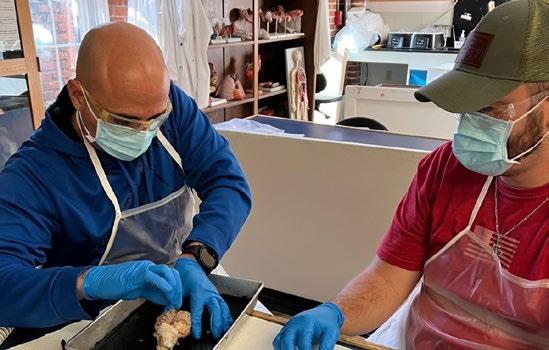

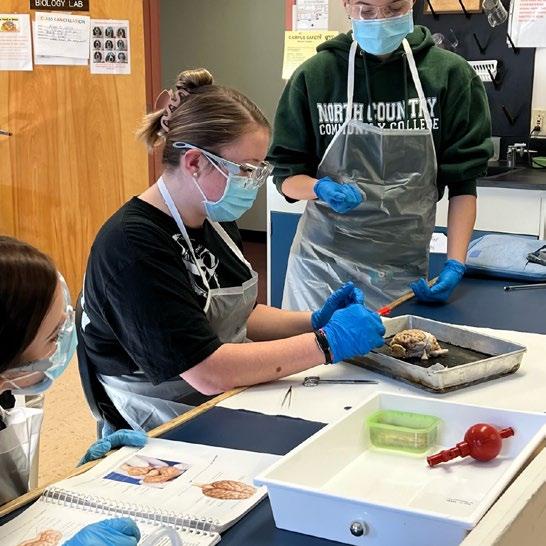
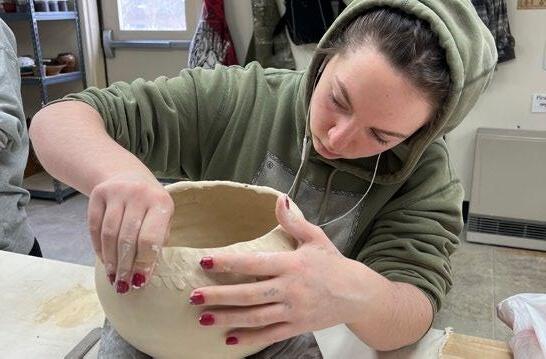

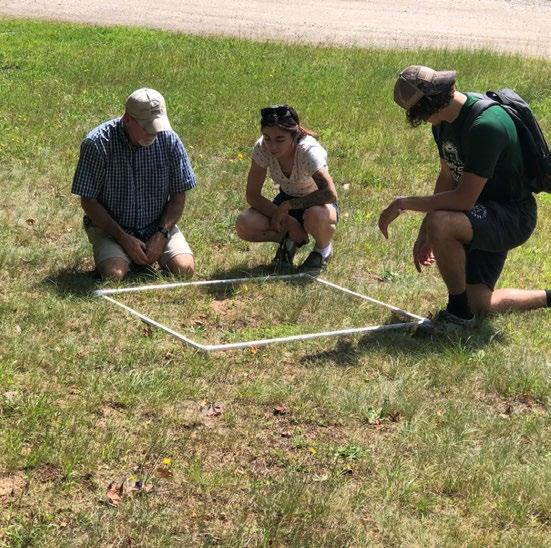
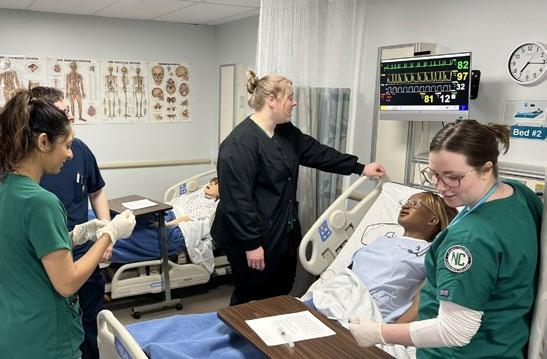
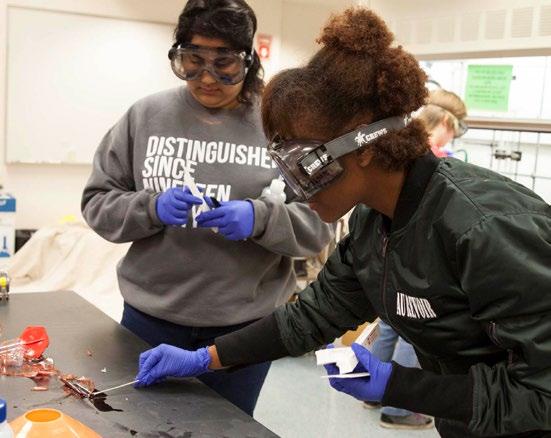
REQUIRED COMPENTENCY AREAS
• Communication:Written and Oral
• Mathematics (and Quantitative Reasoning)
• Diversity: Equity, Inclusion, and Social Justice
• Natural Sciences (and Scientific Reasoning)
A minimum of three of the following six are required for AA-, AS-, and all baccalaureate-degree programs.
• World History and Global Awareness
• World Languages
• Social Sciences
• Humanities
• The Arts
REQUIRED COMPETENCIES:
• Critical Thinking
• Information Management
NORTH COUNTRY COMMUNITY COLLEGE
GENERAL EDUCATION COURSES AT NCCC
Below is a list of those courses at NCCC which meet SUNY General Education requirements. You will need to select courses from at least seven of these areas to ensure transferability of your degree from North Country Community College to a SUNY baccalaureate degree granting institution. Visit http://www.suny.edu/student/ transfer_equiv.cfm and select your desired transfer institution to view the equivalent courses at NCCC. Consult with your advisor and/or the Office of Student and Campus Life if you have questions. More information is available on the SUNY website at http://www.suny.edu/student/academic_general_education. cfm
APPROVED GENERAL EDUCATION COURSE REQUIREMENTS FOR TRANSFERRING WITHIN SUNY
These courses address general education transfer requirements only. Transfer equivalency information is available from the Office of Student and Campus Life. Students transferring are strongly encouraged to seek advisement from a transfer service provider.
U.S. HISTORY and CIVIC ENGAGEMENT
COMMUNICATION - ORAL AND WRITTEN
WORLD LANGUAGES
HUMANITIES
MATHEMATICS
NATURAL SCIENCES
WORLD HISTORY and GLOBAL AWARENESS
SOCIAL SCIENCES
THE ARTS
DIVERSITY: EQUITY, INCLUSION, and SOCIAL JUSTICE
HIS 151; HIS 152; POS 102
ENG 101 (written), ENG 102 (written and oral); ENG 105 (written and oral; ENG 222 (written and oral)
ASL 101; ASL 102; FRE 101; FRE 102; FRE 201; FRE 202; HUM 107; SPA 101; SPA 102; SPA 201; SPA 202
ART 100; ART 106; ART 107; DRA 101; DRA 115; ENG 112; ENG 115; ENG 120; ENG 129; ENG 135; ENG 203; ENG 204; ENG 206; ENG 207; ENG 210; ENG 220; ENG 250; HUM 100; HUM 101; HUM 104; HUM 106; HUM 107; HUM 112; HUM 124/126; HUM 128; HUM 145; HUM 155; HUM 202; HUM 205; HUM 246; MUS 100; MUS 107; MUS 108; MUS 109; MUS 115; MUS 116; PHI 100; PHI 110; PHI 112; PHI 115; PHI 140
MAT 120; MAT 121; MAT 123; MAT 125; MAT 129; MAT 132; MAT 240; MAT 241
ANT 101; BIO 101; BIO 102; BIO 103; BIO 104; BIO 109; BIO 201; BIO 204; BIO 205; BIO 211; BIO 215; BIO 216; BIO 230; BIO 240; BIO 255; CHE 101; CHE 102; CHE 105; EAS 101; EAS 110; HED 102; PHY 101; PHY 102
HIS 101; HIS 102; HIS 103; HIS 104
ANT 101; ANT 135; ECO 101; ECO 102; GEO 101; PSY 101; PSY 105; PSY 130; PSY 138; PSY 202; PSY 203; PSY 265; PSY 222; PSY 253; PSY 254; PSY 263; PSY 270; SOC 101; SOC 107; SOC 108; SOC 109; SOC 110; SOC 125; SOC 155; SOC 200; SOC 215; SOC 165
ART 101; ART 104; ART 105; ART 108; ART 111; ART 114; ART 125; ART 131; ART 137; ART 150; ART 155; ART 200; ART 203; ART 205; ART 206; ART 209; ART 220; ART 230; ART 231; ART 235; ART 245; ART 250; ART 297; DRA 133; DRA 233; ENG 108; ENG 202; ENG 205; ENG 250
ANT 102; PSY 270; SOC 101; SOC 108
HIGH SCHOOL STUDENTS & COMMUNITY MEMBERS
LIFELONG LEARNING
NCCC offers community members opportunities to enroll in non-credit courses, workshops and special events designed to meet the interests of area residents. Regularly offered courses include driving courses and a wide variety of on-line offerings are available through www.ed2go.com/northccc. The annual Holiday Craft Fair is held each year on the Saranac Lake campus.
NCCC can work with local employers or organizations to provide training specific to the needs of the employer or workplace. These can be short-term, non-credit workshops that meet specialized needs.
COLLEGE BRIDGE PROGRAM
The College partners with local high schools and BOCES to offer juniors and seniors college credit courses that also meet high school graduation requirements at the high school. These courses satisfy SUNY General Education requirements and are taught by qualified high school instructors and offer the same content and rigor as a campus course. Enrolled students are considered non-matriculated and can transfer the earned college credits to the college of their choice. Please contact your high school guidance counselor for information about your high school’s guidelines for participating and course offerings.
ON-CAMPUS OPPORTUNITIES
High school students who are 16 or older may be permitted to take an on-campus NCCC course that will also meet a high school graduation requirement. Any interested student should confer with the high school counselor to determine the appropriate course and enroll as a non-matriculated student at the NCCC campus near him or her.
The classroom experience involving interaction with instructors and students is a vital component of the learning process and college experience. Therefore, students are expected to attend all scheduled classes and meetings. Each instructor maintains a policy of class attendance. Students must attend classes and adhere to the instructor’s course attendance policy.
Students are responsible for meeting all academic requirements of a course and following the attendance policy announced by individual instructors. This policy will be announced during the first class meeting and will be explicitly stated in the course syllabus.
The College supports the following attendance guidelines:
• The instructor may assess a penalty to a student’s grade for any absence.
• The instructor may count excessive tardiness or early departures as absences.
• If the student misses more than 20% of class meetings, absence may be considered excessive by the instructor and may result in a student either receiving an “F” or being requested to withdraw (W) from the course by the instructor, which may in turn affect Financial Aid. Students who register for a course and do not attend or stop attending, must officially drop or withdraw from the course within the announced deadlines, or they will receive an “F”. Absence does not excuse the student from responsibility for class work or assignments missed. Instructors, at their own discretion, may establish procedures to allow students who have been absent for valid reasons to make up missed class work.Students who require a lengthy absence from school due to illness, family emergencies, or other situations should contact each of their instructors and the Vice President for Academic Affairs prior to making a decision concerning their NCCC education.
Disputes arising from this policy shall be worked out between the student and the instructor.
No student will be expelled from or be refused admission because of his or her religious beliefs. Student who are unable, due to their religious beliefs, to attend classes on a particular day or days will, because of such absence on the particular day or days, be excused from any examination or any study or work requirements. Students must inform instructors in advance and make alternative arrangements for meeting course requirements.
We believe that all students have a right to learn and faculty have the right to teach. Freedom of speech and expression, cornerstones of our democracy, are protected unless they interfere with an instructor’s ability to teach a course. To that end, we expect that all parties conduct themselves in a manner that does not interfere with this process. Behaviors perceived to be disruptive, disrespectful, offensive and/or threatening and which interfere with their fellow students’ learning and/or a faculty member’s teaching run counter to our values and will not be tolerated.
We trust that our students are committed to partnering with their faculty member(s) and fellow students to establish a positive and productive learning environment for the entire College community and expect that they will do so. There are times when students violate these standards, and in those cases there are a range of sanctions that may be imposed by the instructor or a College official. This misconduct is referenced in the Student Code of Conduct under 3.1b Maintenance of Public Order which defines academic misconduct as “where the student’s conduct interferes with the College’s exercise of its educational objectives or responsibilities to its members whether on College premises or off campus.”
Listed below are examples of behaviors and/or situations that the College deems disruptive, disrespectful or inappropriate for the learning environment, including but not limited to classrooms, video classrooms, computer labs, online learning forums, and field trips. The list is not inclusive of all disruptive or inappropriate behavior:
• Continual tardiness
• Continual exiting from class
• Persistent side conversations
• Inappropriate monopolizing of class time or discussion
• Eating meals in class
• Bringing children to class (refer to “Children on Campus” policy)
Included in the expectations of appropriate academic conduct is the proper use of technology in a course/class. The following are deemed inappropriate use of technology in those settings:
• Texting or other electronic messaging during class
• Using electronic devices in a non-class related manner
• Allowing audible noises from electronic devices to disrupt the class
When a student’s behavior violates these expectations and the incident rises to the level beyond an informal warning, an Incident Report is to be filed identifying the misconduct and the steps taken to correct it. These are formally addressed by College Officers and a redacted copy is shared with the student during their Initial Conference regarding their alleged behavior. The process and procedures for handling classroom misconduct are found below.
The following section outlines the disciplinary process for violations of the classroom conduct expectations and a student’s rights to due process. These procedures and the administration of the code violation supplement those outlined in the NCCC Student Code of Conduct in both Section 3 – Disorderly Conduct (pp 13-16) and in the section on Administration of the Code: “Range of Sanctions and Special Conditions for Students Accused of Violating College Regulations” (pp 34-38). The administration of classroom conduct violations differs from the Student Code of Conduct procedures in that the first Administrative Hearing is held with the Dean of Student Life (or designee).
Students found to be in violation of the classroom conduct standards of the College are subject to a range of sanctions that may be imposed either by the faculty member or the appropriate College administrator. Those sanctions include:
• Formal Disciplinary Warning/repair
• Dismissal from the class for the remainder of the period
• Removal from the class for the remainder of the semester (which includes forfeiture of tuition, fees and other costs associated with the course)
• Formal Disciplinary Probation
Additionally, the Vice President for Academic Affairs may impose another level of sanctions which can include Suspension/Expulsion from the College (which includes forfeiture of tuition, fees and other costs associated with the
course). This is generally reserved for those students who have repeated violations of the classroom conduct standards of the College.
Step 1: The instructor will address the concern quickly and directly with the student to determine if the action was knowing and intentional. The instructor will also establish the behavioral expectations and guidelines the student must follow to remain in the class and communicate those to the student. At this point, the instructor is strongly encouraged to file an academic incident report documenting the student behavior and action taken by the instructor and copy the Department Chair/Director, the Associate Dean of Academic Affairs, the Vice President for Academic Affairs and the Dean of Student Life. The student will also receive a redacted copy of that incident report. Informal reprimands, which occur as part of classroom management, typically do not rise to the level of an “incident.”
Remove the Student from the Class Session: In the event that the behavior is so egregious that it warrants dismissal from the class or where students who have received prior warnings and requests to cease the behavior yet continue to disrupt the classroom, the instructor may remove the student for that class session and follow-up with an incident report documenting the student behavior and action taken by the instructor and copy the Department Chair/Director, the Associate Dean of Academic Affairs, the Vice President for Academic Affairs and the Dean of Student Life. The student will receive a redacted copy of that incident report.
In the event that the student is unwilling to leave the class, the instructor should contact either Campus Security , the Administrator-on-Call or an available College official (Campus Coordinator, Student Life representative, Associate Dean of Academic Affairs, Vice President for Academic Affairs) to assist with the removal of the student. In rare occasions where no administrator is present and there is a need to either protect students and/or the integrity of the lesson, the instructor may need to end the class early.
The instructor will require the student to meet with them prior to the next class period where the instructor discusses the incident and the behavioral expectations and guidelines the student must follow to remain in and return to the course. In the Student Code of Conduct, this is referred to as an “Initial Conference.” At this time, the instructor is to offer the student the opportunity to accept or to deny responsibility for their behavior and to explain the student’s right to dispute the charges. If disputing the charges, the student would next meet with the Dean of Student Life (or designee) for an Administrative Hearing, procedures for which are outlined in the Student Code of Conduct, page 39. If the student fails to appear at this meeting, all charges will be considered true and accurate, and the student will be unable to return to the course until the meeting occurs. It is within the instructor’s rights to not allow for make-ups of missed classes and associated course work (i.e. assignments, exams) resulting from the student’s decision not to meet with the instructor.
Removal from the Course: In cases where the behavior is so egregious that it warrants removal from the course and/or a documented pattern of student misconduct has continued despite earlier interventions, the instructor may request that the student be removed from the course. The instructor may issue a failing grade (F) for the course and the student will be fully liable for any costs and unable to withdraw from the course.
Prior to removal from the course, the instructor will file an incident report detailing the behavior and/or outlining the pattern of misconduct, and earlier attempts at intervening with the student. A copy of this will be distribute to the Department Chair/Director, the Associate Dean of Academic Affairs, the Vice President for Academic Affairs and the Dean of Student Life. A copy will also be provided to the student.
Before being removed from the course, the student is to meet with the instructor to discuss the charges against him/ her, the reason for removal, the student’s rights and the process, and be given the opportunity to accept responsibility for his/her actions. A faculty member may request a colleague to sit in the session with him/her to bear witness, but not participate in the session. If disputing the charges, the student would meet with the Dean of Student Life (or designee) for an Administrative Hearing. If the student fails to appear at this meeting, all charges will be considered true and accurate and appropriate administrative action shall be taken by the Dean of Student Life or designee.
Repeated Violations of the Classroom Conduct Policy: If the student receives two (2) academic misconduct reports, the Vice President for Academic Affairs (VPAA) will arrange an appointment with the student to discuss next possible sanctions as outlined above. If the behavior was egregious enough to warrant removal after a singular incident, the VPAA
will meet with the student after a singular misconduct report. If the student fails to appear at this meeting, all charges will be considered true and accurate and appropriate administrative action shall be taken by the Vice President of Academic Affairs or designee.
In addition to the rights afforded students under the Student Code of Conduct, the student accused of violating the academic/classroom conduct standards of the College will receive a copy of the incident report filed by the instructor and as noted earlier, has the right to request a hearing on the decision with the Dean of Student Life (or designee), ideally within three (3) business days after request. Students are also entitled to appeal that decision to the Dean of Admissions (or designee) and have up to four (4) business days to appeal after receipt of the decision by the hearing officer. Their decision will be final and is not subject to further appeal.
Students who are removed from the course by the instructor due to a violation of the academic/ classroom conduct standards have the right to request a hearing on the decision with the Dean of Student Life (or designee), ideally within three (3) business days after request. The student will not be allowed to attend the class during that time. Permanent removal will be determined after the hearing process and appeal process has been completed Students are also entitled to appeal that decision to the College’s Appellate Officer, the Dean of Admissions (or designee), and have up to four (4) business days to appeal after receipt of the decision by the hearing officer. His/her decision will be final and is not subject to further appeal.
Students who are suspended or expelled from the College by the Vice President for Academic Affairs due to academic/ classroom conduct violations have the right to a hearing with the Dean of Student Life (or designee) ideally within three (3) business days after request. The student will not be allowed to attend any classes during that time. Permanent removal from the College will be determined after the hearing process and the appeals process has been completed. Students are also entitled to appeal that decision to the College’s Appellate Officer, the Dean of Admissions (or designee) and have up to four (4) business days to appeal. Their decision will be final and is not subject to further appeal. Should students be permanently removed from the College during a semester due to violation of the policy, they will be fully liable for all costs and unable to academically withdraw from courses.
For more on the appeals process, see pg. 44 of the Student Code of Conduct http://www.nccc.edu/wp-content/ uploads/2017/08/Student-Code-of-Conduct_revised-August-2017_Final.pdf.
ACADEMIC INTEGRITY
Academic integrity is the commitment, even in the face of adversity, to the five values fundamental to the academic process: honesty, trust, fairness, respect, and responsibility (University of San Diego, 2000).
Honesty involves ethical behavior and abstaining from deceit in all academic work.
Trust involves having confidence in the integrity, ability, character, and truth of a student’s work (assignment, paper, project, test, etc).
Fairness involves all students having an equal chance at learning and participating in educational endeavors, and includes abiding by standards that are applied to everyone in an equitable manner.
Respect involves courteous regard, and proper concern for the welfare of other students, instructors, and oneself.
Responsibility involves taking charge of and being accountable for one’s own honesty, reliability, trustworthiness, and integrity. Students are expected to maintain the highest standards of honesty and integrity in all academic matters. Expected behaviors which illustrate honesty, trust, fairness, respect, and responsibility include, but are not limited to:
• Acknowledging indebtedness and providing proper credit when using another’s ideas, discoveries, words, pictures, graphics, etc. (If unsure, seek guidance from instructors, librarians, or the LAC on how to acknowledge the contributions of others within your writing.)
• Doing one’s own work to receive an honest grade.
• Coming to an exam prepared and only using material and aids authorized by the instructor.
• Participating fully in group projects in which everyone receives a single grade for the work of the whole.
• Completing graded assignments and take-home tests without unauthorized collaboration.
• Reporting knowledge of intended cheating or actual witnessed cheating.
• Cheating, allowing others to cheat, plagiarizing, and lying are serious academic offenses that are subject to disciplinary action.
Lack of awareness or understanding of what constitutes academic dishonesty will not be excused. (If you are unsure of anything in this document, please contact your instructor or advisor immediately for clarification.)
Example behaviors of academic dishonesty include, but are not limited to:
• Plagiarizing by claiming parts or entire works of another as one’s own without providing proper credit. This includes downloading, buying, or having another write your papers, reports, speeches, homework, etc.
• Plagiarizing by submitting a paper or assignment when someone else made extensive corrections or rewrote it without informing the instructor of the extent of that help.
• Self-Plagiarizing by submitting a paper written in an earlier course or using the same paper for two courses.
• Cheating by obtaining specific test content beforehand or by bringing information not preapproved by the instructor into the testing area.
• Cheating by getting answers from another or from a cell phone, the Internet, or other device not allowed by the instructor.
• Lying about attendance, missed exams, late papers, etc., to receive time extensions to study, hand in papers, receive credit for late work, etc., thereby asking for unfair advantage over fellow students.
• Attempting to dissuade fair, equitable, and appropriate grading.
• Lying and blaming others for one’s own lack of effort, preparedness, and choices.
• Cheating by allowing another to copy your answers or to use your work as their own.
• Cheating by providing the answers or by doing the work for another on a graded assignment.
• Cheating by telling what is on a test to someone who should not have that information.
• Collaborating on a take-home test or assignment with others without permission from the instructor.
• Cheating by falsifying experimental data in a laboratory in order to get a better result or to feign an experiment that was not actually conducted.
The following section outlines the disciplinary process for academic integrity violations and spells out the student’s rights to due process. These procedures and the administration of the code violation supplement those outlined in the NCCC Student Code of Conduct in both Section 3 – Disorderly Conduct (pp 13-16) and in the section on Administration of the Code: “Range of Sanctions and Special Conditions for Students Accused of Violating College Regulations” (pp 34-38). The administration of academic integrity violations differs from the Student Code of Conduct procedures in that the first Administrative Hearing is held with the Associate Dean of Academic Affairs (or designee).
Students found to be in violation of the academic integrity standards of the College are subject to a range of sanctions that may be imposed either by the faculty member or the appropriate College administrator. Those sanctions include:
• Formal Disciplinary Warning/repair.
• Failure of the test/assignment
• Failure of the course (which includes forfeiture of tuition, fees and other costs associated with the course).
• Formal Disciplinary Probation.
Additionally, the Vice President for Academic Affairs may impose another level of sanctions which can include Suspension/Expulsion from the College (which includes forfeiture of tuition, fees and other costs associated with the course). This is generally reserved for those students who have repeated violations of the academic integrity standards of the College.
Step 1: The instructor will raise the concern quickly and directly with the student to determine if the action was knowing and intentional.
Step 2: The instructor will determine and implement the appropriate sanction for the offense and communicate those directly to the student. The instructor may consult with their Departmental Chair/Director to discuss appropriate sanctions.
Step 3: Regardless of sanctions determined, the instructor will file an academic incident report and copy the Departmental Chair/Director, the Associate Dean of Academic Affairs, the Vice President for Academic Affairs (VPAA) and the Dean of Student Life. The student will also receive a copy of that incident report.
If the instructor determines that the student fails the exam or assignment, the instructor will meet with the student prior to the next class period to discuss the incident, the sanction (i.e. failure of exam/assignment) and the behavioral expectations and guidelines the student must follow to remain in the course. At that time, the instructor is to offer the student the opportunity to accept or deny responsibility and explain the student’s right to appeal. If disputing the charges, then the student would meet with the Associate Dean of Academic Affairs (or designee) for an Administrative Hearing.
If the instructor determines that actions of the student were egregious enough to warrant failure of the course and/ or there are repeat offenses of the academic integrity expectations by the student in that class, the instructor may issue a failing grade (F) for the course and the student will be fully liable for any costs and unable to withdraw from the course. If not already completed, the instructor will file an incident report outlining the academic integrity violation(s) and the sanction, which is to be shared with the student and copy the Department Chair/Director, the Associate Dean of Academic Affairs, the Vice President for Academic Affairs and the Dean of Student Life and the Registrar’s Office.
Before being issued a failing grade (F) for the course, the student is to meet with the instructor to discuss the charges against them, the reason for the failure, offer the student the opportunity to accept or deny responsibility and explain the student’s right to appeal. If disputing the charges, then the student would meet with the Associate Dean of Academic Affairs (or designee) for an Administrative Hearing.
Step 5: If the student receives two academic integrity reports, the Vice President for Academic Affairs (or designee) will arrange an appointment with the student to discuss possible sanctions as outlined above.
In addition to the rights afforded students under the Student Code of Conduct, the student accused of an academic integrity violation will receive a copy of the incident report filed by the instructor and has the right to request a hearing on the decision with the Associate Dean of Academic Affairs (or designee), ideally within 3 business days after request. Students are entitled to appeal that decision to the Vice President for Academic Affairs (or designee) and have up to four (4) business days to appeal after receipt of the decision by the hearing officer. Their decision will be final and is not subject to further appeal.
Students who are removed from the course by the instructor due to an academic integrity violation have the right to a hearing with the Associate Dean of Academic Affairs (or designee), ideally within 3 business days after request. The student will not be allowed to attend the class during that time. Permanent removal will be determined after the hearing process and appeal process has been completed. Students are entitled to an appeal of that decision to the Vice President for Academic Affairs (or designee) and have up to four (4) business days to appeal. Their decision will be final and is not subject to further appeal.
Students who are suspended or expelled from the College by the Vice President for Academic Affairs due to repeat academic integrity violations have the right to a hearing with the Dean of Student Life (or designee) ideally within 3 business days after request. The student will not be allowed to attend any classes during that time. Permanent removal from the College will be determined after the hearing process and the appeals process has been completed. Students are also entitled to appeal that decision to the College’s Appellate Officer, the Dean of Admissions (or designee) and have up to four (4) business days to appeal. Their decision will be final and is not subject to further appeal. Should students be permanently removed from the College during a semester due to violation of the policy, they will be fully liable for all costs and unable to academically withdraw from courses.
Purpose: The purpose of this policy is two-fold:
For more on the appeals process, see pg. 44 of the Student Code of Conduct http://www.nccc.edu/wp-content/ uploads/2017/08/Student-Code-of-Conduct_revised-August-2017_Final.pdf
ACADEMIC STANDING POLICY
Definition
Semester and cumulative >/= 2.0
Keep up the good work!
Required Student Action
Notes

Semester and/or cumulative < 2.0
None required. Students are recommended to utilize LAC and other academic supports including academic advisor.
After a semester of Academic Warning, semester and/or cum < 2.0.
Academic Success Plan required to be developed by student with advisor review. These identify specific steps students will take to improve and need to be filed with VPAA’s office by end of 3rd week of semester.
After a semester of Academic Probation, cum < 2.0.
Students are required to sit out at least one semester and recommended to sit out three (3) years and apply for Academic Forgivemess.
* If semester GPA >/= 2.0 and cum <2.0 the student remains on academic probation.
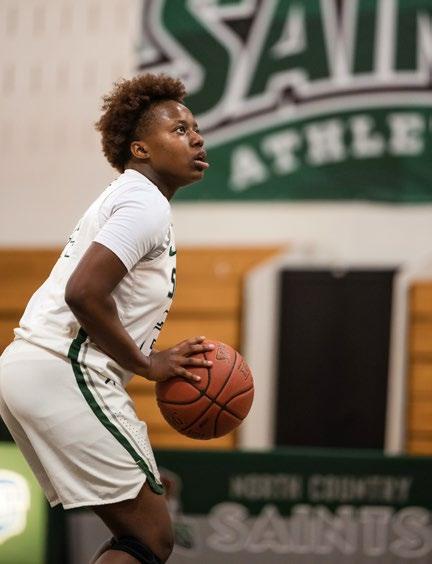
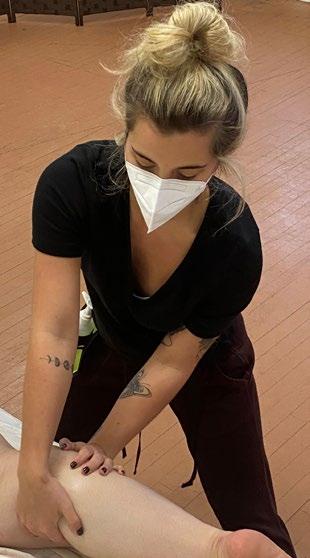
1. To ensure that students are making steady and timely progress towards completion of degree requirements and will have the minimum cumulative GPA of 2.00 that is required to graduate with any certificate or degree from NCCC. 2. To ensure that students who need additional assistance receive that assistance as early as possible to continue to make steady and timely progress towards completing their program of study at NCCC.
To remain a student at North Country Community College, a minimum Grade Point Average (GPA) of 2.00 for each semester at NCCC and an overall cumulative GPA of 2.00 must be maintained. Students who have a semester and cumulative GPA greater than or equal to 2.00 are in Good Academic Standing. Students who have a semester and/or cumulative GPA that is less than 2.00 will have an academic status (Academic Warning, Probation, or Suspension) that indicates a need to improve the GPA. Failure to make Good Academic Progress may lead to dismissal from NCCC.
Students’ transcripts will reflect one of the following statuses for each semester that they are in attendance at NCCC:
GOOD ACADEMIC STANDING - This student is making Good academic progress and is on track to maintain the minimum 2.00 cumulative GPA that is needed to graduate from any program of study at NCCC. This status will be noted on a student’s transcript any time the student has a semester and cumulative GPA that is greater than or equal to 2.00.
ACADEMIC WARNING - A student shall be placed on Academic Warning for the following semester if the student fails to earn a semester and/or cumulative GPA of 2.00 or higher. A student who is on warning needs to work with the appropriate advisor and the LAC to help improve the GPA. Nothing needs to be filed with the Vice President for Academic Affairs office.
After the Academic Warning Semester ends:
• If the semester and cumulative GPA is 2.00 or higher, then the student will be in Good Academic Standing for the next semester.
• If the semester or cumulative GPA is below a 2.00, then the student will be on Academic Probation for the next semester.
• Academic Probation - Following the Academic Warning term, if the semester and/or cumulative GPA is still below 2.00, a student shall be on Academic Probation. A student who is on probation is required to meet with his/her academic advisor and create an academic plan to improve the GPA. This plan needs to be signed by both the student and advisor and then filed with the office of the Vice President for Academic Affairs. A final report from the advisor needs to be filed with the office of the Vice President for Academic Affairs on the student’s progress towards returning to Good Academic Standing.
• After the Academic Probation Semester ends:
• If the semester and cumulative GPA is 2.00 or higher, then the student will be in Good Academic Standing for the next semester.
• If the semester GPA is above a 2.00 but cumulative GPA is below 2.00, then the student will remain on Academic Probation for another semester.
• If the semester GPA is below 2.00 but cumulative GPA is above 2.00, then the student will remain on Academic Probation for another semester.
• If the cumulative and term GPA is still below a 2.00, then the student will be on Academic Suspension for the following semester.
ACADEMIC SUSPENSION - After completing a semester of Academic Probation if the student still has a cumulative GPA less than 2.00, then they will be on Academic Suspension for the following semester. A student who is on suspension will be required to sit out from NCCC for at least one semester. After sitting out a semester, the student will be eligible to reapply to the college for readmission. Options available to a student who is on academic suspension from NCCC:
○Reapply to NCCC for re-admission after sitting out at least one semester.
○A student who sits out for at least 3 years can reapply for admission and Academic Forgiveness (refer to Academic Forgiveness policy for more details)
○If the student feels there were extenuating circumstances beyond his/her control that contributed their inability to maintain Good Academic Progress, then the student can submit a letter of appeal to the Vice President for Academic Affairs for consideration by the ASP Appeals Committee. A student who is granted the appeal will have Suspension Probation status.
• If student’s appeal is approved, the student will be placed on Suspension Probation.
SUSPENSION PROBATION - Any student who returns after being required to sit out for a semester or who petitioned and were granted their appeal from suspension will be on suspension probation. Students on Suspension Probation will follow a probation plan from the ASP Appeals Committee.
After the Suspension Probation Semester ends:
• If the semester and cumulative GPA is 2.00 or higher, then the student will be in Good Academic Standing for the next semester.
• If the semester GPA is above a 2.00 but cumulative GPA is below 2.00, then the student will remain on Academic Probation for another semester.
• If the semester GPA is below 2.00 but cumulative GPA is above 2.00, then student will be on Academic Probation for the next semester.
• If the semester and cumulative GPA is still below a 2.00, then the student will be on Academic Dismissal for the next semester.
ACADEMIC DISMISSAL - After completing a semester on Suspension Probation, a student who has a semester and cumulative GPA that is below 2.00 will be academically dismissed from NCCC. A student who is academically dismissed may not necessarily be readmitted to a matriculated program at NCCC. There is no appeal for Academic Dismissal.
Note. Financial aid requirements are different from the academic requirements, so students should always check with the Financial Aid Office regarding financial aid eligibility.
The Academic Forgiveness Policy (Fresh Start) allows readmitted students who previously accrued a record with a substantial number of grades below a “C” to be ‘forgiven’ for their earlier performance if they meet the following requirements:
• The student must have been separated from the College for a minimum of three (3) academic years.
• The student must have applied and been re-admitted to the College.
• The student must not have completed more than 50% of their desired degree program. If Academic Forgiveness is given, all previous work will be treated as transfer work, thus the student may not transfer in excess 50% of a degree program.
• The student must submit a written petition to the Registrar’s Office within the first semester of returning to NCCC as a matriculated student (electronic communication will not be accepted).
Registrar’s Office
Academic Forgiveness Petition
North Country Community College
P.O. Box 89
23 Santanoni Avenue Saranac Lake, NY 12983
Academic Forgiveness is not an option for a student who:
• Has already received at least one degree or certificate from NCCC.
• Was in “Good Academic Standing” (per the Academic Standards Policy) when they last attended NCCC.
• Has already been granted Academic Forgiveness or Fresh Start in the past.
• Has not been readmitted to the College.
• Has an outstanding financial obligation to the College. If the student is granted Academic Forgiveness, then the following occurs:
• Any courses with a grade of C or higher that meet degree program requirements will be treated as transfer credits. These grades will not be factored into the cumulative GPA.
• Student will be held to the same regulations/requirements as transfer students in number of credits and age limit on courses that can be transferred to NCCC.
• Transcript will still maintain a record of courses taken prior to the granting of Academic Forgiveness.
• Students granted Academic Forgiveness are eligible to graduate when degree requirements have been met.
• For purposes of determining Academic status (warning, probation, dismissal, or graduation): Cumulative average is
determined beginning with the course work completed after Academic Forgiveness is granted.
• For purposes of determining Financial Aid status: All previous coursework at North Country Community College must be included in each review of academic progress for Federal and State aid; therefore, even coursework forgiven academically must be considered in the review. Students should contact the Financial Aid office should they require additional information.
North Country Community College uses Microsoft Office software. While students may use other software if they prefer, anything that they send to a College office or employee needs to be Microsoft Office compatible. Helping to facilitate this requirement, web versions of Office software are available for use by all students via their Office 365 email accounts (https://owa.nccc.edu) via a web browser.
NCCC provides all students with an email account and web portal account when they first register. Each student is assigned a username and password which is required to access email, the web portal, D2L Brightspace, and any NCCC computer. It is critical that students remember to logoff when they finish using a computer. These accounts are maintained throughout the students’ attendance at NCCC and for 365 days past the last date of attendance. Student email (https://owa.nccc.edu) is a vital method of communication at NCCC, and the College uses this method in many of its official communications with students. Students are expected to check their email accounts daily to insure receipt of College-related communications. Students are responsible for the consequences of not reading College-related email communications sent to their official account.
The web portal (https://student.nccc.edu) provides students access to their academic, billing, and Financial Aid records as well as course information and a wide range of student services. Students can track their academic progress, register for courses, manage their Financial Aid and semester bills, access course information and grades, and access a wide variety of College services including an electronic library and career services. Students are encouraged to check their web portal accounts daily for updates.
Students are required to use their NCCC accounts in accordance with the Responsible Use of Electronic Communication and Code of Conduct, found in the appendix of this catalog and on the college website. Failure to comply with these policies while using your NCCC accounts could result in disciplinary action.
Technology orientation sessions are held for new students. Familiarity with the web portal tools, D2L Brightspace and email is essential for student success. All faculty and administrative offices use these tools to communicate with students.
The College’s web portal is used to provide students with access to grades. Students are encouraged to use the web portal to track their progress in courses. Some faculty require uploading of course assignments via the web portal. Uploaded file formats are required to be Microsoft Office compatible. For online and some traditional courses, instructors may also require the use of D2L Brightspace to access and submit assignments and materials. See the Online Learning section of the website for more information and the D2L Brightspace Student Online Orientation.
Course mid-term and final grades are posted within the web portal for all full-term classes. Mid-term grades are posted around week 8 of the course and finals are posted within 7 days of course completion
NCCC maintains a technical support help desk to assist students with e-mail, web portal, and general use problems/ questions. The NCCC helpdesk can be reached via email at helpdesk@nccc.edu or by calling 518-891-2915 ext. 4357.

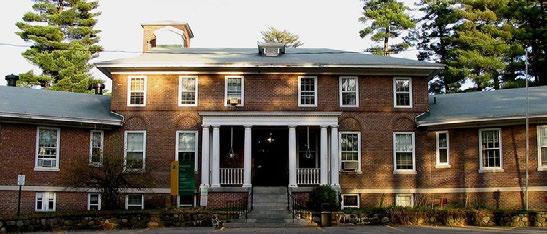

ACADEMIC PROGRAMS
When selecting an academic program, students should note whether the desired program is offered at the campus they wish to attend. Students considering a program that is not offered at their desired campus should note that, while some applicable courses may be scheduled at that campus or be available, they will have to matriculate into an academic program that is offered at their desired campus.
ACADEMIC PROGRAM
Environmental Studies
Liberal Arts & Science: Humanities & Social Science
Liberal Arts & Science: Humanities & Social Science and Psychology Track
Liberal Arts & Science: Humanities & Social Science and English Track
Liberal Arts & Science: Early Childhood/ Childhood Education
MALONE SARANAC LAKE TICONDEROGA ONLINE
ASSOCIATE OF ARTS DEGREE
ASSOCIATE OF APPLIED SCIENCE DEGREE
Business Administration
Chemical Dependency Counseling
Criminal Justice
Digital Arts and Design
Entrepreneurship Management
Human Services
Individual Studies
Massage Therapy
Nursing - RN
Radiologic Technology
Business Administration
Business Administration: Healthcare Administration Track
Child & Family Services
A.S. Cybersecurity and Digital Forensics
Sports & Events Management
Environmental Science
Health Science
Liberal Arts & Science: Math & Science
Wilderness Recreation Leadership
ASSOCIATE OF SCIENCE DEGREE
Community Residence Aide
Computer Graphics & Design
Digital Advertising & Design
Entrepreneurship
Gerontology
Health Sciences
Practical Nursing - LPN
Teaching Assistant
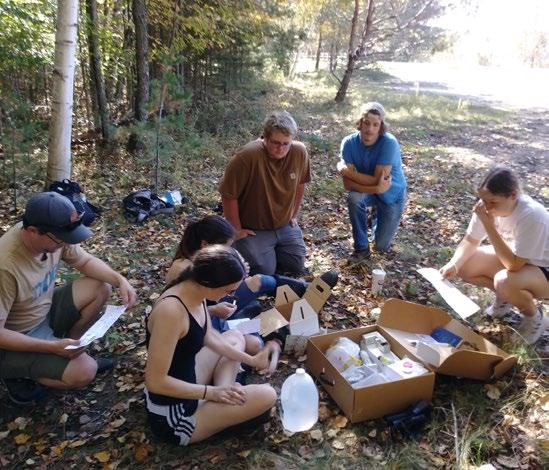

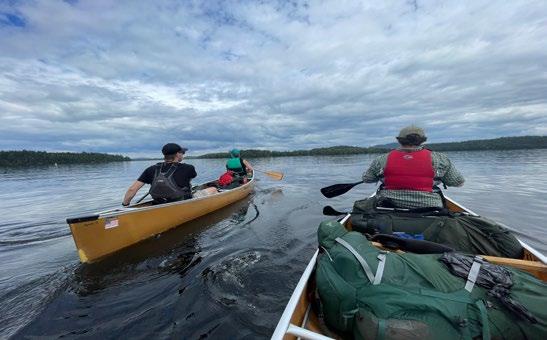
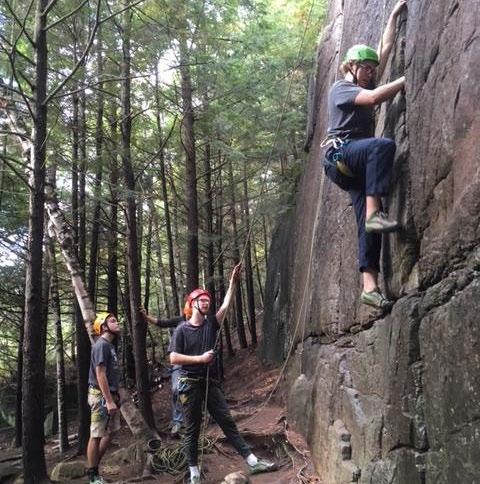
DEGREE PROGRAM REQUIREMENTS
Please Note: Should program requirements change while a student is enrolled in a program, the student will graduate under the requirements stated at the time they matriculated into the program. Always check the web portal or website for the most up-to-date offerings between catalog preparations.
(HEGIS 5603) This degree program is intended as a transfer program leading to a Bachelor’s degree in Environmental Studies or related field. The program is designed to engage students in the types of dialogues and the broader issues facing the United States and the world such as environmental policies, economic development, responsible land management practices, and responses to climate change. By appropriate course selection with input from transfer institutions, students may prepare for transfer to upper division study in environmental studies, law, policy, and advocacy.
(HEGIS 5649) This degree is intended as a transfer program leading to the Bachelor’s degree. By appropriate course selection with a faculty advisor, students may prepare for transfer to upper-division study in a variety of Liberal Arts majors. The program requires a distribution of courses selected from the principal disciplines of Liberal Arts & Sciences.
Any course on the list of SUNY-approved General Education courses that meets the requirement for Social
Any course on the list of SUNY-approved General Education courses that meets the requirement for US History/Civic Engagement or World History/Global Awareness
or SOC.
Any course on the list of SUNY-approved General Education courses that meets the requirement for Art (includes creative writing, filmmaking, and drama)
: Any course on the list of SUNY-approved General Education
(HEGIS 5649) This degree is intended as a transfer program leading to the Bachelor’s degree. By appropriate course selection with a faculty advisor, students may prepare for transfer to upper-division study in a variety of Liberal Arts majors. The program requires a distribution of courses selected from the principal disciplines of Liberal Arts & Sciences.
AND WRITING ELECTIVES: Select from DRA 115, ENG 120, ENG 129, ENG 135, ENG 202, ENG 205, ENG 210, ENG 211, ENG 220, ENG 250, ENG 203, ENG 204, ENG 206, ENG 207, ENG 108, ENG 202, ENG 205 or ENG
ART: Any course on the list of SUNY-approved General Education courses that meets the requirement for Art (includes creative writing, filmmaking, and drama)
HISTORY: Any course on the list of SUNY-approved General Education courses that meets the requirement for US History/Civic Engagement or World History/Global Awareness
from: BIO 109; BIO 101; BIO 102; BIO 104 and BIO 108; BIO 201; BIO 215; BIO 216; CHE 101; CHE 102; EAS 101; PHY 101; PHY 102
OR SCIENCE
Select from MAT 121 or higher, ANT 101 BIO, CHE, EAS, PHY, or SCI
Select from: ANT, ART, BIO, CHE, DRA, EAS, ECO, ENG (except ENG100), FRE, GEO, HIS, HUM, MAT (except MAT095, MAT100, MAT 101), MUS, PHI, PHY, POS, PSY, SCI, SOC or SPA. (DRA, ENG, HUM, or PHI strongly recommended)
ELECTIVES
from any credit course offering (100 level or higher)
HEALTH Select from PED, CSP or HED
(HEGIS 5608.00) This track provides a pathway for students wishing to transfer to a four-year degree in education, specifically in the areas of Early Childhood and Childhood Education. With a strong foundation in the liberal arts, students will be introduced to the field of education and child development. Courses include the opportunity for field work to explore and gain experience working with young, school-aged children. Courses prepare students to transfer to a baccalaureate program and begin a career as an early childhood educator or an elementary school teacher.
Any two courses on the list of SUNY-approved General Education courses that meets the requirement for World Languages. (This must be a two-course sequence.)
ART: Any course on the list of SUNY-approved General Education courses that meets the requirement for Art (ART 101, ART 111 or DRA 133 recommended)
: Any course on the list of SUNY-approved General Education courses that meets the requirement for
(ART 106/ART 107/ ENG 112 recommended)
(HEGIS 5649) As a track within the larger A.A. Liberal Arts: Humanities and Social Science degree, this program is intended to facilitate transfer to a Bachelor’s degree program in Psychology. Students will be prepared for upperdivision study within the field of Psychology. The program requires a distribution of courses selected from Psychology and other principal disciplines of Liberal Arts & Sciences.
(HEGIS 5004) This degree is intended for students who desire a career in business that will qualify them to enter directly into responsible and productive careers in industry and commerce in the public and private sectors of business. Students receive classroom instruction giving them a solid educational foundation and hands on experience to be successful in today’s business world. If academically qualified, students may be given the option of completing an internship providing real world experience. This program may also be customized to allow for transfer to an upper division college.
or
150 (BUS 211, BUS 212, or BUS 220 are
(including
Select from ANT,
BIO, CHE, DRA, EAS,
(except ENG 100), FRE, GEO, HIS, HUM, MAT (except MAT 095 or MAT 100), MUS,
PHY,
PSY, SCI,
or SPA. One course must meet the
(HEGIS 5506) This program addresses the needs of a society rife with alcohol and substance abuse problems. These conditions have tremendous and far-reaching impacts on children, families and other members of our communities. Students in this program receive both academic and experiential preparation to serve those same individuals, families and communities. Graduates of the program have met the 350 Education and Training hour requirements of New York State’s Office of Alcoholism and Substance Abuse Services (OASAS) and may apply for CASAC-Trainee status with OASAS. Students are required to achieve a 2.0 final grade point average in each Program Core Course in order to progress in the program.
(HEGIS 5505) The Criminal Justice program offers students an opportunity to prepare for local, state, and federal positions related to city police forces, industry controls, correctional facilities, conservation and environmental departments, private investigation agencies, and parole offices. Instruction goes beyond the classroom in this field of study; our graduates have the opportunity to complete hands-on work as well. By appropriate course selection, in consultation with faculty advisors, graduates of the program will have an opportunity to transfer to four-year colleges to acquire a bachelor’s degree in related areas of study. A grade of 2.0 or higher is required for all program core courses to meet degree requirements.
(HEGIS 5012) Through hands-on learning, students will be prepared to work professionally in today’s digital age. Students learn the basic concepts of graphic design and develop their artistic potential while working to master the tools and technologies applied in both traditional and digital imaging. In addition, students perfect their hand-art skills with studies in drawing and design, and master essential concepts related to multimedia, print, and web-based publishing. Students train on state-of-the-art computers and learn the software applications currently used by graphics professionals. Students master vector and raster-based drawing programs as well as the techniques essential to production of attractive digital documents. Graduates of the program are well-prepared for transfer into Baccalaureate institutions as well as for employment.
Note: CIS 100 is required for those without proven computer competency.
degree is offered for students who desire preparation and experience for the business world, with an emphasis on management skills. The program is occupationally oriented with an opportunity for an internship after two semesters if the student demonstrates successful academic achievement. The site of the college affords the student to be immersed into the tourism trade of the Adirondack Park.
Select
(HEGIS 5506) This program is offered for students interested in preparing for work in community and institutional settings in mental health, developmental disabilities, substance abuse, gerontology, and education. Students work directly with clients at nearby facilities as part of their course of study. Many students choose to transfer to Bachelor’s Degree programs in social work, human services, education, and social sciences. Students are required to achieve a 2.0 final grade point average in each Program Core Course in order to progress in the program.
(HEGIS 5699) This program affords students an opportunity to explore career options. A base of Liberal Arts and Sciences courses is combined with a program core designated to expose students to a wide range of disciplines outside the Liberal Arts and Sciences. This program core allows students to develop a concentration in a specific area once previous course work has revealed an individual interest in that area. Areas of concentration include Business, Humanities, Human Services, Math/Science, and Social Science.

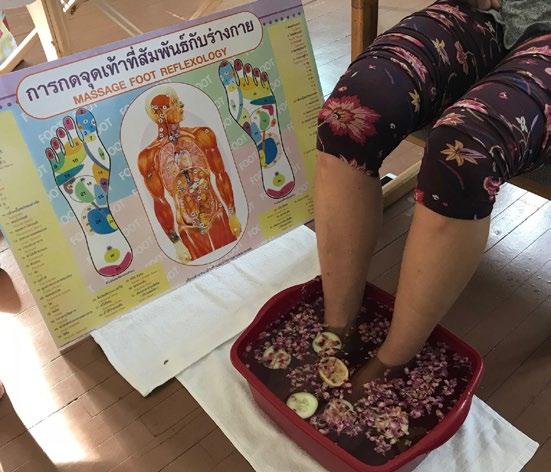
A.A.S. MASSAGE THERAPY
(HEGIS 5299) North Country’s Massage Therapy program is a path to a rewarding profession and a commitment to personal development. The program provides a quality educational experience, in a rich interpersonal environment. The campus features its own student run massage therapy clinic; open to students, staff and the surrounding college community. Through their interactive experience in the classroom and the clinic, students are provided with the tools to be the facilitators for the well-being and growth of others. The program includes the classroom hours in science and massage theory; and hands-on experience required for professional licensure. North Country’s Massage Therapy Program is registered and approved by the New York State Education Department. Program graduates will be qualified to take the New York State Massage Therapy Exam and the National Certification Exam. A grade of C or higher is required for all classes within the Core Curriculum to continue in the Massage Therapy Program.
(HEGIS 5208.10) The Nursing Program adheres to a career-ladder concept in nursing education that provides upward mobility for students, without repetition of previous education and experience. Courses of study in Nursing consist of a two-semester, full-time Practical Nursing Program and a two-semester, full-time Associate Degree Nursing Program for students that have a successful completion of the Practical Nursing Certificate, and eligibility to make application to take the examination for licensure as a Licensed Practical Nurse. Completion of the Practical Nursing course of study does not assure admission into the Associate Degree Nursing Program. Students must apply for entry into this program and compete with all other applicants of that year. Successful completion of the Associate Degree Nursing course of study leads to an Associate in Applied Science degree and eligibility to make application to take the New York State Board Nursing examination for licensure as a registered professional nurse.
To enroll in the Nursing programs, students must meet medical and physical eligibility requirements. All students must complete a yearly physical examination, obtain student professional liability insurance and fulfill health, clinical and reporting requirements.
Note: Current New York State LPN licensure and completion of prerequisite courses are required for entry into program.
(HEGIS 5207) A Radiologic Technologist is an allied health professional who combines patient care procedures with an in-depth knowledge of human anatomy and proficient utilization of radiographic equipment. A Radiologic Technologist produces informative diagnostic images of the human body while exposing the patient to minimum amounts of radiation. By appropriate course selection, in consultation with a faculty advisor, graduates of the program will have an opportunity to transfer to a four year college to acquire a bachelor’s degree in related areas of study. The Radiologic Technology program at North Country is one of the oldest in the country.
Program graduates will be qualified to take the examination of the American Registry of Radiologic Technologists for national certification and subsequent licensure by the State of New York. A GPA of at least 2.00 is required in all core courses and Science courses.
(HEGIS 5004) This degree is intended primarily as a transfer program leading to the Bachelor’s degree. The program requires a distribution of courses representing the freshman and sophomore years of a four-year Bachelor’s program. By appropriate course selection with input from transfer institutions, transfer counselors and academic advisors, students may prepare for transfer to upper division study in business administration, accounting, management, marketing and related fields.
(HEGIS 5004) This degree is intended primarily as a transfer program leading to the Bachelor’s degree. The program requires a distribution of courses representing the freshman and sophomore years of a four-year Bachelor’s program. By appropriate course selection with input from transfer institutions, transfer counselors and academic advisors, students may prepare for transfer to upper division study in business administration, accounting, management, marketing and related fields.
(HEGIS 5506) This program prepares students for and facilitates their entry into the children and family services workforce and/or towards pursuing a baccalaureate degree in the human services or related fields such as social work. The program focuses on the academic foundations, core competencies/skills, a commitment to and practice of increasing self-awareness and applied ethical decision-making skills that are hallmarks of this profession. By appropriate course selection with input from transfer institutions and academic advisors, students may prepare for transfer to upper division study in child and family services as well as other human service-related fields.
(HEGIS 5505) Cybersecurity and Digital Forensics provides students with the foundational knowledge about the criminal justice and cybersecurity field, focusing on the investigative elements of cybersecurity incidents and crimes. This program is jointly registered with Herkimer College and students will take the cybersecurity-specific courses online through Herkimer College. Students have the option to take NCCC courses either online or face-to-face. A grade of C is required for all Program Core Courses to meet degree requirements.
HEGIS (5604) The Environmental Science curriculum provides students with a scientific foundation exploring the management of the Earth’s systems. With a focus on the interaction between the natural world, human activity, and the larger environment, students will develop an understanding of the earth’s systems and their interdependence and learn to critically evaluate diverse sources of information necessary for sound environmental analysis.
from any course that meets the General Education category of Diversity, Equity, Inclusion, and
from
ECO, GEO, HIS, POS, PSY, or SOC (HIS 121 is
1. Experiential Art: Any course on the list of SUNY-approved General Education courses that meets the requirement for Art. (3 cr). 2. Humanities: Any course on the list of SUNY-approved General Education courses that meets the requirement for Humanities.(3 cr)
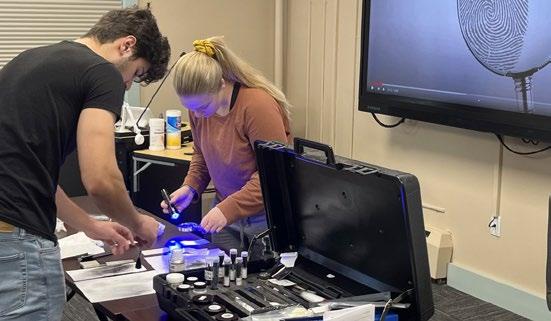
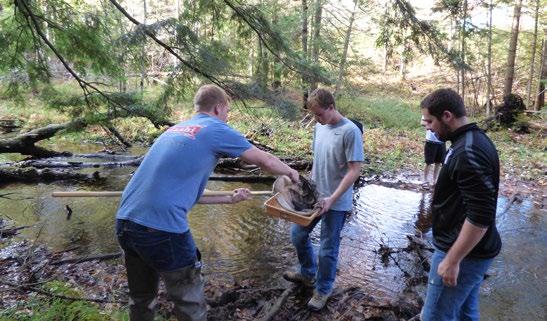
(HEGIS 5299) Grounded in the Liberal Arts, the A.S. Health Science Degree is designed primarily as a transfer degree for students interested in furthering their studies in the allied health fields. For students preparing to enter the Radiologic Technology or Nursing degree programs, this degree is structured to allow those students the flexibility to move into those programs, if accepted, without significant impact. For those students who pursue the degree without an eye towards an NCCC Allied Health program, the courses build upon a foundation in biology, chemistry, health, English and math courses.

(HEGIS 5649) This degree is intended as a transfer program leading to the Bachelor’s degree. By appropriate course selection with a faculty advisor, students may prepare for transfer to upper-division study in a variety of Liberal Arts majors. The program requires a distribution of courses selected from the principal disciplines of Liberal Arts and Sciences. The program requires a distribution of courses representing the freshman and sophomore years of a four year Bachelor’s program, although A.S. graduates possess skills and knowledge to take their places in the work force.
6
3
3 credits to be selected from MAT 121 or higher
3 credits to be selected from MAT 129 or higher
Select from ANT 101, BIO, CHE, EAS, MAT 121 or higher, PHY, or SCI.
Note: Students who will be transferring to a four-year school should select courses that meet requirements for their preferred program and may be required to take one of the following course sequences: (BIO 101 & BIO 102) OR (CHE 101 & CHE 102) OR (PHY 101 & PHY 102).
Any course on the list of SUNY-approved General Education courses that meets the requirement for U.S. History/Civic Engagement or World History/Global Awareness.
Any
Any course on the list of SUNY-approved General Education courses that meets the requirement for Art (includes creative writing, filmmaking, and drama) 3
Select from any course on the list that meets the General Education Cateqorv of Diversity, Equity, Inclusion, and Social Justice.
Select from ANT, ART, DRA, ECO, ENG (except ENG 100), FRE, GEO, HIS, HUM, MUS, PHI,
or
Select
(HEGIS 5099) North Country was the Official College of the 1980 Winter Olympics in Lake Placid. The College’s location in the 6 million acre Adirondack Park and Olympic Region provides a perfect location for the Sports and Events Management Program. Designed in cooperation with the Olympic Regional Development Authority of New York State, this program prepares students to transfer to four-year institutions or gain employment in the Recreation, Leisure, and Sports Management field. The required Internship allows our students to gain invaluable practical experience at a vast and diverse array of Internship sites in one of the finest year around recreation areas in the world. The program combines course work in Sports Management, Recreation, Business, Liberal Arts, and Physical Education and Health.
(HEGIS 5506.10) To enroll in the Wilderness Recreation Leadership (WRL) program, students must meet medical and physical eligibility requirements; all students must complete yearly physical examination and fulfill health information reporting requirements. The WRL program is selective and progression to the second year is dependent upon successful completion of prerequisites and approval of the Program Director. The Wilderness Recreation Leadership degree program has been training outdoor educators, professionals and guides since 1979. The program shared its beginnings with the Wilderness Education Association and continues with strong curriculum and traditions today. By offering students hands-on opportunities to practice leadership and wilderness skills in a backcountry setting, WRL offers a unique and unparalleled college experience. Ideally located in the heart of the Adirondack mountains, WRL students enjoy easy access to world-class climbing, paddling, skiing, backpacking, hunting & fishing. Additionally, Whiteface Ski Mountain and Lake Placid Olympic venues are just a short drive from campus.
(Note: If student chooses to take 4 cr. course, will graduate w/65 credits)
in two (2) of the following
(HEGIS 5299) Students may enroll in both EMT and AEMT courses as either a non-credit student, non-matriculated (non-degree seeking) student or a matriculated (degree-seeking) student. Matriculated (degree-seeking) students have the option to apply for both federal and state financial aid programs. Non-credit students who are volunteer members or employees of NYS EMS agencies at the time of registration may apply to offset EMT course tuition by the anticipated $700 state level reimbursement (only available EMT level). Eligible students should complete a NYS DOH 3312 Form (Verification of Membership in a NYS EMS Agency) and submit to emstraining@nccc.edu
COMMUNITY RESIDENCE AIDE
(HEGIS 5506) This program trains individuals for career opportunities as Community Residence Aides working with the developmentally disabled. As mandated by the New York State Office of Mental Retardation and Developmental Disabilities, this program includes “onthe-job” training in-state and voluntary agency settings as well as classroom training in the necessary aspects of client care.
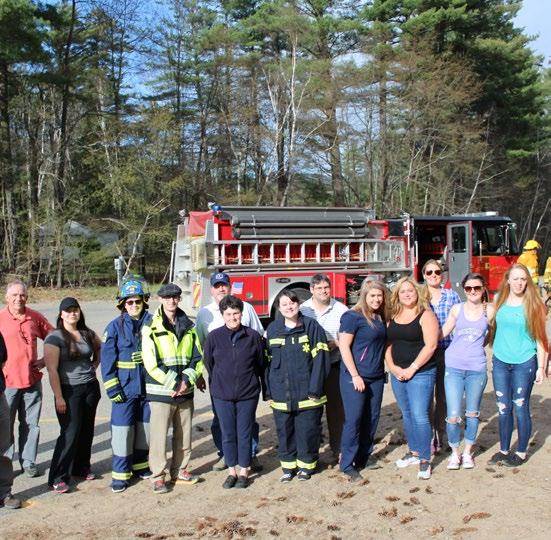
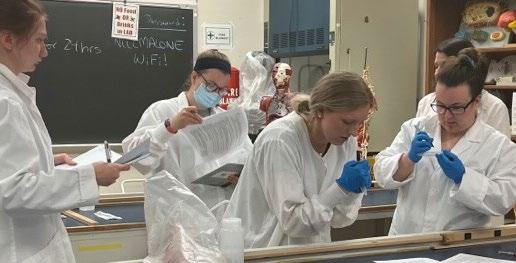
(HEGIS 5012) The Computer Graphics certificate educational and career objectives are vocational in nature. Employment preparation as well as seamless entry into numerous Associate Degrees at NCCC is available to graduates of the program. There are numerous businesses within the Adirondack Park that would employ graduates from this program.
(HEGIS 5004) This certificate program is offered for students who desire a focused preparation for the business world, with an emphasis on business ownership and management skills. The program is occupationally oriented and provides foundational business knowledge and skills such as small business accounting, business law, and human resource management. The site of the college affords the student to be immersed into the tourism trade of the Adirondack Park.
The Digital Advertising and Design Certificate prepares students to use the digital arts to build and enhance marketing and advertising processes and materials to help businesses compete in the digital marketplace. A solid foundation in artistic design, advertising, and small business applications allows graduates in this certificate program to serve multiple needs within the marketing and management of businesses.

(HEGIS 5506.20) The Certificate Program in Gerontology prepares students in five general areas: written communication, cultural awareness, gerontology knowledge, management skills, and service skills. The student completing this program will be equipped with the skills necessary to function effectively in an agency or organization serving the aged or in working directly with older adults. This certificate may be completed in one year.
HEALTH SCIENCE
(HEGIS 5299) The purpose of the Health Science certificate is to give students a background in biology, chemistry, health, English, and math courses. This will prepare them for further study in fields such as nursing and radiologic technology. It could also prepare students for entry-level health related jobs such as ER admit clerk, ward clerk, or clinical receptionist. It can be completed in one year of full-time study.
MATHEMATICS
To be selected from MAT 100 or higher (Please note: MAT 108 has been deactivated but if a student has taken the course prior to Fall 2013, they may use it to meet this requirement)
BIO 109: HUMAN BIOLOGY OR BIO 101: PRINCIPLES OF BIOLOGY
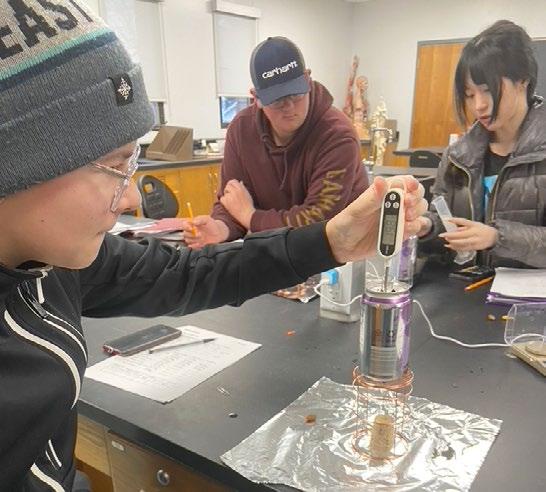
Select from BIO 201: MICROBIOLOGY; OR BIO 211: PHARMACOLOGY OF ALCOHOL/DRUGS; OR BIO 255: INTRO TO DISEASE; OR PHY 100: CONCEPTS OF PHYSICS
ENG 101: ENGLISH COMPOSITION I
SOC 101: INTRO SOCIOLOGY OR SOC 108: SOCIOLOGY OF DIVERSITY
from any credit course offering
HEGIS (5209.20) Successful completion of the Practical Nursing course of study leads to a Certificate of Achievement and eligibility to make application to take the examination for licensure as a Licensed Practical Nurse. Completion of the Practical Nursing course of study does not assure admission into the Associate Degree Nursing Program. Students must apply for entry into this program and compete with all other applicants of that year. Since the Practical Nursing Program and the Associate Degree Nursing Program are separate programs, all individuals, including graduates of the Practical Nursing program at NCCC, must make formal application for consideration for entry into the Associate Degree Nursing Program.
(HEGIS 5503) The Teaching Assistant Certificate is designed to provide for Immediate employment but also allows for coursework in the certificate program to be applied directly to our A.A. Liberal Arts & Sciences: Ear1y Childhood/ Childhood Education. This program meets the educational requirements to take the NYS certification test, Assessment of Teaching Assistant Skills (ATAS) exam, but the certification is not included in the certificate program.
The Teaching Assistant Certificate program emphasizes essential communication skills such as composition, reading and public speaking, child development, basic understanding of computing skills, and the background for historical and mathematical concepts
4
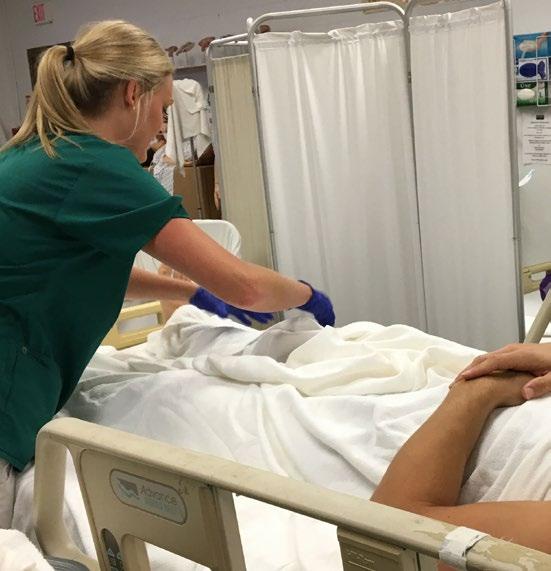
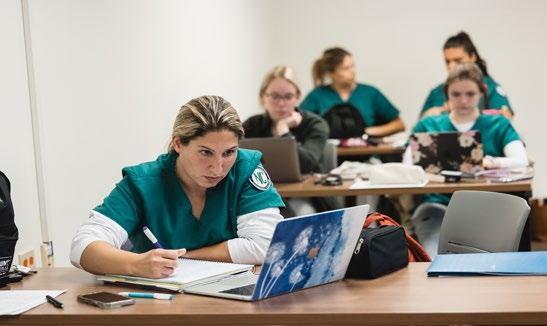
Microcredentials are groups of related courses that provide specific skill sets for a chosen career field. Credentials may range from 3-15 credits. North Country Community College’s microcredentials align with the SUNY Microcredential Policy. The SUNY website defines Microcredentials as “short, focused credentials designed to provide in-demand skills, know-how and experience. Stackable microcredentials can also provide a pathway to a certificate or full degree, now or when you are ready.”
DIRECT SUPPORT PROFESSIONAL I
(First tier of the microcredential program.) (This program trains individuals for career opportunities as Direct Support Professionals working with the developmentally disabled. This microcredential aligns with the National Association of Direct Support Professionals (NADSP) certifications and students who successfully complete it will earn badges in the following competency areas: Crisis Intervention and Prevention; Health and Wellness; Person-Centered Practices; and Safety.
DIRECT SUPPORT PROFESSIONAL III
(Third tier of the microcredential program. To enroll, students must complete the DSP I and II microcredentials.) This program expands further on the knowledge base presented in the DSP I and II microcredentials. This also aligns with the National Association of Direct Support Professionals (NADSP) certifications and students who successfully complete it will earn badges in the following competency areas: Empowerment and Advocacy; Community Living Skills and Supports; Education; Training, and SelfDevelopment; and Cultural Competency.
CREDITS REQUIRED COURSES
3 HUS 201: BASIC COUNSELING SKILLS 3 PSY 202: DEVELOPMENTAL PSYCHOLOGY
DIRECT SUPPORT PROFESSIONAL II
(Second tier of the microcredential program. To enroll, students must complete the DSP I microcredential.)
This program helps individuals expand their knowledge base and expand their career opportunities as Direct Support Professionals working with the developmentally disabled. This microcredential aligns with the National Association of Direct Support Professionals (NADSP) certifications and students who successfully complete it will earn badges in the following competency areas: Evaluation and Observation; Professionalism and Ethics; and Community Inclusion and Networking.
3 HUS 242: DEVELOPMENTAL DISABILITIES
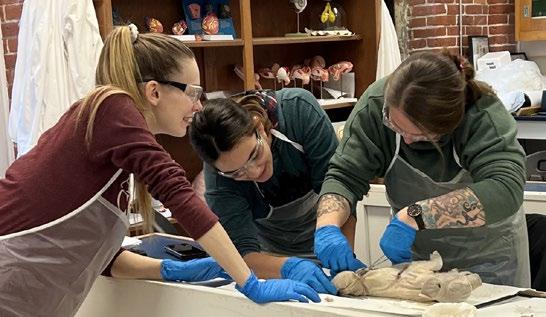
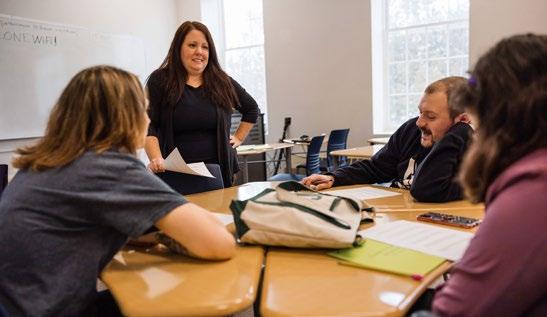
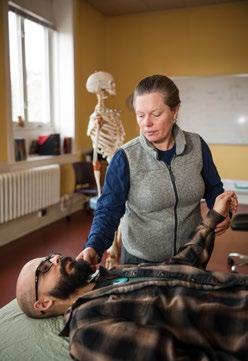
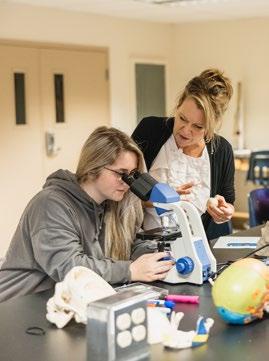
North Country offers a varying schedule of non-credit, short-term offerings that may include microcredentials, bootcamps, or trainings for various exams for certification. These courses include but are not limited to:
North Country Community College aims to make Emergency Medical Technician (EMT) and Advanced Emergency Medical Technician (AEMT) training accessible and affordable. The College will assist all students enrolling in EMT and AEMT courses evaluate all available funding options.
Students may enroll in both EMT and AEMT courses as either a non-credit student, non-matriculated (non-degree seeking) student or a matriculated (degree-seeking) student. Matriculated (degree-seeking) students have the option to apply for both federal and state financial aid programs.
The Child Development Associate (CDA) is a National Credentialing program that provides education and training to individuals interested in working within the early childhood field. It is a comprehensive program that encompasses all aspects of the fundamentals of child growth and development. Students enrolled in the CDA program at NCCC will earn 120 required hours to apply for the CDA credential, CDA exam preparation and assistance with a required professional portfolio.
UpNCoding provides a 12-week course designed to prepare students for the modern software engineering workplace; with the goal of providing opportunities across multiple industries and varying sized companies.
The class meets 3 times per week for 3-hour sessions, led by 1-2 industry experienced instructors. The course introduces software engineering principles through instruction led projects and industry standard tools that students will interact with in their future technology careers. While other institutions focus on a front-end app development, UpNCoding is providing a more well-rounded full-stack education that better addresses the growing needs of the software engineering industry.
As part of completion of the course, students prepare for modern software interview processes and are educated on the various potential entry-level positions from Full-Stack Engineer to Machine Learning Engineer. UpNCoding is in the process of creating a partner network where students would be able to interview for open positions immediately after completion of the course.
The course will be presented in 14 modules by both wastewater operator experts and wastewaterr engineers and will incorporate in-person presentations, laboratory training, and supportive elements on our learning platform. The classes will be in-person with some virtual opportunities.
An extensive supportive math element is included as part of the training, to help the students understand the formulas needed to run a wastewater facility.
See the NCCC website for current offerings.
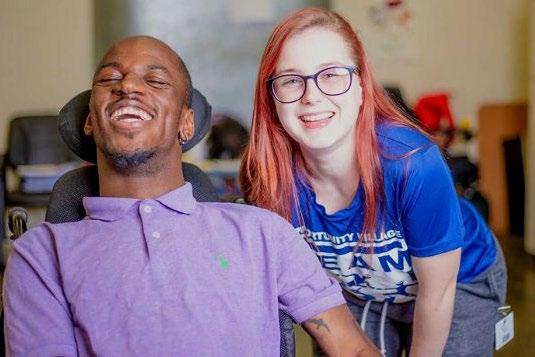



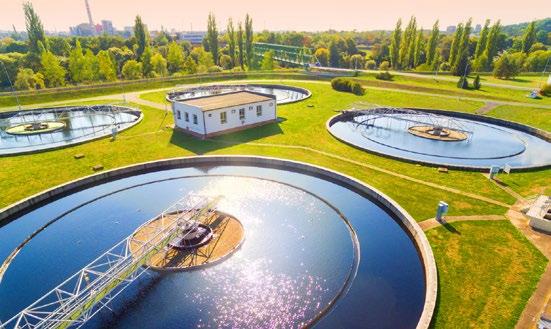


Please note that not all courses are offered every semester. Refer to the semester course schedule for detailed information for that semester. Course descriptions are subject to change; refer to the College’s website for up-to-date specifics. For a complete listing of all active courses, please contact the Registrar’s Office.
ANT 101 Introduction to Human Origins
3 credits
Explores the origins and subsequent evolution of the human species based upon analysis of the fossil record. Our biological inheritance, including the origins of culture, language and other characteristics which make us human, will be investigated as will the methods used by physical anthropologists. Contemporary human variation will also be examined.
102 Cultural Anthropology
3 credits
A branch of anthropology focusing on the study of cultural variation. Based upon ethnographic, linguistic, social, and psychological data, human cultures are scientifically examined. Areas of study traditionally include social structure, language, law, politics, religion, magic, art, and technology.
ANT 135 Archaeology
3 credits
The study of past cultures based upon their physical remains: buildings, tools, and other artifacts. Archaeology produces a better understanding of the human past, showing how people lived and used their environment and resources.
ART
ART 100 Art Appreciation
3 credits
An examination of the communicative and visual aspects of art, the role of the artist and the observer, and the elements and forms of art. The materials, techniques, and organization of a work of art into various styles are explored to develop greater visual sensitivity and understanding of art.
ART 101 Drawing I
3 credits
An introductory studio art course that teaches students how to draw still life and landscape through direct observation. Through correct observation and various sighting techniques, students can become aware of their own ability to draw and to express themselves creatively.
ART 104 3D Design
3 credits
This is an introductory course that addresses the elements and the principles of 3D design through materials such as wire, illustration board, clay, wood and mold making. Projects are designed to heighten the student’s awareness of spatial concerns.
ART 105 Introduction to Computer Graphics
3 credits
An introductory course focused on various computer software and hardware components for computer graphics. Also included are the underlying principles and processes employed in the dynamic field of computer graphics. (Cross-listed as CIS105).
ART 106 Art History Survey I: Prehistoric to Gothic 3 credits
An examination of the importance of art as cultural expression from the Prehistoric European Art periods to Gothic Art of the 12th & 13th centuries as well as a global perspective. Each course section will cover basic issues and approaches to art, including stylistic analysis, patronage, art’s relationship to religion, ideology, society and economy, gender roles, and the interaction of cultures. Case studies will include architecture, sculpture, paintings, and other arts such as ceramics and textiles.
ART 107 Art History Survey II: Renaissance to Post-Modern 3 credits
Through a series of case studies, this course examines the importance of art as cultural expression from the 14th century Renaissance Period to Early 21st century Postmodernism as well as a global perspective. Each course section will cover basic issues and approaches to art, including stylistic analysis, patronage, art’s relationship to religion, ideology, society and economy, gender roles, and the interaction of cultures. Case studies will include architecture, sculpture, paintings, and other arts, such as ceramics, textiles, photography, installation art, and new media.
ART 108 Introduction to Studio 3 credits
An introduction to the theories, materials, techniques, and methods of the studio arts. Design, drawing, photography, pottery, printmaking, painting, and sculpture will be
produced. Through experimentation in each discipline, the student will develop a greater awareness of problem solving, creativity, and visualization.
3 credits
Investigation of the tools, materials, and principles of design in a two-dimensional form. The elements and principles of two-dimensional design will be discussed and applied in a series of exercises, studies, and projects. The student will develop critical skills for evaluating their own work and that of others through group/class critiques.
ART 114 Introduction to Typography
3 credits
An introduction to the basic elements of letterforms through the investigation of the historical background and contemporary uses of typography. Students are exposed to the technical and aesthetic issues and communicative abilities of typography as text and individual forms.
ART 125 Introduction to Digital Illustration
3 credits
An introductory course focused on expanding student knowledge of software and hardware components for computer illustration design. Students will master vectorbased drawing tools and the techniques essential to the production of digital drawings and illustrated documents.
ART 131 Sculpture
3 credits
An introduction to the materials, techniques, and theories of sculpture. Students will create small scale sculptures and maquettes with an emphasis on 3D design. The student will work with a variety of materials including clay, wire, found materials, and mat board constructions. Students will develop critical skills for evaluating their own work and that of others through group/class critiques.
ART 137 Multimedia Software
3 credits
An introduction to the fundamentals of 3D modeling, animation and video production using current software. Topics include how to render in digital 3D, create simple animations and create and edit videos. A basic history and the theory of animation, 3D modeling and video will be covered.
ART 150 Photography I
3 credits
A technical and aesthetic approach to black and white photography that enables the individual to approach the subject creatively. Major topics include the camera, film, light, composition, the darkroom, and processing. Film and darkroom work are required outside of class time.
ART 155 Intro to Pottery
3 credits
This is a beginning course in the techniques related to traditional hand-building with some pottery wheel work. Emphasis will be placed on learning the proper properties of clay and glaze materials used in pottery/vessel making. Students will learn to design, build, glaze and evaluate forms in clay. Students will develop critical skills for evaluating their own work and that of others through group/ class critiques.
ART 200
Publication Design
3 credits
An advanced application of computer concepts using graphics and layout will be explored. Utilizing the latest available software, the student will produce effective layouts using basic elements of design, typography and graphics to generate publications. ( Cross-listed as CIS 200).
ART 203 Painting 3 credits
An introduction to a variety of painting techniques. Students produce work through precise exercises and finished canvases through observation. Students are encouraged to create their own solutions and subject matter. Students will develop critical skills for evaluating their own work and that of others through group/class critiques.
ART 205 Digital Painting
3 credits
This is an introductory art course to teach students the basic skills and techniques of digital painting, as well as all aspects of traditional introductory painting, including the history of painting. Students learn to use computer hardware, software, and materials associated with current practices in the digital medium replacing traditional painting. Specifically, current digital imaging and painting software and hardware will be used.
ART 206
Drawing II 3 credits
The course continues the development of the student’s technical skills while broadening comprehension of various materials. Students will be introduced to the use of color and drawing from live models. Students will broaden knowledge through expanded space and form content. (Prerequisite: ART101)
ART 209
Digital Art 3 credits
Provides the terminology, tools, and techniques to allow the student to create and digitally manipulate original images through research, the generation of ideas, and final presentation, using the industry standard Adobe Photoshop.
ART 220 Printmaking I
3 credits
An introduction to the fine art of printmaking with non-toxic printing processes. Concentration is on the creation of visual images that use traditional printmaking techniques along with more contemporary approaches. Students explore a variety of printmaking processes that may include intaglio, relief, monotypes or serigraphy.
231
3 credits
Learn to develop and design real-world web sites, from the initial considerations in web design, through creation and ongoing maintenance and upkeep. (Cross-listed as CIS 231).
3 credits
Students will be introduced to 3D modeling tools and techniques and will learn essential technical concepts in building, texturing, and lighting 3D forms and modeled environments. A current 3D modeling application will be used.
ART 245 Digital Photography
3 credits
Students complete various photographic assignments using current imaging software and digital cameras in order to master the tools and techniques of pixel-based photographic design, editing and output. This class includes the investigation of photography as an art form. It encompasses a more in-depth exploration of aesthetic consideration in photography. The student will develop critical skills for evaluating their own work and that of others.
ART 250 Photography II
3 credits
Develops a greater professionalism in photography. Understanding the basic black and white photographic techniques, students will expand their abilities through documentary, commercial, free shooting, and portrait themes. Advanced techniques in camera operation, film selection and processing, metering, studio lighting, and printing will be studied. Alternative techniques in photographic concepts will be explored. Independent work is required. (Prerequisite: ART 150)
3 credits
A unique study opportunity to work with a visiting professional artist who works in a very specific medium, aesthetic, or context that is otherwise not offered through the regular North Country Community College curriculum. (Prerequisite: Any studio art course)
ASL 101
American Sign Language I
3 credits
This course is designed for students with little or no experience with the language. Focus is on nonverbal communication techniques, communicative skills of sign comprehension and production, high frequency vocabulary and syntax acquisition, common phrases and conversation skills. The course will also address aspects of Deaf Culture and historical perspective as well as the cultural practices distinct to those who approach the world primarily visually.
ASL 102
American Sign Language II
3 credits
This course is designed to build on the content and skills learned in ASL 101 or from life experience. It builds on the grammatical, syntactical, vocabulary, conversational, and communicative skills learned in ASL 101, as well as developing further the students’ awareness and knowledge of Deaf Culture, including historical, literary, and pop culture aspects. The course would address contemporary issues that impact the Deaf community and other linguistic minority groups and would explore employment opportunities for those who communicate in ASL (Prerequisite: ASL 101 or permission of the instructor)
BIO 101 Principles of Biology I
4 credits
Covers basic chemistry, the cell, energetics, genetics, and evolution. First part of the two semester biology sequence. Lecture and laboratory.
BIO 102 Principles of Biology II
4 credits
Covers plant structure and function, animal structure and function, and principles of ecology. Second part of the two semester biology sequence. Lecture and laboratory.
BIO 103 Introduction to Biological Sciences
3 credits
An introduction to the study of the chemistry of life, cell division and inheritance, evolution and diversity, and ecology. A one-credit laboratory, BIO 112, may be separately scheduled.
BIO 104 Environmental Science
3 credits
Explores the biological processes occurring in physical, biological, and human environments. Issues of ecology, resource utilization, pollution, global warming, wilderness, energy, solid waste management, risk assessment, and environmental ethics and citizenship are studied. A one-
credit laboratory, BIO 108, may be separately scheduled. (Cross-listed with ENV 104)
1 credit
A laboratory that complements but is independent of the Environmental Science lectures. Labs study a core of material on water pollution, air pollution, human population, and additional topics representing local concerns. (Prerequisite: Prior or concurrent enrollment in BIO 104 or permission of instructor). (Cross-listed with ENV 108)
4 credits
This course considers the structure and function of the human body. Levels of organization are covered: atomic, molecular, cellular, tissue, organs, organ systems, and the human being as a whole. Basic chemistry is included and covers many types of chemical reactions on which organ function depends. Course emphasis is on the organ systems. These systems include the skeletal, muscular nervous, endocrine, cardiovascular, lymphatic, digestive, respiratory, urinary, and reproductive. Other topics may include relevant areas such as medicine and pathology.
1 credit
A laboratory course that complements the Introduction to Biological Science lecture (BIO103) and explores the scientific method; the microscope; the cell; acids and bases; the cell cycle; evolution; Domains Bacteria, Archaea, and Eukarya; population, community, and ecosystem ecology; and sustainability. A one-credit lab that may be scheduled separately.
1 credit
This course is designed to provide students with an overview of the range of possible environmental and green careers. It will engage students in the process of making informed career decisions. Also, students will gain and understand the decision-making theory, as well as, how their cultural and family values play a role in the career development process. (Cross-listed with ENV 113)
mammals will be explored. The development of primates, humans, and civilization will be covered. This course is primarily designed for non-science majors.
3 credits
A survey of the natural history of the Adirondacks. This course looks at the ecology of the plant and animal communities of this region, and involves both classroom and outdoor activities. Background in biology beneficial but not necessary.
4 credits
An introduction to the world of microorganisms, including bacteria, viruses, fungi, prions, and protists, with an emphasis on bacteria. The goals of this course are to introduce the fundamental biology of microbes including their structure and growth, their metabolism and genetics, and their functions in natural and artificial environments. (Prerequisite: BIO 101 or BIO 109)
BIO 204 Conservation of Natural Resources
4 credits
This course explores the rich tapestry of life with which we share our world and how we can maintain it. Students will examine conservation management as to its history and develop a model of conservation biology. They will investigate the concept of biodiversity, including species diversity, ecosystem degradation and loss, overexploitation, and exotic species. Methods of maintaining biodiversity will be investigated such as managing ecosystems, managing populations, zoos and gardens, and setting priorities where multiple criteria are involved. Lastly, human factors such as social, economic, and political considerations will be evaluated as they relate to conservation management. Lecture and laboratory. (Cross-listed with ENV 204; Prerequisites: BIO/ENV 104, BIO/ENV 108)
BIO 205 Field Methods in Environmental Science 4 credits
3 credits
This course is designed to introduce students to the history of life on earth as it is currently understood by scientists. Scientific explanations for the origins of the earth and life will be discussed. Principles of heredity and evolution will be used to explain life’s progression over time. Adaptations of life will be viewed as progressive challenges to new environments and conditions. A variety of living things such as bacteria, plants, invertebrates, reptiles, birds, and
Problem-oriented, hands-on approach emphasizing the tools, techniques, and observational skills necessary for the understanding of forest and stream ecology. Students will conduct field and laboratory work as well as data analysis and interpretation. (Cross-listed with ENV 205; Prerequisites: BIO/ENV 104, BIO/ENV 108)
BIO 211 Physiology & Pharmacology of Alcohol/Drugs
3 credits
An introduction to the basic human physiology and pharmacology as it relates to the use/abuse of alcohol and drugs. Attention is given to the pharmacological classification of drugs, their actions and their consequences for the human being. (Prerequisite: BIO 101 or BIO 109)
BIO 215
Anatomy & Physiology I
4 credits
The first half of a two-semester in-depth study of the structures and functions of the human body. This course begins with an introduction to the basic chemistry of life and proceeds to the study of cells and cell metabolism, tissues, and the integumentary, skeletal, muscular, and cardiovascular systems. The main focus is on normal processes of growth, maintenance, and repair, rather than on pathological conditions, though departures from a state of health will be discussed as appropriate at the discretion of the instructor. Lecture and laboratory. (Prerequisite: BIO 109 or permission of the Department Chair)
BIO 216
Anatomy & Physiology II
4 credits
The second half of a two-semester, in-depth study of the structures and functions of the human body. This course begins where BIO 215 left off, with a study of each of the remaining organ systems, from the respiratory system through the reproductive systems, and ends with the study of pregnancy, growth, and development. As in part one, the main focus remains on normal processes of growth, maintenance, and repair rather than pathologies though departures from a state of health will be discussed in context. Lecture and laboratory. (Prerequisite: BIO 109 or BIO 215)
BIO 225 General Ecology
4 credits
An introduction of major ecological concepts and functions designed to show the interrelationships between organisms and their environments. Topics will include population dynamics, community structure, ecosystem diversity, biogeochemical cycles, natural selection, and will touch on current and relevant environmental issues. Weekly lab component will include field work to develop application of these topics and teach use of equipment, data analysis and interpretation skills. (Cross-listed with ENV 125)
4 credits
An introduction to human movement from both anatomical and mechanical perspectives. Neuromuscular physiology, muscle roles, types of muscle, contraction, movement sequencing and mechanical analysis of movement are included. Related neuromuscular pathologies as well as common sports injuries are discussed. Lecture and laboratory. (Prerequisite: BIO 215, additionally BIO 216 must be taken previously or concurrently)
BIO 240 Myology
4 credits
This course is an in-depth study of the structure and function of the muscular system of the human body.
Emphasis will be on integrating knowledge of muscle location, attachment sites and actions with a practical ability to palpate specific muscles and related anatomical sites (e.g. bony landmarks). Motor nerves, nervous control of muscular contraction and muscle compartments, sensory mechanism of spindle cells and golgi tendon organs and mechanism of the stretch reflect will be studied. Basic muscle physiology including the effects on muscle of exercise, disuse, injury, and aging will be covered. (Prerequisite: BIO 109 or BIO 215)
BIO 255 Introduction to Disease 3 credits
An introduction to the study of the disordered functioning of the human body due to infection, disease, or injury. General concepts of pathology including injury, inflammation, repair processes, immunity, infection, neoplasia, and genetic disorders will be introduced. This is followed by a survey of common diseases of organ systems. (Prerequisite: BIO 101, BIO 103, BIO 109, BIO 215)
BUS 100 Business Organization & Management 3 credits
Provides a solid foundation in the essentials of the business world. Specialized fields within business organizations are analyzed, and the role of business in modern society is examined.
BUS 101 Introduction to Financial Accounting 4 credits
This is a course of study that introduces financial accounting and financial reporting for business entities. It offers an introduction to accounting information systems with emphasis on measuring, reporting, and using accounting information related to operating, investing, and financing activities, and involves detailed discussion of accounting concepts and issues concerning the financial position, income statement, statement of stockholders’ equity and statement of cash flows. (Prerequisite: Placement into MAT 100 or higher)
BUS 102 Introduction to Managerial Accounting 4 credits
This is a course of study that introduces managerial accounting for business entities. It offers an introduction to managerial accounting topics including cost analysis, cost allocation, job order and process costing systems, activity-based-costing, cost-volume-profit analysis, shortrun decision making, budgeting, standard costing and variance analysis, capital budgeting decisions, and financial statement analysis. Accounting ethics and values are also emphasized. (Prerequisite: BUS101)
3 credits
This course introduces the student to the health care system in the United States and to the role of the health servies manager. The course offers an overview of health care system components, management concepts, goal setting, budgeting, organizing, team building, and leadership concepts. The importance of communication in health care management areas will be stressed. The content is broadly applicable to healthcare enterprises of every kind: public health organizations, physician practices and clinics, hospitals and health systems, agencies and service organizations, for-profit firms, not-for-profit enterprises and others.
3 credits
This introductory course covers fundamental elements of business finance. It is intended to provide an overview of a wide variety of real-world situations spanning personal finance, corporate decision-making, and financial intermediation. Students will learn about concepts of financial analysis, time value of money, security valuations, risk and return, capital budgeting, and other issues in corporate decision-making. The concepts covered in this course are the basic knowledge for either a career in corporate finance or further education in the area of forprofit and not-for-profit industries. It is also an excellent primer for non-finance majors wanting to familiarize themselves with the world of finance.
3 credits
Development of quantitative skills through application of mathematical operations to the solution of practical problems in general business, retailing, accounting, consumer credit, and personal finance. Topics include percentages, simple and compound interest, establishing retail pricing, discounts, depreciation, payroll, taxes, bank statements and reconciliation, preparing accounting financial reports, consumer credit, investing, annuities, and statistics. This course does not meet college-level math course requirements
3 credits
Emphasis on managing people and places in all phases of hospitality management: resorts, hotels, motels, inns and restaurants. Special attention is paid to the problems faced by proprietors operating in a seasonal resort area.
3 credits
A practical approach to the principles of accounting pertaining to proprietorships. The accounting cycle and
preparation of financial statements are emphasized, with a focus on control of cash, payroll, sales, and purchases. The latest available technology will be used to expose students to accounting software used by small businesses
BUS 200 Administrative Internship
3 credits
Offers the student an internship experience in the business sector. Classroom instruction is applied in the business environment. (Prerequisite: BUS 100 and/or permission of instructor)
BUS 203 Business Law I
3 credits
Introduction to the study of law and legal dispute resolution, litigation, courts and procedures. Criminal law, civil law, including contracts and torts, and administrative law will be examined. The emphasis of the course is contract law related to business, including offer and acceptance, consideration, defenses, performance, breach, and rights of third parties. Generally offered Fall semester only.
3 credits
Introduction to the legal issues surrounding commercial paper, agency, employment, and property. The following related areas are emphasized: Contractual and tort liability of principals/agents and third parties, duties of principal and agent, business entities (including sole proprietorship, partnership/s, limited liability companies, corporations), acquisition of title to real and personal property, leases for real property, real estate sales transactions, and the general law related to will and trusts. Generally offered Spring semester only.
3 credits
An overview of human resource management functions such as strategic human resource planning, equal employment opportunity, job analysis, recruitment, selection, performance appraisal, compensation, training and employee development, employee rights, benefits, health and safety, and labor relations.
3 credits
An overview of marketing management in modern organizations. Introduces basic marketing terminology and concepts, focusing on the marketing mix elements of product, price and promotion and distribution. The role of marketing in society is presented, along with economic, demographic, legal, ethical and technical considerations. (Pre-requisite: ENG 101)
BUS 214 Advertising
3 credits
Theories and practices of advertising management and its relationship to the marketing program of the firm. Advertising media to be analyzed include television, radio, newspapers, magazines, direct mail, transit and outdoor posters. Their relevance to daily business activity will be examined.
BUS 215 Small Business Management
3 credits
Introduces students to the basics of entrepreneurship and small business management. Students gain an understanding of how to establish and manage a small business. An essential part of the course is the students’ development of research and analysis skills as applied to completion of a business plan.
BUS 217 Principles of Management
3 credits
This course reviews management theories and practices applicable to all organizations. Students will study the improvement of the performance of organizations and departments by combining the management functions of planning, organizing, leading, and controlling. Advisors are encouraged to enroll only those students with 30 or more credit hours completed.
BUS 220 Business Communications
3 credits
A study of the structure and types of business communications from a behavioral approach. Emphasis is placed on the organization and composition of various internal and external communications including letters, memos, emails, and the development of job search communication skills, including resume development, interview skills, and related job search written communication skills. (Prerequisite: ENG 100.)
BUS 221 Computerized Accounting
3 credits
An introduction to current software used by small businesses for bookkeeping and accounting. Students will adapt common accounting functions to electronic spreadsheets and use a comprehensive accounting software package. (Prerequisite: BUS 101 or BUS 154, and CIS 130)
BUS 231 Organizational Behavior
3 credits
An introduction to significant theories and concepts in organizational behavior from the social and behavioral disciplines. Emphasis is placed on individual and group interaction within the realm of organization structure, design, and function.
BUS 243
E-Commerce
3 credits
The course explores the methods in which businesses are using the Internet and Web to conduct transactions today. The course focuses specifically on digitally enabled commercial transactions between and among organizations and individuals. Students will learn basic e-commerce terminology and concepts; explore various e-commerce business models, learn about the e-commerce website development process; learn to select appropriate infrastructure components for e-commerce websites; look at various methods for scrutinizing online transactions and explore advances in e-commerce expansion.
CHE 100 Chemistry for the Life Science
4 credits
This course is designed to prepare nursing and other allied health students in the chemistry fundamentals needed for the study of anatomy, physiology, and pharmacology. The course will cover topics from general chemistry, organic chemistry, and biochemistry. The general chemistry content will include measurement and unit conversion, atomic and molecular structure of matter, chemical reactions, solutions, acid/base chemistry, and thermochemistry. The organic chemistry and biochemistry content will focus on the structure of biomolecules and cellular metabolism. (Prerequisite: Placement into MAT 121 or higher or completion of or concurrent enrollment in MAT 100 or above. This course is not open to any student who has successfully completed CHE IO 1 or CHE 102.)
CHE 101 General Chemistry I 4 credits
The first semester of a two-semester introduction to general chemistry for science majors. Topics covered will include the structure of atoms, periodic trends, chemical bonding, molecular geometry and bonding theories, stoichiometry and chemical reactions, thermochemistry, formation of solutions, and properties of gases. The course includes both lecture and laboratory.(Prerequisite: High school algebra, previous or concurrent registration in MAT 129. High school chemistry is strongly recommended, but not required)
CHE 102 General Chemistry II 4 credits
The second semester of a two-semester introduction to general chemistry for science majors. Topics covered will include intermolecular attractive forces, properties of solutions, reaction kinetics, equilibrium, acids and bases, thermodynamics, and electrochemistry. The course includes both lecture and laboratory (CHE 101 and MAT 129 [or higher], or permission of instructor. MAT 132 [Precalculus] recommended.)
4 credits
This course will familiarize students with the basic principles and uses of science in forensic applications. The evidence collected at a crime scene can often tell the story of the criminal act if collected, processed, and interpreted properly. Detection and analysis of DNA, blood, fibers, hair, footprints, toxic substances, trace evidence and illegal drugs are important in crime scene analysis. The student will be exposed to a variety of techniques used to collect and process crime scene evidence as well as gain an understanding of the fundamental concepts and methodologies of science.
3 credits
An introduction to computer hardware and software. Students with minimal computer experience will learn concepts related to hardware, software, information processing, and the Internet. Students will use personal computers in a laboratory environment to gain experience using an operating system (including file management), a Web browser, electronic mail, word processing software, electronic spreadsheet software, and graphics. Students who have completed CIS courses higher than CIS 100 are not eligible to take this course.
3 credits
An exploration of personal productivity application software. Students with moderate computer experience will utilize an integrated personal productivity package to enhance their knowledge of word processing, electronic spreadsheet, and presentation graphics functionality and techniques. Students will also create an integrated project, and work with basic manipulation of graphic images within the application programs.
3 credits
An introduction to computer and business information systems, including a basic introduction to computer programming. Topics include information technology, business information system, and systems development. The student is introduced to basic programming concepts using a limited language repertoire to develop procedures and major control structures. (Prerequisite: 3 CIS credits or equivalent experience)
3 credits
An introduction to the fundamentals of 3D modeling, animation and video production using current software. Topics
include how to render in digital 3D, create simple animations and create and edit videos. A basic history and the theory of animation, 3D modeling and video will be covered.
3 credits
An advanced application of computer concepts using graphics and layout will be explored. Utilizing the latest available software, the student will produce effective layouts using basic elements of design, typography and graphics to generate publications.
3 credits
Students will use electronic spreadsheet and database software to store, manipulate, and manage textural and numeric data. Students will utilize spreadsheets to create formulas and functions, perform what-if analysis, and create charts. Using a relational database management system, students will create data tables, forms, reports, and queries. The course includes instruction in database design and structuring data elements appropriately to best obtain useful information from the data. (Prerequisite: 3 credits CIS or equivalent experience)
CIS 231 Web Site Design & Maintenance
3 credits
Learn to develop and design real-world web sites, from the initial considerations in web design, through creation and ongoing maintenance and upkeep.
CIS 235 Problem Solving with Computers
3 credits
Introduces the concepts of problem solving using computers. Students will learn methodologies and techniques of computer programming using a modern programming language. Topics include simple data types, control structures, an introduction to array and string data structures, and algorithms, as well as debugging techniques and the social implications of computing. (Prerequisite: 3 CIS credits or equivalent experience [CIS 135 recommended] and mathematical preparation sufficient to qualify for pre-calculus at the college level)
CRJ 101 Introduction to Criminal Justice
3 credits
This course provides an introduction to the three main entities of the Criminal Justice system: law enforcement, the courts, and corrections. The course addresses the elements of a crime, the constitutional requirements regarding search and seizure, use of force, and arrests. The course also covers the organizational and jurisdictional matters regarding local, state and federal courts. The student
will become familiar with the goals of the criminal justice sanction, the sentencing process, and the various types of sanctions available to meet those goals. This course provides an overview of the correctional system, including probation, intermediate sanctions, and incarceration.
3 credits
This course addresses the origins of the law enforcement system implemented in the United States, the evolution of that system, and the effects the legislative and judicial bodies have had on law enforcement’s progress up to the present. It provides a description of the various law enforcement agencies and jurisdictions. It addresses and compares the law enforcement models that have been tried, those that have succeeded or failed, and attempts to define why. The course covers issues such as the causes and solutions regarding corruption in law enforcement, the influence of politics, and public pressures.
3 credits
This course provides each student with a thorough understanding of how the correctional system fits into the criminal justice system and it defines the various organizational structures in the correctional system, the terminology used, and the numerous management models that have been implemented. It addresses those models that have succeeded and those that have failed, and the students will debate why. The student will have a working knowledge of the established goals of the system including retribution, incapacitation, deterrence, and rehabilitation. There is an in-depth study of the various types of sanctions available, the advantages or disadvantages of each, and the manner in which they are used to accomplish the goals. The death penalty is addressed and debated, along with other current issues in corrections.
1 credit
This course is designed to teach students how to write law enforcement related documents in a professional manner. These documents include letters, arrest reports, supporting memoranda, and affidavits. Students are taught how these documents often become evidence and/or exhibits in court. (Prerequisite: Completion of ENG 100 or placement testing eligibility for ENG 101)
3 credits
This course focuses on the Model Penal Code (MPC) in defining for the student the laws that describe what constitutes criminal behavior. It provides a detailed explanation of each criminal act and how the criminal acts are classified based on seriousness and culpability. The
course addresses the elements of a crime and the various defenses legally available to the defendant. (Taking CRJ 101 is recommended but not a prerequisite)
3 credits
This course offers a study of the United States Supreme Court decisions on law enforcement procedures involving arrests, search and seizures, use of seized evidence in court, requirements for warrants, and interrogations. These decisions are reviewed, with a focus on the Supreme Court’s rationale, in concert with a study of the 4th, 5th, 6th, 8th, and 14th Amendments to the United States Constitution. (Prerequisite: CRJ 101)
3 credits
The student is introduced to statutory and case law governing the manner in which law enforcement may conduct investigations. It also addresses the various entities involved in a criminal investigation, jurisdictions (federal and state), and the use of forensic science, criminalistics, terminology, and techniques. (Prerequisite: CRJ 101)
3 credits
The participating student has the opportunity to work on site with a law enforcement or criminal justice related agency’s staff. The student is exposed to the day-to-day practical applications of the concepts each student has studied in the various criminal justice courses previously completed. The student also meets with college staff to discuss and debate how the experiences relate to the material covered in those previously completed criminal justice classes. (Prerequisite: Completed 30 credit hours with minimum GPA of 2.5 and must have approval of college faculty)
3 credits
Provides an analysis of present issues and problems in law enforcement and a forum for debate and consideration of selected topics. (Prerequisite: CRJ 101 and CRJ 102 or law enforcement experience)
3 credits
Fraud examination studies the principles and methodology of fraud detection and deterrence. The course includes such topics as skimming, cash larceny, check tampering, register disbursement schemes, billing schemes, payroll and expense reimbursement schemes, non-cash misappropriations, corruption, accounting principles and fraud, fraudulent financial statements, and interviewing witnesses.
CRJ 241 Understanding and Managing Cybercrime
3 credits
The purpose of this course is to explore the evolving crime problem rooted in decades of technology development, criminal adoption of computers and other forms of information technology for illicit purposes, and the labels for social constructs of crimes involving theft, manipulation, degradation or destruction of data.
243 Introduction to Information Security
3 credits
This course is designed to address the fundamental principles of information security. Major aspects include issues associated with basic networking and operating system fundamentals, protection of information assets, and determining appropriate levels of protection and response to security incidents. There is an emphasis on the technical processes required to build a consistent, reasonable information security system as well as policy creation and implementation.
3 credits
The purpose of this course is to examine the Python programming language necessary for cybersecurity practitioners. This course will examine theoretical concepts of this programming language and will also adopt a practical approach when in order for students to understand and apply this language. Students will learn Python in an effort for them to understand the underlying language found in everything from exploits to automating basic tasks in Windows and Linux.
3 credits
Computer Forensics and Investigations presents methods to properly conduct a computer forensics investigation, beginning with a discussion of ethics then focusing on the process of identifying, collecting and analyzing computer evidence. Students will receive a working knowledge of hardware and operating systems (OSS) to maximize their success on projects and exercises.
3 credits
This course will examine the computer forensic analysis process and related criminal investigation methods ranging from searching, recovering, imaging, analysis and preservation of evidence on a variety of storage media. The course contents will be supplemented with hands-on exercises, case studies, and projects. Advanced topics such as disk geometry and analysis of non-Windows based systems. (Pre-requisite: CRJ 261)
CRJ 273 Network Defense and Countermeasures
3 credits
The purpose of this course is to explore in-depth network defense concepts and techniques. This course will examine theoretical concepts that make the world of networking unique. This course will also adopt a practical approach when examining network defense techniques and include hands-on practical applications. Along with examining different network defense strategies, this course will explore the fields of steganography and malware commonly utilized in cybercrime.
290 Evidence 3 credits
The student will study how evidence is sought, gathered, and processed for use in a criminal trial and the legal ramifications of law enforcement’s failure to comply with the laws addressing how evidence can be sought, gathered, and processed. The course addresses the various types of evidence, what evidence is, and the rationale for the rules regarding the admissibility of evidence in court. At the completion of this course, the student will have a working knowledge of the 4th Amendment to the United States Constitution. (Prerequisite: CRJ 101 and/or related police work)
CSP 100 College Success
1 credit
An exploration of the tools, techniques, and skills necessary for success in college life.
CSP 105 Personal Ethics/Social Responsibility
1 credit
An applied ethics course that explores the links between individuals’ beliefs and actions and the effects of those beliefs and actions on others. Students will define, clarify, and revise their personal code of ethics through the exploration of classroom scenarios as well as communitybased projects.
CSP 115 Job Preparedness Seminar
1 credit
This course is designed to provide consistent support to students and curriculum within current terminal degree programs by addressing the career development process, and promoting job preparedness and placement. This course will ensure that students will have the formal opportunity and required time to clarify interests, values, and skills; prioritize and organize goals; and strengthen and apply job search strategies.
DRA 101 Introduction to Theater
3 credits
Acquaints the student with various aspects of the theater, including theater history, play analysis, acting, directing, scenic design, lighting, and costuming.
DRA 115 Plays & Production
3 credits
Examines three plays in depth, both as literature and as productions. When possible, this course will be taught in conjunction with a local theater company’s summer repertory program to allow students to study many facets of plays and production and to appreciate the unique qualities of dramatic literature. (Prerequisite: ENG 100 or Placement test results)
DRA 133 Acting I
3 credits
An experiential course that acquaints students with several techniques and exercises used to explore and awaken their creativity and acting abilities. Topics include movement, voice, improvisation, and character development.
DRA 233 Acting II
3 credits
The study of techniques and exercises used to explore one’s acting abilities. Experimenting with various periods and styles will be emphasized in this course. (Prerequisite: DRA 133)
EAS 100 The Physical Earth
3 credits
An introduction to physical geology, including classification of minerals and rocks and a study of the geologic forces of water, wind, earthquakes, and glaciers. Topics include geologic time, fossils, the evolution of the ocean floor, plate tectonics, erosion and counter erosion, sources of energy and mineral resources, and a brief introduction to planetary geology.
EAS 101
Principles of Geology
4 credits
A study of the development of the earth’s surface; its origin, processes, topography, composition, and structure. The recognition of common minerals and rocks, and the study of aerial photographs and topographic maps will form a major part of the course. Lecture and laboratory.
EAS 110 Astronomy I
3 credits
An introductory course involving geophysics, timekeeping, navigation, the moon, solar system, sun
stellar astronomy, galactic astronomy, spectroscopy, radio astronomy, and cosmography.
EAS 111 Introductory Astronomy Lab 1 credit hour
Course provides practical experience in observational astronomy including telescopic and naked eye observations. Laboratory exercises. Fulfills the lab science elective for most degree programs. Can be taken with or without EAS 110. (Prerequisite: MAT 100 or above.)
EAS 115 Meteorology
3 credits
The study of weather and climate, including solar and terrestrial radiation, atmospheric pressure and wind patterns, moisture and precipitation, types of storms, regional and world climates and climatic change.
ECO 101 Introduction to Macroeconomics
3 credits
An introductory course which views the behavior of the economy as a whole and the problems of economic organization. Students will explore the fluctuations of output and prices. Problems and measurement of economic growth, inflation, unemployment, and income will be discussed. Money, credit and financial institutions will be analyzed, as well as their impact on fiscal policies and international trade.
ECO 102 Introduction to Microeconomics
3 credits
This course provides an analysis of the basic market forces of demand and supply, and economic outcomes under different market structures such as competitive, imperfectly competitive, and monopolistic markets. The labor and capital markets are also analyzed. In addition, the economics of the public sector emphasizes tax policy, externalities, monopoly power, and the provision of public goods. The course examines contemporary social issues such as income distribution, poverty, and the welfare system, as well as global issues such as international trade and protectionism.
EDU 201 Foundations of Education
3 credits
A comprehensive introduction to the historical, sociological, and philosophical foundations of education. This course will require students to examine the social purposes of education in historical and contemporary contexts; engage students in the study of education through the academic disciplines of sociology, history, and philosophy; examine
the significance of social differences (class, culture, race/ ethnicity, gender, sexual orientation, religion) for education; develop and express a personal philosophy of education; and examine the relationship of schooling to democratic practices and principles. (Prerequisite: ENG 101)
ENG 100
3 credits
Students will learn the fundamentals of reading, evaluating, and writing essays to prepare them to read and write successfully at the college level. Key skills developed throughout the course include writing clear and correct sentences, arranging sentences in a variety of paragraph types that develop a central thesis, and writing short essays on a variety of topics. Critical reading and thinking skills (evaluating sources, as well as recognizing an author’s purpose, tone, and bias) are emphasized. Learning and study techniques for textbook reading, notetaking, test preparation and test-taking are also covered. (Prerequisite: placement examination)
ENG 101
English Composition I
3 credits
Emphasizes development of the writing process and key skills required in writing clear, concise, and effective essays using various rhetorical devices. Special attention will be given to a research paper requiring MLA documentation. (Prerequisite: C- or higher in ENG 100 or placement test)
ENG 102
English Composition
3 credits
English Composition II extends the possibilities of the essay beyond the traditional form taught in ENG 101 in order to expand the opportunities for critically analyzing and synthesizing information and ideas. The course emphasizes reading and writing expository prose and literature with particular attention to the generation, development, and presentation of ideas in a variety of fields of study.
3 credits
Helps students make a clear, effective speech and evaluate speeches presented by others. Students will be acquainted with the minimum theory necessary for speechmaking and will be offered practice in delivering a number of speeches, each of which will accomplish a specific goal.
3 credits
An exploration of creative writing in three genres: poetry, short fiction, and creative nonfiction. This course emphasizes the writing process; the characteristics of good writing; and the discipline, practice, and self-awareness required to produce
contemporary literature. (Prerequisite: Placement into ENG 101 or a grade of C- or higher in ENG 100)
ENG 112 Literature Appreciation: Special Topics
3 credits
Introduction to the elements of fiction, drama, poetry, and creative nonfiction through the reading of classic and contemporary literature. Critical skills are also developed through in-class discussion and response essays. (Prerequisite: Placement into ENG 101 or a grade of C- or higher in ENG 100)
ENG 115 Modern to Contemporary World Literature
3 credits
Introductory study of modern, post-modern, and contemporary literature with an international and multicultural focus. Critical skills are also developed through in-class discussion and response essays. (Prerequisite: Placement into ENG 101 or a grade of C- or higher in ENG 100)
ENG 120 Short Fiction
3 credits
Develops a critical awareness of short fiction, specifically the short story and the novella. Students will study writing techniques in fiction, including plot, theme, characterization, setting, and style. (Prerequisite: Placement into ENG 101 or a grade of C- or higher in ENG 100)
ENG 129 Poetry
3 credits
An introduction to poetry within a variety of traditional and contemporary forms reflecting the history of the genre as well as its many styles, interpretations, and functions as an art form. The craft of poetry, including key devices and elements, will also be discussed. (Prerequisite: Placement into ENG 101 or a grade of C- or higher in ENG 100)
ENG 135 Fantastic Literature
3 credits
Explores the interrelationship of three popular literary and cinematic genres: fantasy, horror, and science fiction (Prerequisite: Placement into ENG 101 or a grade of C- or higher in ENG 100)
ENG 202 Short Story Writing
3 credits
Includes both the reading and writing of quality short stories, emphasizing the use of life experiences to create fiction in the short story form. Analysis of student works and published stories will center on elements such as theme, character, plot, setting, point of view, tone, and style. (Prerequisite: Placement into ENG 101 or a grade of C- or higher in ENG 100)
ENG 203
American Literature I
3 credits
Examines literature in various genres from the early colonial period (1600s) through the Civil War (1865) in the Americas. Authors discussed may include Franklin, Paine, Irving, Poe, Hawthorne, Emerson, Thoreau, Melville, Whitman, Dickinson, Douglass, and Truth, among others. Writers historically left out of the traditional canon shall also be included. (Prerequisite: ENG 101)
ENG 204
American Literature II
3 credits
Examines literature from the Civil War through the contemporary period in the Americas. Authors discussed may include, but are not limited to Twain, London, Eliot, Wharton, Hemingway, Vonnegut, Morrison, Wright, Baldwin, Faulkner, Frost, Fitzgerald, Silko, Kingston, Bellow, Rich, Kerouac, and Alexie, among others. Writers historically left out of the traditional canon shall also be included, as well as recent authors. (Prerequisite: ENG 101)
ENG 205
Poetry Writing
3 credits
An introduction to the creative process of writing poetry, in which students will study a variety of work from published poets, as well as the movements associated with them. They will study the basic elements and forms of poetry and develop their own skill in writing a collection of poems. (Prerequisite: Placement into ENG 101 or a grade of C- or higher in ENG 100)
ENG 206 British Literature I
3 credits
A survey course that traces the origin and development of English literature from the Anglo-Saxon period through the eighteenth century. Students will read, discuss, and analyze a wide variety of literature, including poetry, prose, essays, and drama, both from the traditional canon and from other authors of each period. (Prerequisite: ENG 101)
ENG 207 British Literature II
3 credits
A survey course that traces representative and important works of British literature, from the Romantic period through the twenty-first century. Students will read, discuss, and analyze a wide variety of literature, including poetry, prose, essays, and drama, both from the traditional canon and from other authors of each period. (Prerequisite: ENG 101)
ENG 210 Children’s Literature
3 credits
A survey of literature for children, including critical analysis and study of the history of this genre.
(Prerequisite: Placement into ENG 101 or a grade of C- or higher in ENG 100)
ENG 211 Young Adult Literature
3 credits
Young Adult Literature explores literature of all genres geared to a reading audience between the ages of middle years through high school. Instruction will include historical study, discussion, critical analysis, and evaluation of specific titles and authors as well as focusing on stylistic concerns, subject matter, theme, and theoretical aspects of writing specifically young adults. (Prerequisite: Placement into ENG 101)
ENG 220 Drama 3 credits
Examines dramatic literature in its cultural and historical context with attention to the original modes of production that may have been used, as well as to the social and artistic trends of the era in which it was written. (Prerequisite: ENG 101)
ENG 222 Technical Writing 3 credits
A study of the writing of technical materials with emphasis on concrete description, narration, and process analysis to produce abstracts, proposals, and formal and informal reports required in various fields of work, including criminal justice, human services, journalism, sciences and others. Writing will be the main focus of the course, but oral communication and presentation of technical material will also be a component. (Pre-requisite: ENG 101)
ENG 250 Nature Writing 3 credits
Introductory study of creative nature writing. Students will write their own nature pieces, using classic and contemporary nature texts, as well as writings particular to the Adirondacks, as models of artistic technique. (Prerequisite: ENG 101)
ENV 101 Introduction to Environmental and Outdoor Studies 3 credits
This course introduces students to environmental and outdoor studies from multiple perspectives based in the liberal arts. The interdisciplinary nature of this course includes study of the environmental movement, shifts in environmental philosophies, human impact on the environment, ethics, economic policy, sustainability, and outdoor recreation. The course will include an exploration of the unique balance of economic development, tourism, recreation, and conservation within the Adirondack Park.
ENV 104 Environmental Science 3 credits
Explores the biological processes occurring in physical, biological, and human environments. Issues of ecology, resource utilization, pollution, global warming, wilderness, energy, solid waste management, risk assessment, and environmental ethics and citizenship are studied. A onecredit laboratory, ENV 108, may be separately scheduled. (Cross-listed with BIO 104)
ENV 108 Environmental Science Lab
1 credit
A laboratory that complements but is independent of the Environmental Science lectures. Labs study a core of material on water pollution, air pollution, human population, and additional topics representing local concerns. (Prerequisite: Prior or concurrent enrollment in ENV 104 or permission of instructor). (Cross-listed with BIO 108)
ENV 113 Environmental Careers
1 credit
This course is designed to provide students with an overview of the range of possible environmental and green careers. It will engage students in the process of making informed career decisions. Also, students will gain and understand the decision-making theory, as well as, how their cultural and family values play a role in the career development process. (Cross-listed with BIO 113)
ENV 204 Conservation of Natural Resources
4 credits
This course explores the rich tapestry of life with which we share our world and how we can maintain it. Students will examine conservation management as to its history and develop a model of conservation biology. They will investigate the concept of biodiversity, including species diversity, ecosystem degradation and loss, overexploitation, and exotic species. Methods of maintaining biodiversity will be investigated such as managing ecosystems, managing populations, zoos and gardens, and setting priorities where multiple criteria are involved. Lastly, human factors such as social, economic, and political considerations will be evaluated as they relate to conservation management. Lecture and laboratory. (Cross-listed with BIO 204)
ENV 205 Field Methods in Environmental Science
3 credits
Problem-oriented, hands-on approach emphasizing the tools, techniques, and observational skills necessary for the understanding of forest and stream ecology. Students will conduct field and laboratory work as well as data analysis and interpretation. (Cross-listed with BIO 205)
ENV 210 The Environment & Society
3 credits
An exploration of the impacts of human behavior and
social systems on their environment. (Prerequisite: ENV 104/BIO 104; cross-listed with SOC 210)
ENV 225 General Ecology 4 credits
An introduction of major ecological concepts and functions designed to show the interrelationships between organisms and their environments. Topics will include population dynamics, community structure, ecosystem diversity, biogeochemical cycles, natural selection, and will touch on current and relevant environmental issues. Weekly lab component will include field work to develop application of these topics and teach use of equipment, data analysis and interpretation skills. (Cross-listed with BIO 125)
FRE 101
Introductory French I 3 credits
Enables students to understand spoken and written French and to speak it and write it themselves. A focus on French culture will provide subjects with significant breadth and depth to provoke significant exchanges. Students will become conversant enough with the basic vocabulary to express themselves meaningfully both orally and in writing. (Prerequisite: No more than two years of secondary school French)
FRE 102
Introductory French II
3 credits
A continuation of FRE 101. (Prerequisite: FRE 101 or three years of secondary school French)
FRE 201
Intermediate French I
3 credits
Enables students to build upon their basic French grammatical concepts to more complex oral, written, and reading proficiencies. French and francophone cultures will be explored through selected readings. (Prerequisite: FRE 102 or three years of high school French)
FRE 202
Intermediate French II
3 credits
A continuation of what students began in FRE 201. We continue to build upon basic French grammatical concepts to more complex oral, written, and reading proficiencies. French and francophone cultures are further explored through selected readings. (Prerequisite: FRE 201 or 4 years of high school French)
GEO 101
World Regional Geography
3 credits
An introduction to world regional geography. Topics include
the basic concepts of geography, emphasizing the physical environment, natural resources, cultural characteristics, and economics.
GEO 102 Human Geography
3 credits
An introduction to the interaction of people and social groups with their environment. This course will examine spatial variation and the how and why things differ from place to place on the earth.
HEA 101 Medical Terminology
3 credits
Designed for majors in the health sciences and will review common physiological, anatomical, biological and chemical terminology and introduce pathologic, therapeutic, and analytical terms and concepts. (Previous or concurrent enrollment in BIO 109 [Human Biology] is not necessary but strongly recommended.)
HEA 102 Introduction to Health Careers
3 credits
This course will serve as an introduction to the vast array of career options in healthcare and the health sciences. In this course, students will have the opportunity to assess their own skills and interests, hear from guest speakers from different professions and explore career opportunities.
HEA 106 Introduction to Phlebotomy
2 credits
Students will gain skill in venipuncture, identify common blood tests and practice methods to accurately and safely perform these procedures in a health care setting.
HED 100 Personal & Family Health
3 credits
This course approaches the concepts of health and wellness by examining the most pertinent topics and issues facing adults in today’s society. The object is an awareness and application of preventative and holistic practices. The opportunity to develop plans for life style health behavioral changes and/or strategies, with input and assistance from the instructor, is available and encouraged.
HED 101 Concepts of Wellness & Physical Fitness
3 credits
Comprehensive approach to wellness, fitness and recreational types of physical activities. Cognitive experiences in preventative medicine, holistic wellness practices, nutrition, aerobic fitness, flexibility, and muscular endurance and strength.
HED 102
Introduction to Nutrition
3 credits
This is a science-oriented, introductory nutrition course that focuses on basic principles of human nutrition. Emphasis is placed on the nutrient requirements or healthy individuals, nutrient categories and their characteristics, physiological functions, metabolism, and food sources. The role of nutrition in health promotion and disease prevention will be discussed in relation to personal health choices and with applications for students contemplating careers in the health professions.
3 credits
Stress Management is an introductory course designed to expose students to a holistic approach to stress management through theoretical and experiential learning. Students will become more aware of the nature and origins of stress and learn to prevent and/or alleviate the physical symptoms of stress through coping strategies and relaxation techniques.
104 Consumer Health
3 credits
An overview of the science-based and alternative health care industries, including products and services available for multiple health concerns, and parameters for assuming responsibility for one’s own health care.
1 credit
This is a survey course that will address common lifestyle choices that negatively affect one’s well-being. An overview of topics such as alcohol and other drugs, cigarette smoking, unintended pregnancy, unhealthy relationships, STI infections, stress, etc. will be addressed. Students will also be given opportunities to assess their current attitudes regarding their personal risk factors and engage in activities that will assist them in planning for positive behavior changes.
1 credit
This course explores the major agents that cause cancer and cardiovascular disease and means of prevention and treatment. The physiological aspects of both diseases will be discussed.
Active Individuals
1 credit
This course introduces nutrition in regard to optimal athletic performance, fitness and wellness. It provides nutritional information for the active person or trained athlete.
1 credit
The Somatic Self-Care course utilizes sequentially programmed sensory-motor exercises to effectively develop greater voluntary control of posture and movement. The course is useful for anyone desiring to relieve chronic muscle/joint pain, enhance flexibility and/or improve coordination. It is appropriate for anyone capable of doing non-strenuous floor exercise. The class will focus on one or more of the following topics: stress control, low back pain relief, better breathing, control of neck and skull muscles, hips/legs and walking, etc.
3 credits
Prepares participants to make appropriate decisions about the care to provide in an emergency. Injury prevention, personal safety, and the skills first responders need to act within the emergency medical services (EMS) system are taught. Students may obtain American Red Cross certification in Emergency Response.
0.5 credits
This course meets the American Red Cross standards. It is designed as a first aid procedure in which the trained person can provide immediate care for the victims of heart disease, including heart attacks resulting in clinical death. Preventative medicine techniques are included to provide information for students to plan a life style which diminishes their own chances of being a heart disease victim.
3 credits
An introduction to health, well-being and aging. Emphasis on health as multidimensional, including physical, social, and mental. Integration of theory and research in examining issues related to health and physical aspects of aging.
0.5 credits
Prepares participants to make appropriate decisions about the first aid care provided during medical emergencies. Injury prevention, personal safety, and the skills needed to provide emergency first aid are taught. Students may obtain American Heart Association or American Red Cross certification in First Aid.
3 credits
Somatics is the field that looks at the human body as directly experienced from within. Kinesiology is the
study of human movement. This course utilizes our proprioceptive (self-sensing) capability as a means for investigating the movement systems of the body including posture, locomotion, and respiration. We will examine the role of stress and trauma in the etiology of loss of function and postural decline often mistakenly attributed to aging. The practical-experiential portion of this class will explore methods of sensory-motor training designed to prevent or reverse the loss of voluntary control of neuromuscular function at the heart of negative aging, non-pathological chronic pain and a variety of functional illnesses. Topics to be covered include: somatic movement education, sensory-motor function, positive aging, stress management, survey of somatic philosophy and theory and new perspectives on modern medical enigmas such as essential hypertension and chronic back pain.
3 credits
This course provides knowledge and skills necessary to administer emergency and medical care in non-urban environments. Covers basic anatomy and physiology, assessment and treatment of injuries, appropriate short-term to multi-day patient care, and evacuation considerations. Students will be awarded nationally recognized WFR certification upon successful completion of the course. Medical and physical eligibility requirements must be met for enrollment in this course.
1 credit
Course provides knowledge and skills necessary to administer first aid in nonurban environments. Topics include response and assessment, musculoskeletal injuries, environmental emergencies, survival skills, soft tissue injuries, and medical emergencies. Students will be awarded nationally recognized WFA certification upon successful completion of the course.
6 credits
This course provides students with the foundational knowledge and opportunity to develop entry-level skills expected of Emergency Medical Technicians (EMT)l The course follows the National Emergency Medical Services Education Standards, adopted by New York State for Emergency Medical Technicians, and prepares students to provide basic emergency medical care and transportation for critical and emergent patients who access the emergency medical system. In addition to the didactic component, there is a clinical experience as part of the course.
HED 280 Advanced Emergency Medical Technician
6 credits
This is the second of two courses preparing students for volunteer or career opportunities as an Advanced Emergency Medical Technician (AEMT). The course builds upon the knowledge and clinical skills gained in HED 180 and prepares them for entry-level positions as an AEMT. IT follows the National Emergency Medical Services Education Standards, adopted by New York State for Advanced Emergency Medical Technicians, and prepares students to provide basic emergency medical care and transportation for critical and emergent patients who access the emergency medical system. In addition to the didactic component, there is an extensive clinical experience as part of the course. (Pre-requisite: Successful completion of HED 180.)
HIS 101 History of Western Civilization I
3 credits
A survey of the political, geographic, social, economic, and intellectual factors that have contributed to the growth and development of Western Civilization from the earliest human civilizations through the Renaissance.
HIS 103
World History I
3 credits
A survey and analysis of world civilizations and institutions from their origin through the Seventeenth Century. Influences on modern civilization will be explored.
HIS 104
World History II
3 credits
A survey and analysis of world civilizations and institutions from the Seventeenth Century to the present. Revolution, industrialization, conflict, shifting political polarities, and the evolution of modern society will be major topics.
HIS 121 Adirondack History
3 credits
An introduction to the history and people of the Adirondacks.
HIS 150
The French & Indian Wars
3 credits
A study of the early French and Indian influence in the Champlain Valley from the 1400s through the Colonial Wars. This course will emphasize the French occupation of the Champlain Valley, the Anglo-French struggle for supremacy, the involvement of the Iroquois, and the role played by Fort Ticonderoga.
HIS 151
U.S. History I
3 credits
Frontier psychology, isolationism, and regional interests are major topics to be examined in the study of the early development of American civilization to the Civil War.
HIS 152 U.S. History II
3 credits
Industrialization and America’s emergence as a major world power are focal points in the study of modern America from the Civil War to the present.
HIS 210 Modern Latin American History
3 credits
An introduction to modern Latin American history. This course will consider historical events in the Americas from the wars for independence to the present and explore the changing relationships of these new countries with Europe and the United States. The course will consider regional geography, culture, economics, and sociology, as well as in-depth investigation of five countries chosen by the instructor. (Prerequisite: ENG 101)
HUM 100 Introduction to Film
3 credits
Focuses on the study of the film as an art form. Students will learn the elements of film and develop a basic theory of film criticism based on how artistic techniques of filmmaking contribute to the cinematic aesthetic experience.
HUM 101 Introduction to the Humanities: Special Topics
3 credits
An interdisciplinary survey course designed to give students a broad introduction to the humanities. The course encompasses the fine and performing arts and will engage students in discussion of multi-cultural perspectives and creative expression in society. Throughout the survey course students will explore the most basic question: What does it mean to be human?
HUM 104 Popular Culture
3 credits
Examines the cultural elements in a variety of media, including but not limited to advertising, cartoons and comics, music, television, newspapers, sports, computer games, and the Internet. A discussion of what it means to be human in this evolving society is part of a cultural critique.
HUM 205 Short Film Production
3 credits
Students will learn the process of making a short film: storytelling, screenwriting, interviewing, directing, producing, sound, editing, etc. through creation of their own
films as well as the study of professional films, film history, genre, “rules”, and theory. The course will culminate in a portfolio of works, including at least one film to be shared in a public forum, e.g., NCCC’s NoCo Film Festival. Studentmade films will range from one to 13 minutes; principal photography is filmed on smartphones. Students should expect to be “in production” constantly during the semester.
HUM 106 Native American Culture
3 credits
An introduction to Native American cultures, past and present. Mohawk, Lakota, Cherokee, and Hopi/Navajo art, lifestyles, beliefs and values will be studied.
HUM 107 Introduction to Mohawk Language & Culture
3 credits
An introduction to the language and customs of the Mohawk people. Students will learn basic communication skills and gain insight into the history and customs of the Haudenosaunee (People of the Long House). A traditional healing component is part of this course.
HUM 112 Introduction to Women’s Studies
3 credits
An introductory survey course focusing on major cultural, economic, political, and legal issues concerning women and gender. An integral part of this course is the study of successful individuals, social movements, established organizations, and viable problem solving strategies to effect change. Contributions by women to the field of science, literature and the arts will also be examined. (Prerequisite: ENG 100 or ENG 101 placement)
HUM 124 Travel & Culture
1 credit
Students will have the opportunity to visit a unique, culturally rich destination, domestic or international, with the purpose of experiencing the unique cultural heritage of another part of the world
HUM 126 Travel & Culture
3 credits
Students will have the opportunity to visit a unique, culturally rich destination, domestic or international, with the purpose of engaging in an in-depth study of cultural, political, and/or historical aspects of the area.
HUM 145 Wilderness in Literature, Culture, & Identity
3 credits
Through this course, students will learn how encounters with wilderness have helped shape an American identity, American ideas about wilderness, and the literary canon in the United States. The course will include an experiential component in which students participate in wildernessbased field activities and reflect upon their attitudes and
ideas about wilderness in the Adirondack Park.
HUM 155 Religion & the Modern World
3 credits
An exploration of perspectives on the place of religion and spirituality in the contemporary world. Topic areas include: religion and science, religion and education, religion’s role in war and peacemaking, religious and spiritual diversity, first amendment concerns, and modes of communication among persons with different world views.
HUM 202 Film: Aesthetic and Cultural Studies
3 credits
Focuses on the study of film as an art form within its specific cultural context. Students learn how to evaluate films in reference to audience, content, and universal cultural and/or historical themes. Film theory and criticism based on how artistic techniques of filmmaking contribute to the cinematic aesthetic experience are discussed in detail. Special topics genres depend upon instructor’s area of specialization. (Prerequisite: Prior or concurrent enrollment in ENG 101)
HUM 246 World Mythology
3 credits
A study of the mythologies of several cultures in order to demonstrate how environment and custom create differences among them, but also how the experience of life creates similarities. (Prerequisite: ENG 101)
HUS 101 Introduction to Human Services
3 credits
This course is designed for those interested in investigating human services as a field of study and/or employment. It surveys the diverse field of the human services and examines the aptitudes and skills of effective helpers. Field visits to human services agencies will occur throughout the semester to enable students to experience first-hand this diversity and explore career options.
HUS 141 Strategies in Crisis Intervention/Prevention
3 credits
Designed to manage verbal and physical aggression through the use of calming strategies and techniques, nonabusive physical intervention, and prevention techniques.
HUS 142 Medication Administration
3 credits
To certify direct service professionals working with those with developmental disabilities in New York State in the skills of medication administration. The course will
cover State and Federal Laws related to administering medications, pharmacology with an emphasis on drug classifications, therapeutic action, side effects, and responsibilities when administering medications. Documentation and actual medication administration will be covered. (Prerequisite: No course work; however, there should be a genuine interest in acquiring and mastering mandatory administrative skills to ensure safe and accurate medication administration to developmentally disabled in community-based programs)
3 credits
An introduction to the variety of programs and services available to older Americans. This course will examine legislative initiatives and programs formulated by the federal government and implemented by state and local governmental units. Programs and services focusing on income, health care, housing, and nutrition will be emphasized.
3 credits
This course introduces students to the broad field of human services provided to young children and their families. Emphasis will be placed on the developmental needs of children and families and the corresponding services available to respond to those needs. A critical examination of our current system will also be addressed.
3 credits
Focusing on the skills/competencies that are critical to effectively deliver human services to clients and communities. These competencies include documentation, assessment, treatment planning, intervention, discharge, and referral processes. The course also explores ethics of the helping professions, helper wellness, and the uniqueness of the client-counselor relationship. The Core Competencies and Skill Standards of Human Services and the 12 Core Functions of Chemical Dependency Counselors provide the primary framework for the course. (Prerequisite: HUS 101)
3 credits
Designed to teach basic counseling skills including attending, active listening, goal-setting, program development, implementation, and evaluation. There will be ample opportunity for monitored practice. This course is appropriate not only for those anticipating a formal role in human services (e.g. group assistant, personnel manager, probation officer), but also for anyone interested in increasing their ability to help others (e.g. friend or parent).
(Prerequisite: Any previous course in Psychology)
HUS 203 Peer Advocate Practicum
3 credits
An approved online training and fieldwork experience designed for students working in or who wish to work in the NYS Mental Health System. Upon completion of this training, students will be eligible to be certified by NYS as a credentialed peer advocate. Weekly individual and group supervision serves to help integrate and reinforce foundational theory and concepts learned in the through the training with practice, as well as navigate ethical and other challenges that may present themselves. (Prerequisite: At least a second semester student with a 3. 0 GP A, approved application and interview with the Human Services Department.)
HUS 205 Human Service Internship
3 credits
An approved fieldwork experience designed for human services and chemical dependency counseling majors. Students will participate in a supervised fieldwork experience where they will apply course theory, method, and skills in their day-to-day interactions with clients. (Prerequisite: Second year standing in major including completion of 50% or more of core coursework. Core course average of a grade of “C” or higher.)
HUS 222 Introduction to Group Counseling
3 credits
This course provides an introduction to group counseling theory, skills, and practice. As such, it explores the foundational group counseling skills and interventions, including working with special populations, and provides opportunities for practice and demonstration of newly found abilities. It is the companion course of HUS 201 Basic Counseling Skills and students interested in counseling as a profession are encouraged to take both courses. (Prerequisite: PSY 101; HUS 201 strongly recommended)
3 credits
This course is an introduction to alcohol and substance abuse prevention. The course will explore the field of prevention, its guiding principles and practices, as well as examining its applications with individuals, families, and the wider communities we live in. (Prerequisite: PSY 202)
3 credits
An introductory survey of the major principles of behavior modification as well as their application in a variety of clinical and non-clinical settings. An integration of theories and principles of behavior change across a wide range of settings and problem areas is provided. Students will apply behavioral principles to their own lives and learn to do behavioral assessment and measurement. (Prerequisite: PSY 101)
HUS 242 Developmental Disabilities
3 credits
This course offers a general introduction to an overview of the major developmental disabilities, including intellectual disorders, autism spectrum disorders, developmental disabilities, and learning disabilities. Special emphasis will be placed on pre and post-natal development, manifestations, etiologies, and treatment of each disability. The course will include examination of social attitudes and influences on current understandings of disability.
(Prerequisite: PSY 101)
HUS 261 Skills for Working with Children and Families
3 credits
This course introduces foundational knowledge, skills and approaches to effectively work with children and families and support them in their development as both individuals and as a family unit. The course provides opportunities to develop a repertoire of working skills through practice.
(Prerequisite: HUS 161 or a previous course in Psychology)
MAS 110 Western Massage I
4 credits
This course focuses on forming a solid foundation for the safe and effective practice of western massage methods. Students will learn how to perform and monitor the effects of the basic strokes of Swedish (relaxation-circulatory) massage, contraindications and precautions for their use, and proper body mechanics in their application. Proper hygiene and draping techniques, organization and timing of the massage session and communication skills will be covered. Students will be introduced to the body of knowledge constituting the field of massage therapy including the history and current cultural trends. An introduction to thermal modalities will be included. Fifteen hours will be devoted to the discussion of pathology. Students will be able to perform a basic, fluid, one-hour full body relaxation-circulatory massage upon completion of this course. (Co-Requisite BIO109)
MAS 111
Western Massage II
4 credits
This course is a continuation of Western Massage I moving on to broaden and refine the practice of Swedish relaxation massage including passive range of motion facilitation, therapeutic use of thermal modalities, and development of a client-centered treatment plan. Students will learn precautions and methods for working with diverse client populations such as the frail elderly, pregnant, functionally challenged, and others with special needs. Students will continue an in depth study of living anatomy including the use of palpation and postural observation as assessment techniques. In addition students will learn theories,
techniques, and applications for on-site chair massage, zone therapy, and foot reflexology. Upon completion of this course students will be able to safely and effectively perform relaxation massage therapy with a broad spectrum of client populations including the development of a clientcentered treatment plan. Fifteen hours will be devoted to the discussion of pathology. (Prerequisite: MAS 110, BIO 109)
MAS 120
Eastern Massage I 4 credits
This course will focus on Eastern Philosophy and Methods of Healing as they pertain to the practice of massage therapy. The basic principles of Yin/Yang and Five Element Theory will be learned as a part of Oriental Acupoint Therapy. Students will learn the concepts of the basic substances of Qi, Jing, Blood, Body Fluids, and Shen. The Meridian System, Zang-Fu, and Eight Principles will be introduced as a guide to understanding the nature of the soma’s harmonies and disharmonies. An introduction to the hands-on practice of Eastern Massage and contraindications for treatment will be explored. Emphasis will be on palpatory literacy, body mechanics, and fluidity of movement. Knowledge of the integration of the philosophy and methods of Traditional Chinese Medicine (TCM) with knowledge of acupuncture points and meridian channels/ pathways will allow students to create a full body session adaptable to each client. Five hours will be devoted to the study of pathology. (Pre-requisite: Western Massage 110, 111, 210)
MAS 121 Eastern Massage II 4 credits
This course will focus on Ayurvedic Medical Science, an ancient science of self-healing and natural preventative health maintenance. Students will learn Indian and Thai philosophical principles as they relate to the practice of Thai Massage. They will learn how to apply the basic principle that all living beings have the five elements of nature within them. An introduction to the hands on practice of Thai Massage and benefits and contraindications for treatment will be explored and practiced (Prerequisite: MAS 120)
MAS 210 Western Remedial Massage 4 credits
This course is an amplification of theory and methods introduced in Western Massage II, continuing on to more advanced goal-specific techniques of massage therapy and somatic education. Students will learn restorative approaches for working with the loco motor system with a focus on the needs of individuals performing intense physical activity such as athletes, dancers, laborers, and those with soft tissue trauma. Special applications of massage in athletics for pre and post-performance
situations will be included. They will continue their refinement of palpatory literacy and observation skills and be introduced to procedures for assessing musculoskeletal health. Students will become familiar with the SOAP method of treatment charting. Ten hours will be devoted to the discussion of pathology. (Prerequisite: MAS 111; CoRequisite BIO 240)
4
This course integrates theories, methods and techniques of massage therapy and somatic education including an introduction to research methods. They will be introduced to advanced methods of massage therapy such as myofascial release and muscle energy techniques. Students will practice self-care massage techniques for the relief of common myofascial pain syndromes caused by trigger points. Students will learn methods of orthopedic assessment including how to assess and treat trigger point activity. They will refine their ability to assess and treat functional impairments within the loco motor system, identify appropriate methods of treatment and develop a treatment plan. Case studies will be presented and discussed in class. Practice issues in the field of massage therapy will be discussed. The business and legal aspects relating to professional practice including the marketing of massage services and preparation for state board and national certification exams will be included. Students will complete a business plan. Upon completion of this course, students will be prepared to offer their services in a variety of professional and business settings including private practice. Ten hours will be devoted to the discussion of Pathology. (Prerequisite: MAS 210)
MAS 251
1.5 credits
Each student shall be required to directly apply massage therapy techniques to another individual, under the onsite supervision of a person licensed in NYS to practice massage therapy. The clinical experience will include table massage at NCCC’s campus massage clinic, massage lab and at a variety of outreach locations. Outreach practice will be primarily non-table massage at local sites such as hospitals, nursing homes, hospice, athletic events, and health fairs. Students will learn the essential elements of record keeping including the use of intake forms, SOAP notes and professional communication. (Prerequisites: Successful completion of MAS 110, 111 and 210, and C grade or better in all core program courses)
MAS 252
Massage Clinical II
1.5 credits
Each student shall be required to directly apply massage therapy techniques to another individual, under the on-
site supervision of a person licensed in NYS to practice massage therapy. The clinical experience will include table massage at NCCC’s campus massage clinic, massage lab, and at a variety of outreach locations. Outreach practice will be primarily non-table massage at local sites such as hospitals, nursing homes, hospice, athletic events, and health fairs. Students will learn the essential elements of record keeping including the use of intake forms, SOAP notes and professional communication. (Prerequisites: Successful completion of MAS 110, 111 and 210, 251 and C grade or better in all core program courses)
Note: Once a course is taken, a student cannot take the prerequisite for that course afterward.
MAT 095
Prealgebra 3 credits
This mathematics course is a concentrated study of arithmetic and introductory algebra designed to ready students for college mathematics. Topics include whole numbers, decimals, fractions, signed numbers, applications of percent and an introduction of algebra. Students will be allowed to use a basic four-function calculator in this course. This course does not earn credit toward graduation. (Prerequisite: Math Placement Examination)
MAT 100 Elementary Algebra 3 credits
This course is an in-depth study of introductory algebra intended as preparation for college mathematics. Topics include signed numbers, solving equations, graphing, exponents, polynomials, and factoring. There will be attention to applications throughout the semester. This course earns general elective credit toward graduation, but does not fulfill a MAT requirement. Students will be allowed to use only a basic four-function calculator in this course. (Prerequisite: Math Placement Examination or successful completion of MAT 095 with C- or higher. Students who have successfully completed MAT 129 or higher may not take this course.)
MAT 101 Mathematical Reasoning/Quantway I 4 credits
A concentrated study of arithmetic skills and applications designed to prepare students for solving mathematical problems faced in daily life. Topics include operations on real numbers, proportional reasoning (fractions, decimals, proportions, and percents), order of operations, linear and exponential modeling, data interpretation, graphical analysis, and quantitative reasoning. Mathematical concepts are investigated through group problems and class discussions based on real-life contexts of citizenship, personal finance, and medical literacy. This course is designed for non-STEM majors.
MAT 102: Math for Meds 1 credit
This course is designed to prepare students for common mathematical situations specific to nursing and emergency medicine (AEMT). Topics include arithmetic applications, drug measures, medication labels and syringe calibrations, dosage, intravenous, and pediatric calculations, and various applications of each. (Completion of MAT 095 with a C- or better or math placement into MAT 100 or higher.)
3 credits
This mathematics course is designed for students majoring in a career or terminal program as an option for satisfying their minimum mathematics requirements. In certain cases, it may serve as a preparatory course for higher level mathematics. Topics include real numbers, graphing, algebra, geometry, introductory statistics, personal financial management, and various applications of each. (Prerequisite: MAT 095 with B- or higher, successful completion of MAT 100, or placement test)
MAT 121 Elementary Statistics
3 credits
This course is an introductory course in statistics that enables students to comprehend and compute the various measures of statistics. Topics include the basic concepts of statistics, sampling, measures of central tendency, measures of dispersion, normal and binomial distributions, fundamentals of probability, and confidence intervals. Scientific calculator required for this course. (Prerequisite: Grade of 70%, C- or higher in MAT 100, 101, or MAT 120, or enrollment based on math placement exam results.
3 credits
This course is an introduction to as well as a preparation for the study of geometry and trigonometry. Topics to be covered include linear and quadratic functions, triangles, quadrilaterals, circles, parallel lines, coordinate geometry, right triangle trigonometry, and vectors. Applications for all topics will be addressed. (Prerequisite: Math Placement Examination or completion of MAT 100 with C- or higher grade)
MAT 125
Finite Mathematics
3 credits
An intermediate level mathematics course intended for students who are not interested in continuing on to calculus based courses. Topics to be covered include linear functions, matrices, logic and set theory, and probability. Applications of the various topics will also be included. Applications will cover a variety of areas, but the primary focus will be on business world problems. Additional topics may be included based on interests of the instructor and students. (Prerequisites: Math placement examination or MAT 100 C- or higher)
MAT 129 Intermediate Algebra
3 credits
This algebra course is designed as a preparation for further work in mathematics. Topics include the real numbers, complex numbers, rational exponents, algebraic expressions, linear equations and inequalities, graphing inequalities, polynomials, factoring, algebraic fractions and equations, radicals, and quadratic equations. (Prerequisite: Grade of 70%, C- or higher, in MAT 100, or enrollment based on math placement exam results. Students who have successfully completed MAT 132 or higher may not take this course.)
MAT 132
Precalculus
4 credits
This course is a continuation of the mathematical topics covered in MAT 129. Topics include mathematical modeling, functions, linear, quadratic, and polynomial applications and graphing, exponential and logarithmic functions, analytic geometry and trigonometry, in addition to an introduction to limits. (Prerequisite: Math Placement Examination or completion of MAT 129 with C or higher grade)
MAT 240
Calculus I 4 credits
This course is an introduction to the basic concepts of differential and integral calculus. Topics include limits and continuity, differentiation of algebraic functions, applications of the derivative to curve sketching, related rates and maximum-minimum problems, Riemann sums and the definite integral, and applications of the integral to areas and other real-world problems. (Prerequisite: Math Placement Examination or completion of MAT 132 with C or higher grade)
MAT 241
Calculus II 4 credits
This course is a continuation of the study of calculus that began in MAT 240. Topics include the calculus of exponential, logarithmic, trigonometric, and inverse trigonometric functions, techniques of integration, improper integrals, L’Hopital’s rule and indeterminate forms. (Prerequisite: Completion of MAT 240 with C or higher grade)
MUS 100
Music Appreciation 3 credits
An introduction to interest, taste, and discrimination in music and its relationship to other art forms. Topics include a survey of music forms, instruments of the orchestra, music in national cultures, and biographies of composers.
MUS 103
Music Theory/ Composition I 3 credits
A study of basic topics in music theory as they relate to
composition and performance. The course covers basic arranging and composition techniques including the study of scales, keys and pitch, intervals, chords, harmonic progression, melody and modulation.
MUS 104 Music Theory/ Composition II
3 credits
A continuation of MUS103. Emphasis will be placed on chart writing with more advanced compositional and arranging techniques. Advanced concepts in chord voicings and progressions will be explored. Students will learn melodic and harmonic considerations, including counterpoint and background writing techniques and applications. In addition to traditional manuscript, various electronic mediums for production will be utilized including synthesizers and computer programs.
MUS 107, 108, 109 Performance Ensemble I, II, III
1 credit each semester
Introductory performance course designed to instruct students in acquiring the necessary skills needed to compose songs in the genres of jazz and some rock and pop. The result will be a performance ensemble, providing students with a forum to display their original compositions, as well as standards in the aforementioned genres. A “fake book” will be used to learn the standards, as is common with such a performance ensemble.
MUS 115
American Popular Music
3 credits
A survey exploring American popular music from colonial times to the present by means of recordings, films and live performances.
MUS 116 Jazz
3 credits
A study of the origins and development of jazz. Consideration will be given to the place of jazz in the United States and other cultures. There will be ample opportunity for guided listening to a variety of jazz styles.
NUR 101
experiences provide an opportunity to apply theoretical content in the practice of nursing skills. (Prerequisite: Acceptance and enrollment into the LPN program).
NUR 102 Introduction to Pharmacology
1 credit
An introduction to the general concepts and terminology of the preparation and administration of medications, including the nursing responsibilities and legal implications involved. Basic drug pharmacotherapeutics, pharmacodynamics, classification and prototypes are studied. Clinical practices, reinforcement and enhancement of content are continued in NUR 101.(Prerequisite: Taken concurrently with NUR 101; exceptions made by the Director of Nursing)
7 credits
This course builds upon the knowledge base of NUR 101 and has two distinct components, Medical/Surgical Nursing and Maternal/Child Nursing. The course emphasizes application of the nursing process to the care of adults who are experiencing common medical surgical health problems and to the childbearing family and pediatric population. In addition to the study of nursing process, principles of nutrition, pharmacology, biology, and social sciences are integrated. The course utilizes campus laboratory, hospitals, and, on occasion, selected community agencies to provide opportunity for application of theory. (Prerequisites: Acceptance and admission to nursing program. Successful completion of Nursing 101 and Nursing 102.)
NUR 105
Maternal/Child
2 credits
This course builds upon the knowledge base of NUR 101 and emphasizes application of the nursing process to the childbearing family and pediatric population. In addition to the study of the nursing process, principles of nutrition, pharmacology, biology, and social sciences are also integrated. We utilize the campus laboratories to provide opportunity for application of theory.
NUR 106
Nursing I
7 credits
An introductory course in the fundamental principles of nursing. The focus of this course is to learn how to meet the basic needs of the patient throughout his/her lifespan. The conceptual framework of the nursing process is introduced. Nursing process theory is used to assist in understanding stress and adaptation, wellness/illness, communications, biological/psychological/social systems and accountability. Basic technical skill are learned in the campus lab, hospital, and nursing home experiences while under the supervision of nursing faculty. Clinical
Nursing II
4 credits
This course builds upon the knowledge base of NUR 101 and emphasizes application of the nursing process to the care of adults who are experiencing common medical surgical health problems. In addition to the study of the nursing process, principles of nutrition, pharmacology, biology, and social sciences are also integrated. We utilize the campus laboratories and area hospitals to provide opportunity for application of theory.
NUR 108
Nursing Pharmacology II
2 credits
NUR 108 is a continuation of the concepts of Nursing Pharmacology first introduced in NUR 102. The
administration of medications and the relationship to specific disease processes, including the nursing responsibilities and legal implications involved are discussed. Basic drug classification and prototypes are studied. Clinical practice, reinforcement, and enhancement of content are continued in NUR 104. (Prerequisite: NUR 101 and NUR 102)
2 credits
The two-credit course is designed to provide a transition from the role of the Practical Nurse to that of the student preparing for AAS (RN) Nursing and the role of the Registered Nurse. The nursing process will be reviewed with emphasis on assessment, diagnosis, and documentation as well as utilizing it as a framework to increase the level of critical thinking and problem-solving ability. Specific physical assessment and history taking skills will be introduced along with opportunities to apply the content in simulated situations. Students will also begin to explore the role differentiation between the professional Registered Nurse and the License Practical Nurse.
5 credits
This course builds on knowledge gained in previous nursing courses related to RN level assessment, planning, and evaluation emphasized in the use of the nursing process as a mechanism for assisting pregnant individuals, children, and their families who are experiencing actual or potential alterations in functional health patterns. The impact of developmental changes and health alterations on the family are studied from a systems perspective. Teaching as an intervention to promote health is emphasized. Innovative approaches to the clinical experience will enable the student to explore and understand the role of the registered nurse in the maternal/ parent-child health setting. (Prerequisite: Current LPN Licensure)
NUR 202 Psychiatric & Mental Health Nursing
5 credits
This course builds on previous nursing courses with a focus on mental health/mental illness across the lifespan and communication with patients, families, and the health care team. It prepares AAS nursing students to the care of clients experiencing difficulty adapting to biopsychosocial stressors and mental illness as well as those clients who are at risk for less than optimum adaptation. Special emphasis is placed on the hospitalized psychiatric client and the hospitalized physically ill client as well as clients in the community. Use of the nursing process in caring for clients is an expectation. Focus includes psychosocial assessment in acute and chronic mental illness, symptom management, and patient advocacy. Students continue to develop nursing knowledge,
skills, and attitudes in the competencies of safety, and quality improvement through learning experiences in the classroom, and acute care/community mental health facilities with faculty supervision. ((Prerequisite: Admission to RN program; taken concurrently with NUR 201 and NUR 203; must be enrolled in BIO 215 or have previously completed with a grade of C or better.)
1 credit
This course is designed to prepare the LPN student for transition into the role of the registered professional nurse. The student will be prepared to work effectively within organizations by demonstrating core skills of leadership and management, managing resources responsibly, supporting safe quality care, and utilizing evidence-based practice. The course will focus on managing care for groups of patients while collaborating with the multidisciplinary team, and will identify strategies to promote the safe transition of patient across care settings. The student will exhibit the ability to move effectively into the professional nurse role, abiding by the American Nurses Association Registered Nurse Scope of Practice and the New York State Nurse Practice Act. (Prerequisite: Second year nursing student or permission of the Director of Nursing)
9 credits
This course focuses on application of nursing process to care of adult patients experiencing medical-surgical conditions along the health-illness continuum. Topics covered include those related to acute/complex cardiovascular, neurologic, hematologic, integumentary, immunologic, sensory, reproductive, emergency, and disaster events or disorders. Students will apply their learning to clients in medical-surgical clinical settings. Skills performed in the nursing laboratory on campus facilitate the transfer of knowledge from the classroom to the clinical setting. (Prerequisite: Current New York State LPN License, NUR 201, 202, 203 and BIO 215. Taken concurrently with NUR 205 and BIO 216 or have previously completed with a grade of C or better).
1 credit
This course continues to assist students in preparing to become working members of a health care team, with an emphasis placed on exploration of contemporary professional issues in the health care environment. Current issues and trends in the profession are explored as well as nursing history, nursing theory, and nursing education. Legal and ethical concepts are examined to broaden students’ understanding of the scope of professional nursing and its influence on present and future nursing
practice. (Prerequisites: Successful completion of NUR 201, NUR 202, NUR 203)
The Department of Physical & Health Education seeks to provide opportunities to explore the mind/body connection through movement and wellness education. By participating in purposeful learning experiences, students are empowered to establish lifelong wellness activity as a foundation for a healthy and fulfilling life as a productive scholar and citizen. Whenever possible, courses emphasize Adirondack geographical location and celebrate local history, particularly in outdoor pursuits and supportive wellness activities.
Physical Education activity courses develop basic to intermediate skills and movement consistent with the activity. Students will also be exposed to rules, strategy, free play, and competition providing activity and cognitive opportunities dependent on each student’s own level of ability. Improved physical health and wellness are goals of the courses. Students should come to the first day of class prepared to participate in the indicated activity. The Intercollegiate Athletics courses are team sports and are available only to those Student-Athletes that participate on their respective teams.
The following Physical Education Activity courses are available. Unless otherwise noted, all courses earn one (1) credit.
PHYSICAL ACTIVITIES AND SPORTS
PED 158 Zumba
PED 167 Lifeguarding (2 credits)
PED 176 Coed Indoor Soccer
PED 184 Bowling
PED 187 Backcountry Skiing
PED 188 Golf
PHYSICAL ACTIVITIES AND SPORTS, CONT.
PED 190 Physical Conditioning
PED 191 Self Defense
PED 196 Tennis
PED 197 Volleyball
PED 291 PED Individual Study
HEALTH AND WELLNESS
PED 134 Teambuilding and Challenge Activities
PED 137 Wellness Through Movement
PED 138 Introduction to Yoga
PED 141 Introduction to Relaxation
PED 237 Intermediate Wellness Through Movement
PED 238 Intermediate Yoga OUTDOOR AND ADVENTURE ACTIVITIES
PED 129 Basic Rock Climbing
PED 146 Alpine Snow Sports
PED 148 Defense Tactics
PED 149 Whitewater Guide Training
PED 151 Adirondack Hiking and Yoga
PED 152 Snowshoeing and Yoga
PED 154 Snowshoeing
PED 171 Adirondack Hiking
PED 178 Backpacking
PED 185 Canoeing
PED 187 XC Ski Touring
PED 199 Mountain Biking
PED 229 Intermediate Rock Climbing
PED 246 Intermediate Alpine Snow Sports
INTERCOLLEGIATE TEAM SPORTS
PED 183 Intercollegiate Athletics I - Basketball
PED 193 Intercollegiate Athletics I - Soccer
PED 283 Intercollegiate Athletics II - Basketball
PED 293 Intercollegiate Athletics II - Soccer
PHI 100 Philosophical Issues 3 credits
A theoretical and contemporary problem approach to four basic ideas of philosophy: metaphysics (humans and their universe; knowledge (humans and their capacity for knowing); morality (humans and their actions); free will and determinism (humans and their freedom).
PHI 110 World Religions 3 credits
Provides a wide understanding of the great world religions, Eastern and Western.
PHI 112 Critical Thinking 3 credits
An introduction to the elements of rational thought, this course teaches problem-solving and decision-making skills with an emphasis on analyzing and constructing sound arguments. The course will also help students identify the issues in their lives, cast them in solvable form, and use logical reasoning to find the answers that are most right or useful for the particular situation.
PHI 115 Ethics
3 credits
Introduces the student to the most important systems of ethical thought, past and present, with emphasis on contemporary issues.
PHI 140 Meanings of Life
3 credits
An appreciative and critical consideration of diverse world views and approaches to questions about the meaning of life. This interdisciplinary exploration will utilize philosophy, religion, social science, literature, music, and film.
PHY 100
Concepts of Physics
4 credits
A conceptual one-semester course in the basic principles of classic and modern physics that allows students to investigate and understand the workings of the physical universe. Course topics will include discussions of matter and its properties; energy, work and power; mechanics and motion; electricity and magnetism; and light & sound. A lecture and laboratory course designed for non-science Liberal Arts majors and students preparing to enter technical programs. (Prerequisite: MAT 100 or placement test results into MAT 120 or 121)
PHY 101 Principles of Physics I
4 credits
An algebra-based course in the basic principles of classic and modern physics which allows students to investigate and understand the workings of the physical universe from atoms and molecules to stars and galaxies. Course topics will include discussions of mechanics and motion, energy and work, waves and sound and thermodynamics. A lecture and laboratory course designed for Liberal Arts math/science majors including those intent on transferring to a 4-year-program and for students in select technical programs. (Prerequisite: placement test results into MAT 129)
PHY 102
Principles of Physics II
4 credits
An algebra-based course in the basic principles of classic and modern physics which allows students to investigate and understand the workings of the physical universe from atoms and molecules to stars and galaxies. Course topics will include discussions of electricity and magnetism, light and optics, properties of matter, and theories of relativity. A lecture and laboratory course designed for Liberal Arts math/science majors including those intent on transfer to a 4-year program and for students in select technical programs. (Prerequisite: PHY 101)
POS 101 Introduction to Political Science & Comparative Politics
3 credits
An introduction to essential concepts, theories, and principles of political science.
POS 102 American Government & Politics
3 credits
A study of the political development, structure, governmental processes, and political parties of the United States.
POS 110 State & Local Government
3 credits
An introduction to the structure, function, and scope of state and local government while clarifying the relationship of these institutions to the United States government. The course will provide the opportunity for face-to-face exposure to the workings of local government.
POS 120 Introduction to International Politics
3 credits
A comparative survey of the major political systems that have emerged internationally over the last two hundred years. The course will examine the various structures in place, their relative strengths and weaknesses, and the challenges that currently confront them.
PSY 101 Introductory Psychology
3 credits
An introduction to the systematic study of human behavior and experience. Students will become acquainted with the methods and language of the discipline.
PSY 105 Leadership
3 credits
An introduction to the study of leadership. This course will enable the student to develop leadership knowledge and skills for future roles in business, community, and professional organizations.
PSY 130 Psychology of Personal Growth
3 credits
This course examines behavioral and cognitive approaches and strategies for enhancing one’s personal growth. It is designed for students interested in relating psychology to their life experience. Topics include wellness, selfdiscovery, cultural and developmental concerns, stress management, sexuality, and spirituality.
PSY 138 Psychology of Human Relations
3 credits
This course explores the field of interpersonal communication. Communication concepts, theories, and principles of human behavior relevant to interpersonal relationships are discussed and demonstrated. Opportunities to practice human interaction skills and to understand the necessity for skilled interpersonal relationships are provided. The individual and the individual response in a group setting are emphasized.
PSY 202 Developmental Psychology
3 credits
Traces human development from conception through death. The physical, emotional, intellectual, and social growth and development of humans through the life stages will be studied. (Prerequisite: PSY 101)
PSY 203 Abnormal Psychology
3 credits
A study of historical and contemporary perspective on psychological and behavioral responses that depart from social norms. This course will examine definitions, causes, and treatments of these abnormalities. Attention will be also given to current legal and policy issues. (Prerequisite: PSY 101)
PSY 222 Human Sexuality
3 credits
A study of theoretical and empirical data regarding the sexual behavior of human beings. Topics include information about reproductive anatomy and physiology, contraception and population control, and sexual deviations, dysfunctions, and diseases. Emphasis is placed on discussing opinions and values with the intention of leading to mature, rational decision making. (Prerequisite: PSY 101)
PSY 253 Child Psychology
3 credits
A topical study of child development from infancy through adolescence. Topics include physical, social, cognitive, moral, and expressive development, language, and personality. Each topic will be examined chronologically, allowing students to understand what developmental characteristics to expect at any given age as well as what changes to expect in an area of development over time. (Prerequisite: PSY 101)
PSY 254 Psychology of Adult Development & Aging 3 credits
Surveys theories, concepts, and the results of empirical research pertaining to aging related physiological changes that affect mental performance, emotional well-being, and behavior. Aging related changes in cognitive abilities, the
developmental psychology of adulthood, mental illness in late life, and the psychosocial ecology of early, middle, and late adulthood will be examined. (Prerequisite: PSY 101)
PSY 263 Health Psychology 3 credits
A study of the relationship between psychology and health, emphasizing how psychological factors promote health or disease. Behavioral and cognitive variables in the causation, prevention, and treatment of various illnesses are considered. Attention is also paid to psychological consequences of health status. (Prerequisite: PSY 101)
PSY 265 Personality
3 credits
An introduction to the major models, theories, and approaches in the study of personality. A systematic examination of how personality is conceptualized by the various orientations in psychology is provided, and the uses of personality theory in clinical or applied settings are surveyed. (Prerequisite: PSY 101)
PSY 270 Social Psychology
3 credits
The scientific study of the way in which people affect the behaviors, thoughts, and feelings of other people. Students will examine how social interactions and groups influence the individual in a social context and how individuals influence the group. (Prerequisite: PSY 101)
RAD 101 Radiologic Technology I
3 credits
This course provides an overview of the foundations in radiography and the practitioner’s role in the health care delivery system. Principles, practices, and policies of the health care organization will be examined and discussed in addition to the professional responsibilities of the radiographer. Basic concepts of patient care, physical and psychological needs of the patient and family, routine and emergency patient care procedures, and infection control procedures will be presented. The role of the radiographer in patient education will be identified. A fundamental background in ethics will be introduced. Elements of ethical behavior will be discussed and students will examine ethical issues and dilemmas found in clinical practice.
An introduction to the origins of medical terminology and the word building system will be presented. Medical language including prefixes, suffixes, combining forms and root words will be presented along with abbreviations and symbols. Students will analyze, pronounce and spell basic and advanced medical terms. (Pre-requisites: Enrollment in Radiologic Technology Program)
3 credits
This course is the second half of a two-semester sequence in Radiologic Technology and is only offered in the spring semester.
Course content is designed to maintain and build upon the concepts learned in the first half of the course and is intended to provide a fundamental background in ethics. The historical and philosophical bases of ethics, as well as the elements of ethical behavior, are discussed. The student will examine a variety of ethical issues and dilemmas found in clinical practice. An introduction to legal terminology, concepts and principles will also be presented. Topics include misconduct, malpractice, legal and professional standards, and the ASRT scope of practice. The importance of proper documentation and informed consent is emphasized. (Prerequisites; successful completion of RAD 101)
3.5 credits
This course is the first half of a two-semester sequence designed to provide a knowledge base necessary to perform standard radiographic procedures along with the application to special studies. This semester we will concentrate on radiographic procedures for the chest, abdomen, upper limbs, shoulder girdle, lower limbs, pelvis and upper femora and the spinal column. During the lecture period, radiographic anatomy, patient education, positioning, image analysis, and radiation protection are discussed. Positioning and radiograph image critique is demonstrated and practiced in the Radiologic Technology laboratory. This course is offered in the fall semester only. (Prerequisites: Enrollment in Radiology Technology Program)
3 credits
This course is the first half of a two semester sequence in Radiologic Science. Course content is designed to establish a strong knowledge base of radiologic physics to include topics such as atomic structure, electricity, and electromagnetism. Topics also presented include radiographic equipment, the x-ray tube and x-ray production (nature and characteristics of radiation), filtration, and radiation protection concepts. Factors that influence the image and patient dose including the prime factors of mAs, kVp and distance, x-ray interactions, and beam restriction will also be discussed. (Pre-requisites: Enrollment in Radiologic Technology Program)
RAD 140
Radiographic Procedures II
3.5 credits
This is the second half of a two-semester sequence designed to teach students routine and advanced
radiographic anatomy and positioning. This semester we will concentrate on anatomy and radiographic procedures for the cervical and thoracic spine, lumbar spine, sacrum/ coccyx, bony thorax, skull/cranium, facial bones/sinuses, abdomen/upper and lower GI tract, gall bladder and biliary ducts, and the urinary system. We will also discuss trauma, mobile, surgical, and pediatric radiography. Students will

receive an introduction to venipuncture and contrast media. During the lecture period, radiographic anatomy, patient education, positioning, image analysis, and radiation protection are discussed. During laboratory period, positioning, radiograph critique, and radiation protection practices are demonstrated and practiced.
This course is offered in the spring semester only. (Prerequisite: successful completion of RAD 120)
3 credits
This course is the second half of a two semester sequence in Radiologic Science and is only offered in the spring semester.
Course content is designed to maintain and build upon the concepts learned in the first half of the course. The factors that govern and influence the acquisition, display, archiving and retrieval of radiologic images, fluoroscopic and mobile equipment and design, image quality factors, and digital imaging are topics to be covered. In addition, content will impart an understanding of the components and operation of digital imaging systems found in diagnostic radiography. (Prerequisite: successful completion of RAD 130)
2 credits
Content is designed to provide basic concepts of pharmacology. The theory and practice of basic techniques of venipuncture and the administration of diagnostic contrast agents and/or intravenous medications is
included. The appropriate delivery of patient care during these procedures is emphasized.
RAD 245 Advanced Imaging and Current Technology I
3 credits
This course is the first half of a two-semester sequence in Advanced Imaging and Current Technology I and is only offered in the fall semester. Course content consists of several topics: Image Analysis, Advanced Imaging Modalities and Radiation Therapy, and Radiographic Pathology.
Image analysis content provides a basis for analyzing radiographic images. Included are the importance of optimal imaging standards, discussion of a problem-solving technique for image evaluation and the factors that can affect image quality. Actual images will be included for analysis.
Advanced Imaging Modalities and Radiation Therapy is designed to introduce advanced imaging modalities and procedures. Included are indication and contraindications for exams and procedures, specialized equipment and pre/ post patient care.
Radiographic Pathology introduces concepts related to disease and etiological considerations with emphasis on radiographic appearance of disease and impact on exposure factor selection.
RAD 248 Advanced Imaging and Current Technology II
3 credits
This course is the second half of a two-semester sequence in Advanced Imaging and Current Technology II and is only offered in the spring semester. Course content consists of several topics; Introduction to Computed Tomography, Quality Improvement/Management and Quality Assurance/ Quality Control.
Content provides entry-level radiography students with an introduction to and basic understanding of the operation of a computed tomography (CT) device. Content is not intended to result in clinical competency.
Quality Improvement/Management and Quality Assurance/ Quality Control content provides an introduction and instruction in quality improvement/management practices in the evaluation of radiographic systems to ensure consistency in the production of quality images.
RAD 270 Radiation Biology & Protection
2 credits
This course offers essential information on the biological effects of ionizing radiation and radiation protection to ensure the safe use of x-rays in diagnostic imaging. Also presented is radiation physics relevant to radiation protection, cell structure, effects of radiation on humans at the cellular and systemic levels, radiation quantities and units, regulatory and advisory limits for human exposure to radiation, and the implementation of patient and personnel
radiation protection practices. Content is designed to provide an overview of the principles of the interaction of radiation with living systems. Radiation effects on molecules, cells, tissues, and the body as a whole are presented. Factors affecting biological response are presented, including acute and chronic effects of radiation.
CLINICAL EDUCATION I – V:
RAD 125
RAD 145
RAD 155
RAD 255
RAD 265
Affiliation agreements with various hospitals of the North Country enable NCCC Radiologic Technology students to gain valuable clinical experience in departments of Radiology. Each student is given the opportunity to demonstrate the skills learned in the classroom and laboratory in the very real clinical setting, while adhering to the Radiologic Technology Program policies. The student at first works closely with a licensed Radiologic Technologist. As proficiency and speed increase, the student is allowed to perform examinations in an indirectly supervised capacity.
Clinical experience involves the student handling and taking care of patients with a variety of radiologic apparatus. The student learns to manipulate exposure factors in all clinical situations under varied conditions. Each student gains significant experience in routine and special positioning methods, radiation protection, surgical radiographic procedures, processing of radiographic images, and maintaining radiological records. (Prerequisite: Compliance with medical requirements and CPR certification)
RDG 099
College Reading & Analysis
3 equated credits for Financial Aid – Does not meet graduation requirement. This developmental course focuses on reading and analysis skills necessary to successfully interpret college textbooks and academic articles. Critical reading and thinking (including topics such as evaluating sources, recognizing author’s purpose, tone, and bias) are emphasized. Learning and study techniques for textbook reading, note taking, test preparation, and test taking are also covered.
REC 101 Introduction to Leisure Services 3 credits
This introductory course is a comprehensive and practical look at recreation, leisure, and play from philosophical, psychological, sociological, and historical viewpoints. This multidisciplinary approach provides a unifying perspective. It further investigates current issues and challenges affected by demographic trends, diversity, education, finances, public sentiment, laws, and legislation.
REC 115 Intro to Wilderness Recreation Leadership
3 credits
An introduction to wilderness recreation from a professional perspective. Topics include contemporary issues in outdoor recreation, the rationale and techniques of minimum impact backcountry use, outdoor leadership, and introduction of fundamental outdoor skills.
REC 117 Outdoor Equipment Maintenance
1 credit
Course will familiarize students with techniques required to manage, maintain, and repair outdoor equipment. Students will examine various types of outdoor equipment focusing on the anatomy and function, maintenance concerns, and repair techniques for each. Hands on experience will be provided. (Prerequisite: WRL students only)
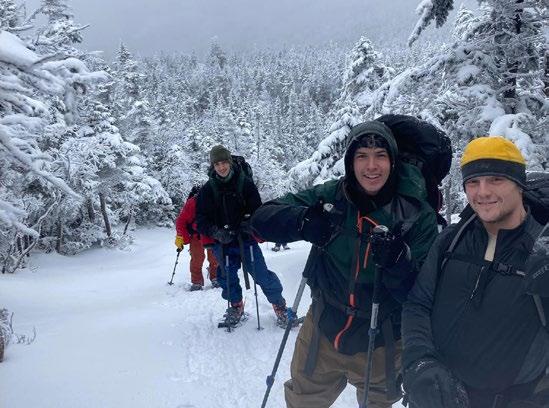
REC 118 Backcountry Navigation with GPS
1 credit
Introduces navigation techniques using GPS, USGS map, compass, and digital maps. Covers a brief explanation of global positioning system along with basic skills necessary for route-planning and navigating in the backcountry. Basic skills include interpreting topographical map terrain, integrating compass and map, configuring a handheld recreational GPS device, and transferring data between
GPS and digital mapping software.
REC 150 Introduction to Sport
3 credits
This introductory course provides students with a comprehensive overview of the field of Sport Management by presenting extensive discussions of the foundational aspects of the profession including current topics from the field. The course also discusses the significance of sport as an international social institution. Students will learn the relevance of sociological, cultural, historical, political, and legal concepts to the management of sport, the professional skills and attitudes of sport managers, and ways in which the globalization of sport continues to affect sport management professions. (Cross-listed as SPM 150)
3 credits
This Sports and Events Management Program Internship is designed as an opportunity for the students to get practical “real world” experience in the areas of leisure, recreation, and sports management. During this internship, students will work in a business, organization, program, or facility of their choice based on their career interests. This internship is considered to be the highlight and culmination of the degree program. (Prerequisites: REC 101 and REC 150 or permission of instructor. Cross-listed as SPM 201.)
1 credit
Forty-hour workplace experience designed to allow students to explore potential career options, apply theoretical classroom principles to real world work environment, and develop interpersonal, leadership and other prerequisite management skills. Depending on their chosen field and/or workplace setting, students may experience varying levels of responsibility for administrative tasks, support functions, or front-line service. (Prerequisites: 2nd semester standing in Sports & Events Management or Wilderness Recreation Leadership Program and approval of Program Chair/ Director)
Seminar
1 credit
An overview of wilderness recreation as a career choice and an in-depth look at job and educational opportunities in the field. Students will investigate current job openings, develop a resume package, research college transfer options, assess personal and professional needs, practice interview skills, and explore professional training opportunities. (Prerequisites: REC 240 or permission of instructor)
REC 236
NYS Guide License Prep 1 credit
Prepares students to sit for NYS Guide License Exam offered by the New York State Department of Environmental Conservation (NYSDEC). All students will prepare for the general guide exam and may choose to prepare for additional testing in the following areas: hiking, camping, canoeing, rock-climbing, ice climbing, whitewater rafting and canoeing, hunting and fishing. Exam preparation may vary according to the above mentioned discipline options.
REC 240 Wilderness Fall Practicum
4 credits
This course introduces students to backpacking and canoe expeditioning with an emphasis on safety management and minimum impact techniques. In a supervised, experiential setting, students learn and practice wilderness living skills and expedition leadership. Outdoor industry standards and professionalism are emphasized as students assist in expedition preparations and execution. (Prerequisite: C or better in the following courses – PSY 105; REC 115; PED 167; HED 160; overall cumulative average of 2.0 or higher; successful completion of 15 credits)
REC 249 Wilderness Winter Practicum 3 credits
REC 249 is a three-phase course that includes: 1) instruction and practical experience in various areas of winter expedition planning, 2) an expedition to enable participants to practice winter field skills and leadership, and 3) a post-trip wrap-up, evaluation process and slideshow development. (Prerequisite: REC 240 and permission of instructor)
REC 251
Wilderness Management 3 credits
Introduces philosophical foundations of wilderness and fundamentals of wilderness area allocation and management. Course explores history of wilderness in the U.S. as well as current wilderness issues on a regional, national and global scale. Topics include wilderness values, legislation, principles of management, recreational impacts, threats to wilderness, and Adirondack Wilderness. (Prerequisites: REC 240 or permission of instructor).
SCI 105
Survey of Physical Science 3 credits
An introductory study of physical science with an emphasis on fundamental principles of chemistry and physics. Foundations of the scientific method with practical examples will be emphasized throughout. The course is
designed for non-science majors and no prior experience with physics or chemistry is assumed.
SOC 101 Introductory Sociology 3 credits
The systematic study of society, social institutions, and social behavior. Basic sociological concepts pertaining to cultural heritage, social stratification, social class and mobility, gender issues and ageism, and social change are explored. Sociological theory and research methods are applied to common sociological institutions such as the family, religion, education, and law.
SOC 107 Sociology of Addiction
3 credits
This course examines the social dimensions of addictive behavior. Social, historical, and cultural forces that have shaped human understanding of drug and other addictive behaviors will be explored. Social responses to these will also be an area of focus.
SOC 108 Sociology of Diversity 3 credits
An introduction to diversity in American society. This course explores the bases and social implications of difference with particular reference to race, ethnicity, religion, gender, sexual orientation, disability, and aging. Patterns of prejudice, discrimination and possible solutions to these issues will be explored.
SOC 109 Sociology of Family 3 credits
A study of the family from the sociological perspective. Factors influencing the behavior and development of the modern family are analyzed. Students study the social milieu of the family from birth to death, from conformity to nonconformity, and from action to reaction.
SOC 110 Contemporary Social Problems 3 credits
The study of contemporary social problems. Topics include inequality in wage, gender, and educational inequality; social conflict and violence; and environmental threats and sustainability. Applied sociological theory and scientific research are considered as viable solutions to these challenges.
SOC 125 Death & Dying
3 credits
An introduction to the study of thanatology. The course will examine the social and psychological realities of death and the dying process. Contemporary issues including hospice care, AIDS, assisted suicide, and the social impact of violent death will be explored.
SOC 128 Travel & Culture
3 credits
Students will have the opportunity to visit a unique, culturally rich destination, domestic or international, with the purpose of engaging in an in-depth study of cultural, political, and/or historical aspects of the area.
SOC 145 The Sociology of Crime
3 credits
A study of criminal/deviant social behavior from anthropological, sociological, psychological, and legal viewpoints, with equal emphasis on the basic theoretical research findings and practicum applications.
SOC 155 Juvenile Justice & Delinquency
3 credits
A study of the juvenile justice system with a primary focus on causation factors from a sociological perspective. This course addresses the models, theories, laws, procedures, and practices currently in force.
SOC 165 Aging in America
3 credits
An introduction to the myths and realities of the aging process. This course will examine the social, psychological, biological, economic, political, and demographic issues surrounding growing old in America today.
SOC 200 Introduction to Social Welfare
3 credits
An introduction to the field of social welfare. This course examines historical, social, and theoretical underpinnings of the field including the emergence of the social work profession. Students will also study intervention issues. (Prerequisite: SOC 101 or SOC 107)
SOC 210 The Environment & Society
3 credits
An exploration of the impacts of human behavior & social systems on their environment. (Prerequisite: BIO/ENV 104/108 or permission of instructor)
SOC 215
Deviant Behavior
3 credits
Deviant behavior is any activity or action that attracts widespread social disapproval. In this course, students gain the ability to analyze a variety of deviant behaviors from sociological, critical, and cross-cultural perspectives. Topics include homicide, rape, family violence, mental disorders, unconventional sexuality, drug use, and suicide. (Prerequisite: SOC 101)
SPA 101
Introductory Spanish I
3 credits
Introduction to the basic phonology, grammar, vocabulary, and cultural information necessary for comprehending, speaking, reading, and writing first-year Spanish. Listening, comprehension, and speaking will be stressed from the outset. (Not open to students having more than two years of secondary school Spanish)
SPA 102
Introductory Spanish II
3 credits
A continuation of SPA 101. (Prerequisite: SPA 101 or three years of secondary school Spanish)
SPA 201
Intermediate Spanish I 3 credits
Continuation of the study of phonology, grammar, vocabulary, and cultural information necessary for comprehending, speaking, reading and writing intermediate level Spanish I and II. Listening comprehension and speaking will be stressed. Hispanic cultures will be explored through selected readings and writing assignments. (Prerequisite: SPA 102 or three years of high school Spanish)
SPA 202
Intermediate Spanish II
3 credits
Extension of Intermediate Spanish I, pursuing the study of phonology, grammar, vocabulary, and cultural information necessary for comprehending, speaking, reading, and writing intermediate level Spanish. Listening comprehension and conversation skills will be stressed. Hispanic cultures will be explored through selected readings and writing assignments. (Prerequisite: SPA 201 or four years of high school Spanish)
SPM 150 Introduction to Sport Management
3 credits
This introductory course provides students with a comprehensive overview of the field of Sport Management by presenting extensive discussions of the foundational aspects of the profession including current topics from the field. The course also discusses the significance of sport as an international social institution. Students will learn the relevance of sociological, cultural, historical, political, and legal concepts to the management of sport, the professional skills and attitudes of sport managers, and ways in which the globalization of sport continues to affect sport management professions. (Cross-listed as REC 150)
SPM 201 Sports & Events Management Internship
3 credits
This Sports and Events Management Program Internship is
designed as an opportunity for the students to get practical “real world” experience in the areas of leisure, recreation, and sports management. During this internship, students will work in a business, organization, program, or facility of their choice based on their career interests. This internship is considered to be the highlight and culmination of the degree program. (Prerequisites: REC 101 and REC 150 or permission of instructor. Cross-listed as REC 201.)
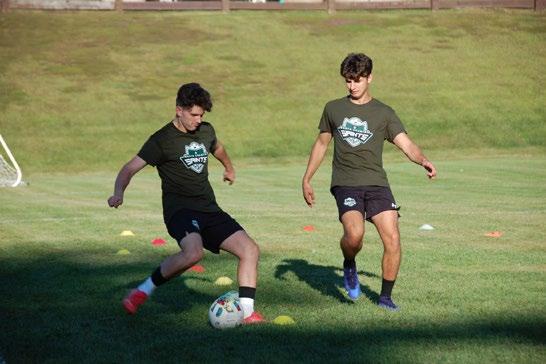
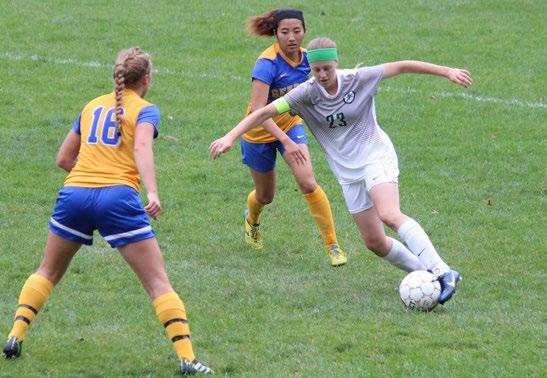

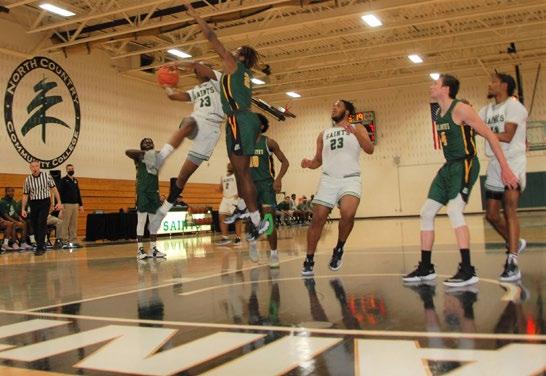
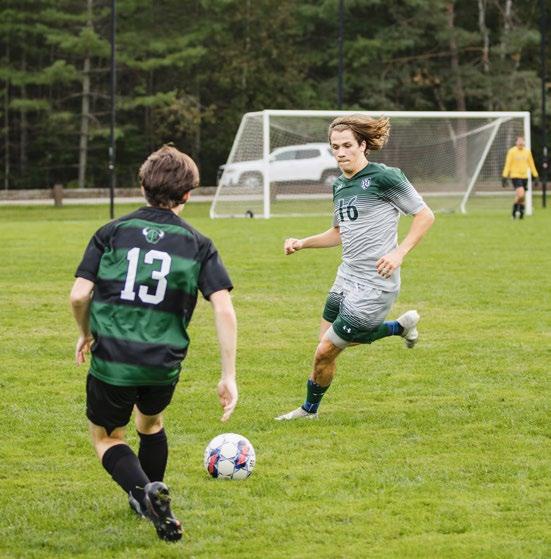
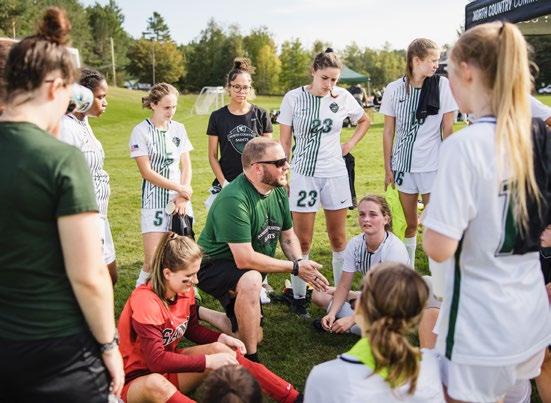

As an institution of higher learning, focused primarily on the needs of adult registered students, North Country Community College desires to maintain a collegial atmosphere conducive to learning. In order to comply with safety and health regulations, the children of guests, students and/or employees of the College and their children are required to comply with the following:
• Only registered students may attend credit bearing and non-credit classes. Some Lifelong Learning children’s programs may require the presence of a parent or guardian;
• All minors under the age of 18 attending any sanctioned activity deemed appropriate for children, present in any College venue, must be supervised by a parent or guardian at all times;
• Employees of the College are prohibited from bringing children to offices and other areas where the day-today business of the College is conducted. This includes work-study employees acting in the performance of their duties.
The College recognizes that childcare is an important issue in the lives of its guests, students, and employees. Parents and guardians are encouraged to seek reference information for appropriate childcare from the Director of Campus & Student Life 1-888-TRY-NCCC, Extension 1204.
The use of College facilities is monitored and regulated by procedures enforced by the Director of Campus & Student Life, the Vice President for Academic Affairs, the Vice President of Administration and/or the Site Coordinators. Those offices can provide copies of the procedures for use of any facility. Those procedures are incorporated herein by reference.
Specific activities prohibited include, but are not limited to, the following:
• Any failure to comply with directions of a College official or approved vendor acting in the performance of their duties.
• Failure to show proper identification to a requesting College official or approved vendor acting in the performance of their duties.
• Falsifying information such as forgery, alteration, or intentional misuse of College documents, records, or identification or failure to provide required records as requested.
• Theft or damage to College property or property of a member of the College Community, including guests.
• Unauthorized possession, duplication, or use of keys to any College property, premises, or vehicles or unauthorized entry or use of any College facilities.
• Disorderly, lewd, indecent, or obscene conduct or aiding or procuring another individual to breach the peace.
• Disruption of teaching, programming, administration, elections, judicial proceedings, or any other College sanctioned activity or the normal operations of a College event, whether on or off-campus.
• Tampering with safety equipment, including but not limited to fire alarms, fire extinguishers, or emergency exits.
• Unlawful possession of firearms and other dangerous weapons as defined by New York State’s Penal Law Article 265 or explosives, or dangerous chemicals while on the campuses/sites of the College or at sanctioned off-campus events.
• Unauthorized use of the name of North Country Community College or a College-related organization, or claiming to speak or act in the name of the College or any related departments. All official North Country Community College news releases (other than drama or athletic activities) shall be channeled through the President’s Office. All news releases will be prepared and distributed by the College staff member designated by the President.
The Family Educational Rights and Privacy Act (FERPA) grants current and former students the right to have access to their educational records, to determine whether records will be released to a third party, and to challenge information in those records.
The College may release Directory Information concerning currently enrolled students, unless directed by the student to withhold such information. Students wishing to restrict access to Directory Information must so notify the College Registrar in writing by the end of the first week of classes. Directory Information includes the student’s name, address, telephone listing, date and place of birth, major field of study, participation in officially recognized activities and sports, dates of attendance, degrees received, and most recent previous educational institution attended by the student.
Further information regarding FERPA is available from the Office of the Director of Campus & Student Life.
The Family Educational Rights and Privacy Act (FERPA) affords students certain rights with respect to their education records.
These rights include:
• The right to inspect and review the student’s education records within 45 days of the day the College receives a request for access.
A student should submit to the Registrar’s Office a written request that identifies the record(s) the student wishes to inspect. The College official will make arrangements for access and notify the student of the time and place where the records may be inspected. If the records are not maintained by the college official to whom the request was submitted, that official shall advise the student of the correct official to whom the request should be addressed.
• The right to request the amendment of the student’s education records that the student believes is inaccurate, misleading, or otherwise in violation of the student’s privacy rights under FERPA. A student who wishes to ask the college to amend a record should write the Registrar’s Office, clearly identifying the part of the record the student wants changed, and specify why it should be changed. If the College decides not to amend the record as requested, the College will notify the student in writing of the decision and the student’s right to a hearing regarding the request for amendment. Additional information regarding the hearing procedures will be provided to the student when notified of the right to a hearing.
• The right to provide written consent before the College discloses personally identifiable information from the student’s education records, except to the extent that FERPA authorizes disclosure without consent.
The College discloses education records without a student’s prior written consent under the FERPA exception for disclosure to school officials with legitimate educational interests.
A school official is a person employed by the College in an administrative, supervisory, academic, research, or support staff position; (including law enforcement unit personnel) and health staff, a person or company with whom the College has contracted as its agent to provide a service instead of using College employees or officials (such as an attorney, auditor, or collection agent); a person serving on the Board of Trustees; or student serving on an official committee, such as a grievance committee, or assisting another school official in performing his or her tasks.
A school official has a legitimate educational interest if the official needs to review an education record in order to fulfill his or her professional responsibilities for the College.
Upon request, the College also discloses education records without consent to officials of another school in which a student seeks or intends to enroll.
• The right to file a complaint with the U.S. Department of Education concerning alleged failures by the
University to comply with the requirements of FERPA. The name and address of the Office that administers FERPA is:
Family Policy Compliance Office
U.S. Department of Education 400 Maryland Avenue, SW Washington, DC 20202-5920
In an emergency, FERPA permits college officials to disclose without student consent education records, including personally identifiable information from those records, to protect the health or safety of students or other individuals. At such times, records and information may be released to appropriate parties such as law enforcement officials, public health officials, and trained medical personnel. See 34 CFR § 99.31(a)(10) and § 99.36. This exception to FERPA’s general consent rule is limited to the period of the emergency and generally does not allow for a blanket release of personally identifiable information from a student’s education records. In addition, the Department interprets FERPA to permit institutions to disclose information from Education records to parents if a health or safety emergency involves their son or daughter.
While student disciplinary records are protected as education records under FERPA, there are certain circumstances in which disciplinary records may be disclosed without the student’s consent. A postsecondary institution may disclose to an alleged victim of any crime of violence or non-forcible sex offense the final results of a disciplinary proceeding conducted by the institution against the alleged perpetrator of that crime, regardless of whether the institution concluded a violation was committed. An institution may disclose to anyone – not just the victim –the final results of a disciplinary proceeding, if it determines that the student is an alleged perpetrator of a crime of violence or non-forcible sex offense, and with respect to the allegation made against him or her, the student has committed a violation of the institution’s rules or policies.
The Jeanne Clery Disclosure of Campus Security Policy and Campus Crime Statistics Act requires postsecondary institutions to provide timely warnings of crimes that represent a threat to the safety of students or employees and to make public their campus security policies. It also requires that crime data be collected, reported, and disseminated to the campus community and to the Department annually. The Clery Act is intended to provide students and their families with accurate, complete, and timely information about safety on campuses so that they can make informed decisions. Such disclosures are permitted under FERPA. The following Web site provides
more information about these and other provisions about campus safety: https://www2.ed.gov/admins/lead/safety/campus.html
The right to file a complaint with the U.S. Department of Education concerning alleged failures by the University to comply with the requirements of FERPA. The name and address of the Office that administers FERPA is:
Family Policy Compliance Office
U.S. Department of Education 400 Maryland Avenue, SW Washington, DC 20202-5920
North Country Community College provides electronic mail services to students and encourages appropriate use of email. However, responsibilities are attached to its use. By using College email, students agree to adhere to the College’s email policy as stated below. Email accounts are automatically created for students of the College when they register for classes and are maintained 60 days past the last date of attendance. Students are encouraged to make extensive use of email to communicate with their instructors, support staff, and fellow students. Email use by students over the campus network is a privilege and is accompanied by a corresponding responsibility to use it in an appropriate manner, i.e. to comply with all applicable local, state and federal laws and with other College policies. Student account information is assigned upon a student’s initial registration for classes. This account is maintained as long as the student remains registered. Students will be notified by mail of their account user name and password. Lost or forgotten user names and/or passwords will be reissued only upon presentation by the student of two (2) forms of identification, one form being a picture ID. This may be done at the Registrar’s Office in Saranac Lake or at the Malone or Ticonderoga Branch Campus office. All email correspondence conducted using the College’s resources are part of the College’s email system and are the property of North Country. The College treats individual communications as confidential and will only examine or disclose their contents
• When authorized by the owner, or
• When required to evaluate and/or adjust the email system to ensure effective operation; or
• When directed by an authorization of a College Officer. Such actions will be taken when there is evidence or reasonable information that inappropriate use of computing and networking facilities and resources is taking place, when situations involve health or safety of people or property, and when required by legal obligations or responsibilities.
However, email is inherently an insecure communications medium, and no one should expect its confidentiality to be guaranteed. In general, email is not appropriate for transmitting sensitive or confidential information. All use of email will be consistent with other College policies, including the North Country Community College Responsible Use of Electronic Communications and the Code of Conduct. If there is reason to believe that a student’s email account is being used in a violation of law or College policy, or if an account is used in a way that threatens to disrupt service to other users, the College may restrict, suspend or disable that account’s access to email services and/or network access until the College is assured that the illegal or disruptive use of the account will cease. Complaints brought by another user will result in a thorough investigation by College personnel. Appropriate use should always be legal, ethical, reflect academic honesty, reflect College standards, and show restraint in the consumption of shared resources. It should demonstrate respect for intellectual property, ownership of data, system security mechanisms, and individual rights to privacy and freedom from intimidation, harassment, and unwarranted annoyance. It shall not be used to conduct private business operations not connected with College projects nor for electoral or issue-oriented political campaigning. North Country reserves the right to refuse mail and other connections from outside hosts that send unsolicited, mass or commercial messages, or messages that appear to contain viruses to College and other users, and to filter, refuse, or discard such messages. Appropriate use includes the following practices:
• Identify yourself clearly and accurately in email. Concealing or misrepresenting your name or affiliation is not appropriate.
• Take care to avoid disseminating computer viruses or other programs that may damage or place excessive load on email or other College resources.
• Nuisance email and other online messages such as chain letters, obscene, pornographic, harassing or other unwelcome messages are prohibited.
• Unsolicited email messages to multiple users are prohibited unless explicitly approved by the Vice President for Academic Affairs.
• Treat email messages and attachments as private and confidential, unless the author(s) make them explicitly available to others. Users should not view, read, listen to, copy, change, execute, or delete another user’s information without that user’s or the owner’s permission.
• Respect the copyright, patent protection and authorizations, intellectual property rights, contracts and/or licenses of others, including the College. Violators of the Digital Millennium Copyright Act who have illegally shared copyrighted files are subject to civil penalties of between $750 and $150,000 per
song. As of 2008, past pre-litigation settlements offered by copyright owners such as the Recording industry Association of America (RIAA) have ranged from $3,000 to $4,000 and up. Additionally, a court may, in its discretion, grant the copyright owner reasonable attorney fees. Although prosecution of students for this type of file sharing is extremely rare, 17 USC § 506 lays out criminal penalties for intentional copyright infringement which can include fines and jail time. Email is an official method of communication at North Country Community College, and the College may send official communications to students via email. Students are responsible for the consequences of not reading Collegerelated communications sent to their official email account in a timely fashion.
Students are expected to check their College email frequently to insure receipt of College-related communications. It is recommended that students check their North Country email account daily. Sharing accounts or passwords is not permitted.
Students are also responsible for maintaining their account by not keeping large files or large amounts of email. The College is not responsible for official communications that are lost due to lack of email account maintenance. To ensure continued availability of disk space, email messages should be kept no longer than 30 days. All email messages that need to be kept for a longer period should be printed or forwarded to a students’ external email service (Yahoo, gmail, etc.).
Students may also use external email services such as Yahoo and gmail in addition to their North Country email address. Students may choose to forward their College email to such a service but do so at their own risk. Such services are often subject to limited account space, delays and failures in receiving email due to heavy loads and network instability.
Students are responsible for reading official College email, regardless of which other email services they may use. The College is not responsible for the handling of email by outside vendors or unofficial servers. North Country strongly recommends that students use the College’s email services to regularly read their email.
Policy Approved by NCCC Board of Trustees, 1/20/2009
See NCCC website at www.nccc.edu for Student Code of Conduct.
See NCCC website at www.nccc.edu for Child Protection Policy
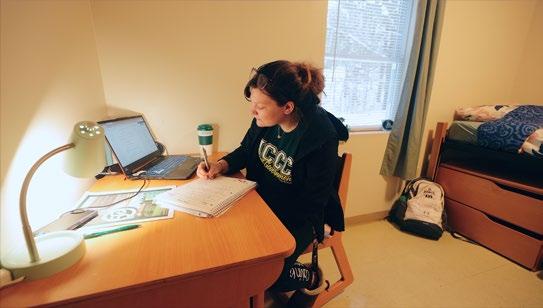
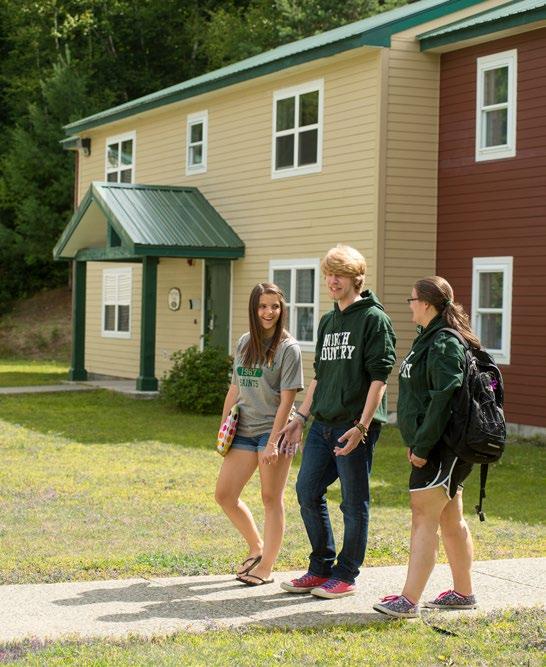


Linda Beers
Daniel Kelleher
Mary Irene Lee
Todd LePage
Seth McGowan
Essex County Appointee term expires 2023
Governor Appointee term expires 2022
Governor Appointee term expires 2019
Franklin County Appointee term expires 2025
Franklin County Appointee term expires 2028
Abby Martelle Student Trustee term expires 2024
R. Pete. Suttmeier
Donna Wadsworth
Vacant
Essex County Appointee term expires 2025
Essex County Appointee term expires 2026
Governor Appointee
Chesterfield
Clayton Barber
Crown Point Charles Harrington
Elizabethtown Cathleen Reusser-Bradley
Essex Ken Hughes
Jay Matthew Stanley
Keene Joe Pete Wilson
Lewis James W. Monty
Minerva Stephen R. McNally
Moriah Matthew Brassard
Newcomb Robin Deloria
North Elba Derek Doty
North Hudson Chris Clark
St. Armand Davina Winemiller
Schroon Margaret Wood
Ticonderoga Mark Wright
Westport Michael K. Tyler
Willsboro Shaun Gillilland
Wilmington Favor Smith
District 1
District 2
District 3
District 4
ADMINISTRATIVE OFFICES
OFFICE OF THE PRESIDENT
Joe Keegan, President
Stacie Hurwitch, Executive Assistant to the President
OFFICE OF THE VICE PRESIDENT FOR ACADEMIC AFFAIRS
Sarah Maroun, Interim Vice President for Academic Affairs
Laurie Muncil, Administrative Assistant to the Vice President for Academic Affairs
OFFICE OF ENROLLMENT AND MARKETING
Kyle Johnston, Vice President for Enrollment and Marketing
Meredith Chapman, Associate Director of Admissions
Amy Tutthill, Associate Director of Adult Student Recruitment
Rachel Zurschmit, Assistant Director of Admissions
Julie King, Enrollment/Financial Aid Counselor
Samantha Phillips, Enrollment/Financial Aid Counselor
Michelle Stewart, Administrative Aide
OFFICE OF FINANCIAL AID
Mary Ellen Chamberlain, Director of Financial Aid
Diane Crowe, Financial Aid Counselor
Teresa Finch, Financial Aid Counselor & Veterans’ Officer
BUSINESS OFFICE
Erik Harvey, Iterim Chief Financial Officer
Brian Pelkey, Comptroller
Barbara Collier, Senior Account Clerk
Rachel Pickard, Senior Account Clerk
Brenda Garver, Bursar
Darlene Livernois, Principal Account Clerk
Cindy Ely, Account Clerk
Portia Burke, Administrative Aide
OFFICE OF HUMAN RESOURCE
Ericka Moody, Human Resource Associate
Tara Evans, Director of Human Resources
Stephanie Rose, Payroll Clerk
REGISTRAR’S OFFICE
Michelle St. Louis, Registrar
Jessica Martin, Assistant Registrar
SUNY Chancellor’s Award for Excellence in Classified Service, 2019-2020
Maggie Willett, Microcomputer Operator
Kaleen Meehan, Administrative Aide
STUDENT LIFE OFFICE
Angela Brice, Assistant Director of Student Life
Kathy Goodrow, Microcomputer Operator
Bruce Kelly, Coordinator of Student Life for the Malone Campus
ATHLETICS
Chad LaDue, Director of Athletics
Jerrad Dumont, Athletics Facilities Manager
Kent Egglefield, Athletic Program Assistant
INFORMATION TECHNOLOGY/HELP DESK
Scott Harwood, Assistant Dean for Institutional Research & Support
Dianna Dudley, Help Desk Technician
SUNY Chancellor’s Award for Excellence in Classified Service, 2015-2016
Terry Kemp, Academic Support Specialist
Kelly O’Shields, Technology Support Sepcialist
FACILITIES & GROUNDS
Rick Heath, Superintendent of Buildings & Grounds
Brian Barden, Head Custodian
Kevin Bisonette, Senior Maintenance Worker
Chastity Foley, Cleaner
Philip Heery, Laborer
Harold Hermance, Cleaner
Bandy Warner, Cleaner
Joel Locke, Building and Maintenance Foreman
Karen Rumbol, Cleaner
Sean Petty, Building Maintenance Worker I
Lisa Symonds, Administrative Aide
Mary Hunsdon, Cleaner
Dennis Hunsdon, Laborer
LEARNING ASSISTANCE CENTER
Tom McGrath, Coordinator, Ticonderoga
Renee Poirer, Coordinator, Malone
Lisa Williams, Coordinator, Saranac Lake
LIBRARY
Brian O’Connor, Library Director
Jerry Jock, Senior Library Clerk
Jason Boyea, Senior Library Clerk
Phil Gallos, Library Clerk
NORTH COUNTRY COMMUNITY COLLEGE ASSOCIATION
Robert Rathbun, Executive Director
Kimberly Gonyo, Bookstore Manager, Malone
Candy Merritt, Textbook Coordinator, Saranac Lake
Mary Riley, Bookstore Clerk, Saranac Lake
Brandy Clark, Residence Hall Director
NORTH COUNTRY COMMUNITY COLLEGE FOUNDATION
Erin Walkow, Director of Development
As of January 2024
ATKINSON, EMMA Clinical Coordinator, B.S. Nursing, Chamberland College of Nursing, A.A.S. North Country Community College
BARRETT, JENNIFER Director of Massage Therapy; B.S., Cornell University; Certificate in Massage, Finger Lakes School of Massage
BENNETT, LORI Clinical Coordinator for Nursing; B.S. Nursing, Empire State College; A.A.S. Nursing, North Country Community College
CALLAHAN, THOMAS Instructor of Business; Second Chance Pell Program; M.S. Mercy College, B.S. Mercy College
CUNNINGHAM, JAMES Assistant Professor & Director of Wilderness Recreation Leadership; M.S., SUNY Cortland; B.S., SUNY Plattsburgh; A.S., North Country Community College
CUNNINGHAM, LAURA, Instructor of Nursing; B.S. Nursing, SUNY Empire; A.A.S. North Country Community College
DOWD-MALONEY, KATHLEEN Associate Professor of Psychology; Human Services Program Chair; M.S.W., SUNY Albany; B.S.W., SUNY Plattsburgh
DUFFEY, KIMBERLY Associate Professor of Business and Computer Information Sciences; Business Department Chair; JD, Nova University Law Center, BA, Fairfield University
FILLER, SHIR Professor of English, Humanities Chair; M.A., New York University; B.S., Massachusetts Institute of Technology
FREDENBURG, MELINDA Instructor of Science; M.S. SUNY Fredonia; B.S. SUNY Potsdam
HARE, TANA Director of Nursing; M.S.N. University of Phoenix, B.N.S. University of Phoenix, A.A.S., Loyalist College
HEATH, LAUREN Instructor of Nursing; M.S.N. Western Governor’s University; B.S.N. Walden University; A.A.S. North Country Community College
HOUGH IV, ERNEST, Instructor of Social Science, Human Services; M.S. Capella University; B.S. SUNY Plattsburgh, A.A.S. North Country Community College
HUDAK, LUKE P-TECH Liaison; B.A. St. Michael’s College
KEEFE, CAITLIN, Second Chance PELL Academic Coordinator; B.A .New York University; M.S .SUNY Plattsburgh
KILBY, SARAH Associate Professor of Mathematics, M.S., Clarkson University; B.S., Johnson State College
LADUE, BECKY, Associate Professor, Clinical Coordinator, Radiologic Technology; M.S., Buffalo State College; B.S., SUNY Empire State; A.A.S. North Country Community College
LADUE, CHAD Director of Athletics, Associate Professor, Head Men’s Basketball Coach; M.B.A. Columbia Southern University; B.S. SUNY Institute of Utica/Rome; A.S., North Country Community College
LAMOUR, TINA Associate Professor, Art Department; M.F.A., University of Colorado; B.F.A., SUNY Plattsburgh; A.A.S., Adirondack Community College
SUNY Chancellor’s Award for Excellence in Faculty Service, 2016 - 2017
LAPLANTE, SEAN Instructor of Math; M.A. SUNY Potsdam; B.A. SUNY Potsdam
LEMAY-KLIPPEL, SELINA Coodinator of Career and Technical Education Programs and Curricular Development, Professor of Sociology; Doctorate of Chiropractic, Logan College; B.S. Logan College; A.A.S., Adirondack Community College
SUNY Chancellor’s Award for Excellence in Teaching, 2010-2011
MARTIN, RICHARD Associate Professor of Biology; D.P.M., California College of Podiatric Medicine; B.S., Oregon State University; B.A., SUNY Albany
MASCIA-SUSICE, STACEY Professor of English; Ph.D., Indiana University of Pennsylvania; M.A., B.A., The College of St. Rose; A.A.S., North Country Community College
SUNY Chancellor’s Award for Scholarship and Creative Activities, 2019-2020
MCGRATH, ROBIN: Instructor of Business; M.S. College of St. Joseph’s; B.S. SUNY Oswego; A.AS SUNY Cobleskill
MCGRATH, TOM Associate Professor of Social Sciences, Learning Assistance Center Coordinator; Ph.D., SUNY Albany, B.A., University of Massachusetts Amherst
MERRICK, DAVID Instructor of Criminal Justice, Criminal Justice Chair; B.S., University of Phoenix; A.A.S., North Country Community College
NELSON, ANNIE, Instructor of Nursing; B.S. Nursing; SUNY Plattsburgh
POIRIER, RENEE Associate Professor of Social Sciences, Learning Assistance Center Coordinator; M.S.W., Syracuse University; B.A., SUNY Potsdam
SUNY Chancellor’s Award for Excellence in Teaching, 2013-14
RODRIGUEZ, KELLI Associate Professor of Social Sciences, Social Science Department Chair; P.h.D. California Southern University, M.S., Capella University; G.C., Capella University; B.S., SUNY Empire State; A.A., Clinton Community College
SAULPAUGH, MICHAEL Instructor of Criminal Justice; B.A., Berklee College of Music
SHERIDAN, CAMMY Professor of Social Sciences, ADA/504 Coordinator; M.S., Walden University; M.S., SUNY Plattsburgh; B.S., Green Mountain College
SUNY Chancellor’s Award for Excellence in Teaching, 2015-2016
SHOEMAKER, SARAH Associate Professor of Health Sciences, Science Department Chair; M.S., University of Pennsylvania; B.A., Washington University
SUNY Chancellor’s Award for Excellence in Teaching, 2021-2022
SMALL, JUDITH Assistant Professor, Biology; Ph.D. John Hopkins University, B.S., Sienna College
SNYDER, DANIEL Second Chance PELL Coordinator; M.A. Ball State University; B.A. Ball State University
STREIFF, ERIN Instructor of Nursing; B.S.N. New York University
STRINGER, SCOTT Instructor of Radiologic Technology; M.S. Excelsior University, B.S., Biologic/Life Science; A.A.S., North County Community College
STROUGH, JAMIE Instructor of Science; M.S. Clarkson University
SUSICE, LEE Professor of Mathematics; M.S., Clarkson University; B.S., Clarkson University
SUNY Chancellor’s Award for Excellence in Teaching, 2019-2020
TAYLOR, BRANDI Instructor of Humanities; B.F.A. Goddard College; B.A. SUNY Plattsburgh
TAYLOR-WILDE, ELAINE Assistant Professor of Art; M.F.A., M.A., University of Wisconsin; B.S., Texas Woman’s University
WARNER, ALLISON; Associate Professor of Mathematics; Math Department Chair; M.A., Goddard College; B.S., Washington & Lee University
WILLIAMS, LISA Learning Assistance Center Coordinator, Instructor of Humanities; M.Ed., University of Massachusetts Amherst; B.A., Keene State
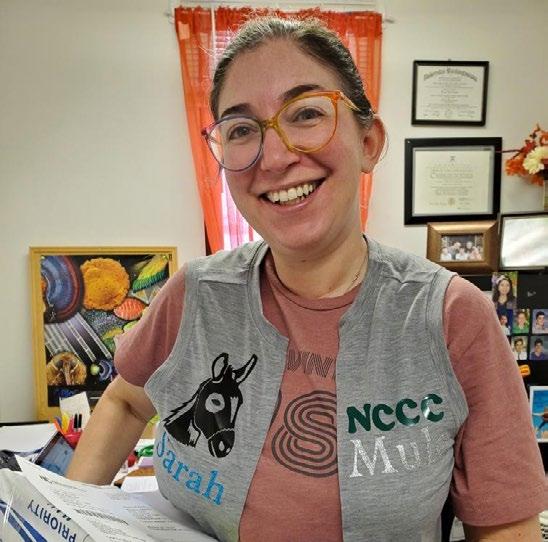

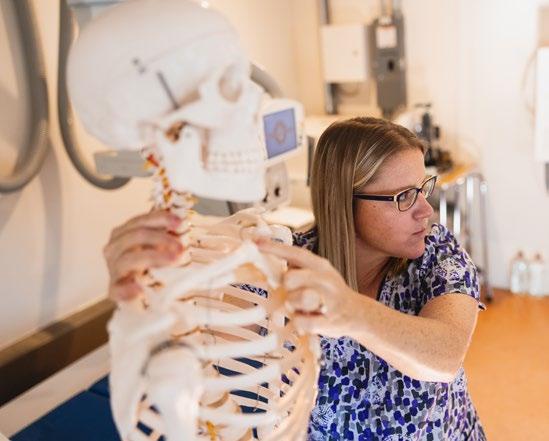

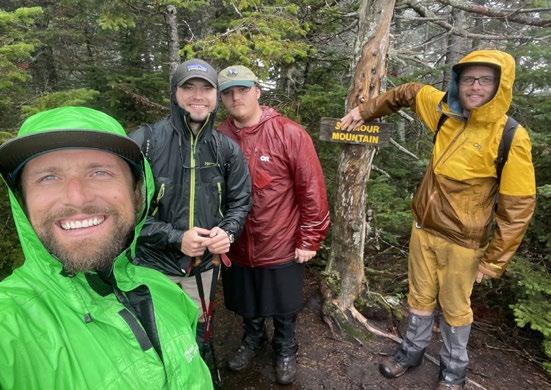
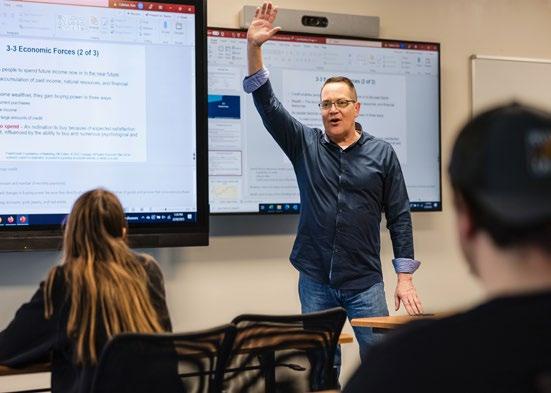
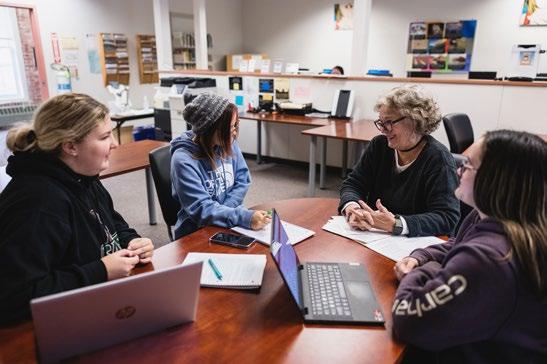
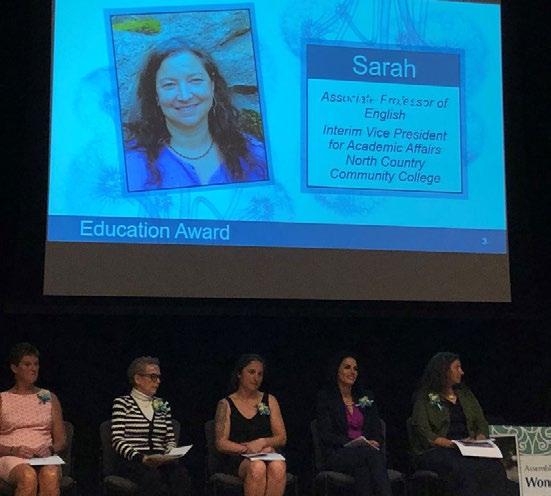
The nation’s largest and most comprehensive state university system, The State University of New York (SUNY), was founded at Potsdam, New York in 1816. Years later, the Morrill Act of 1862 led to the creation of four Ivy League landgrant SUNY colleges, which now currently exist at Cornell University. SUNY was officially established in February 1948 when New York became the 48th state, of the then 48 states, to create a state university system. SUNY initially represented a consolidation of 29 unaffiliated institutions, including 11 teachers colleges. All of these colleges, with their unique histories and backgrounds, united for a common goal: To serve New York State. Since 1948, SUNY has grown to include 64 individual colleges and universities that were either formerly independent institutions or directly founded by the State University of New York.
Today, the State University of New York’s 64 geographically dispersed campuses bring educational opportunity within commuting distance of virtually all New Yorkers and comprise the nation’s largest comprehensive system of public higher education. The State University of New York’s 64 campuses are divided into four categories, based on educational mission, types of academic opportunities available and degrees offered. SUNY offers students a wide diversity of educational options including short-term vocational/technical courses, certificate, associate, and baccalaureate degree programs, graduate degrees and post-doctoral studies. SUNY provides access to almost every field of academic or professional study within the system via over 7,000 degree and certificate programs. SUNY students represent the society that surrounds them. In December 2010, 21.4% of all enrolled students were minorities. While SUNY students are predominantly New York State residents, representing every one of the state’s 62 counties, they also hail from every other state in the United States, the District of Columbia, four U.S. territories, and 160 nations. Total enrollment is over 467,000. Nearly 40% of New York State high school graduates choose SUNY and 99.8% of New York residents live within 30 miles of a SUNY campus. SUNY alumni number over 2.8 million graduates who reside in New York State and throughout the world.
SUNY attracts the best and brightest scholars, scientists, artists and professionals, and boasts nationally and internationally recognized faculty in all major disciplines. Faculty are regular recipients of prestigious awards and honors. SUNY colleges and universities range from world-renowned community colleges, such as the Fashion Institute of Technology, to first-rate graduate schools and the nation’s top veterinary school. The highly-regarded doctoral degree granting universities are home to top research programs and attract experts in a variety of fields. Students study in campus classrooms and laboratories or work from a distance through the SUNY Learning Network, which provides educational opportunities to more than 100,000 students through courses and degree and certificate programs. The State University of New York is committed to providing quality education at an affordable price to New Yorkers and students from across the country and the world.
Joseph Belluck
Courtney Burke
Eric Corngold
Robert Duffy
Christy Fogal
Keith Landa
Eunice Lewin
Stanley Litow
Merryl Tisch, Chairman
Cesar Perales, Vice Chairman
Marcos Crespo
James Haddon
Edward Spiro
Cary Staller
Camille Joseph Variak
Alexander Ruiz
